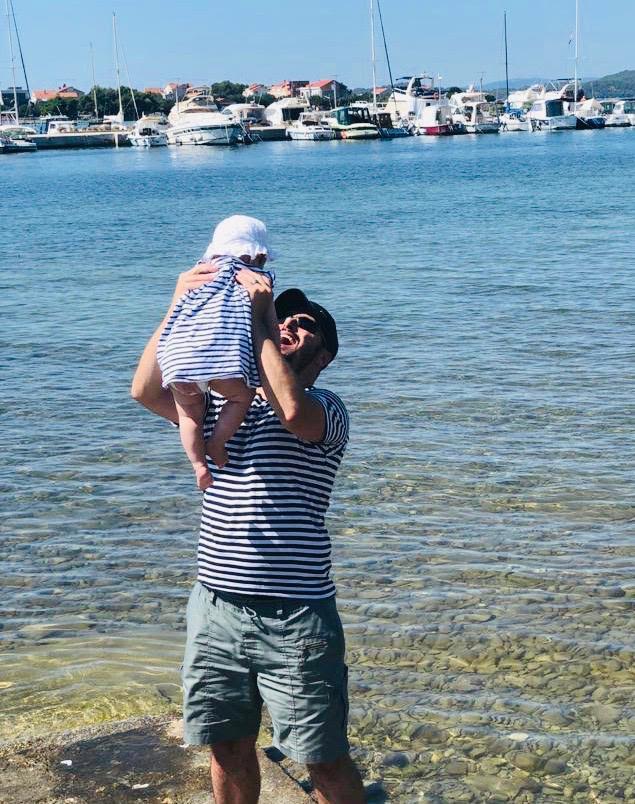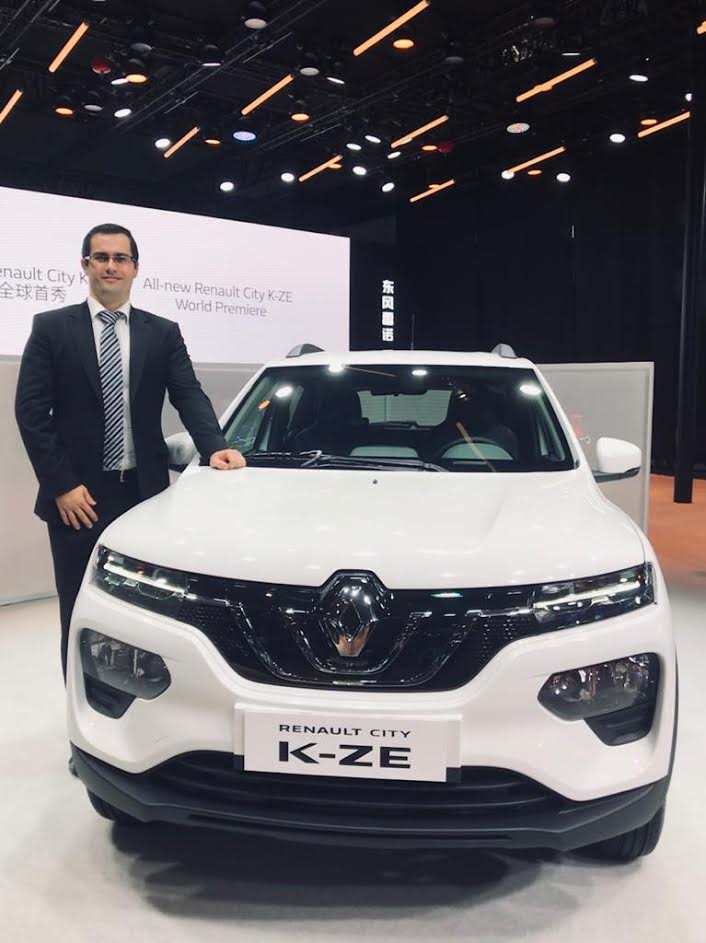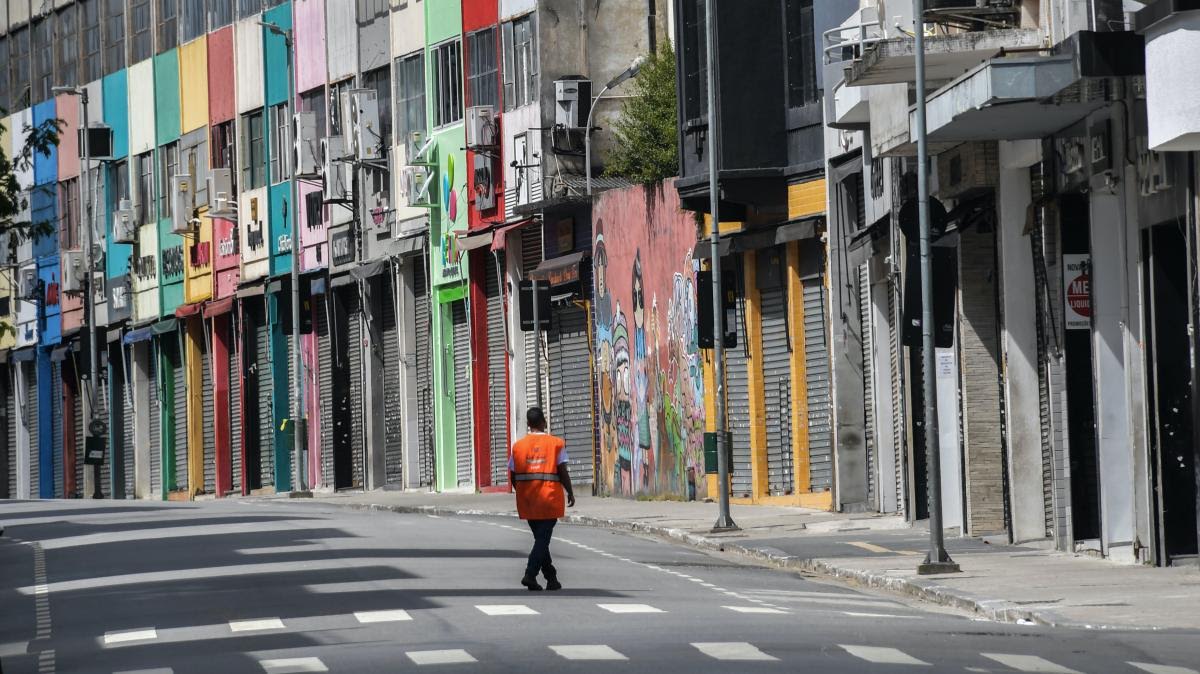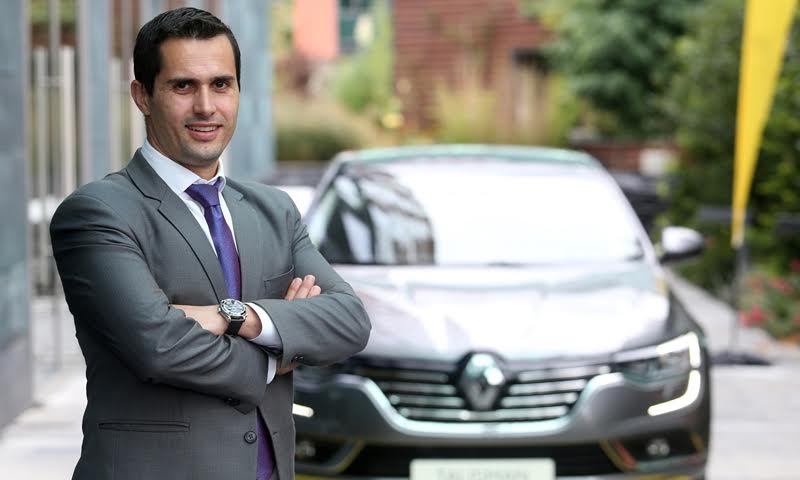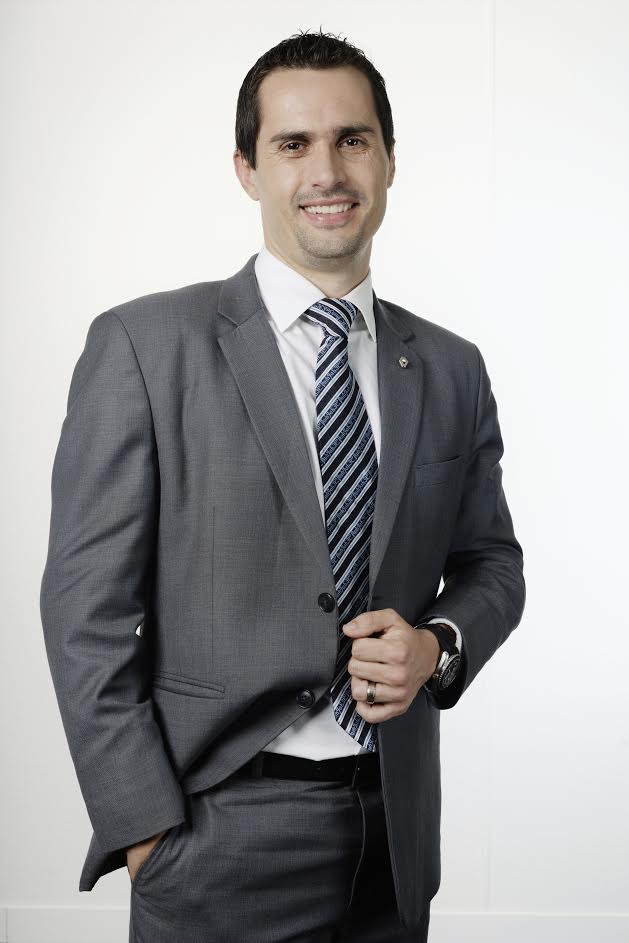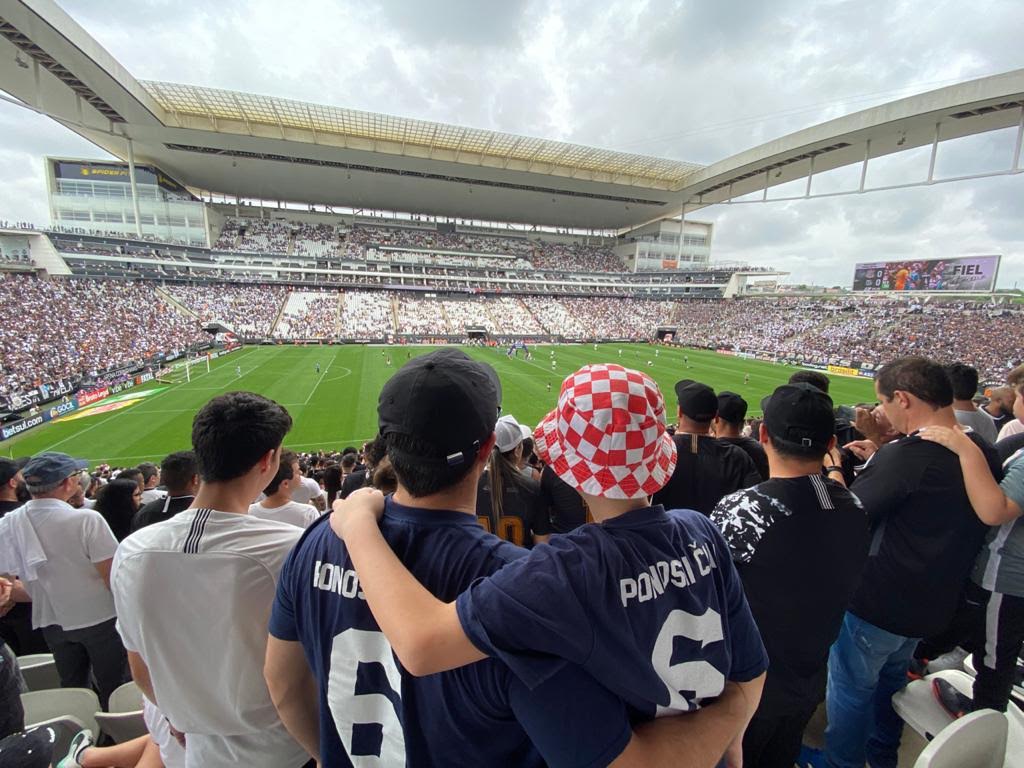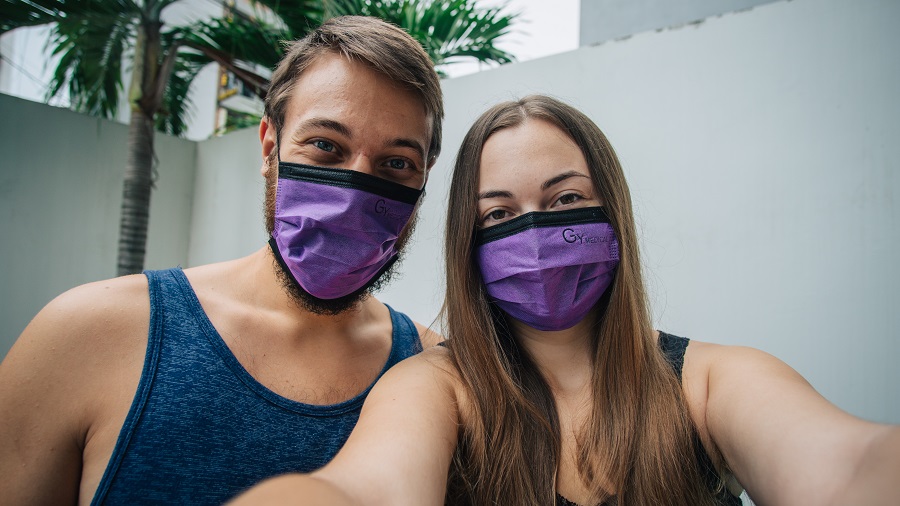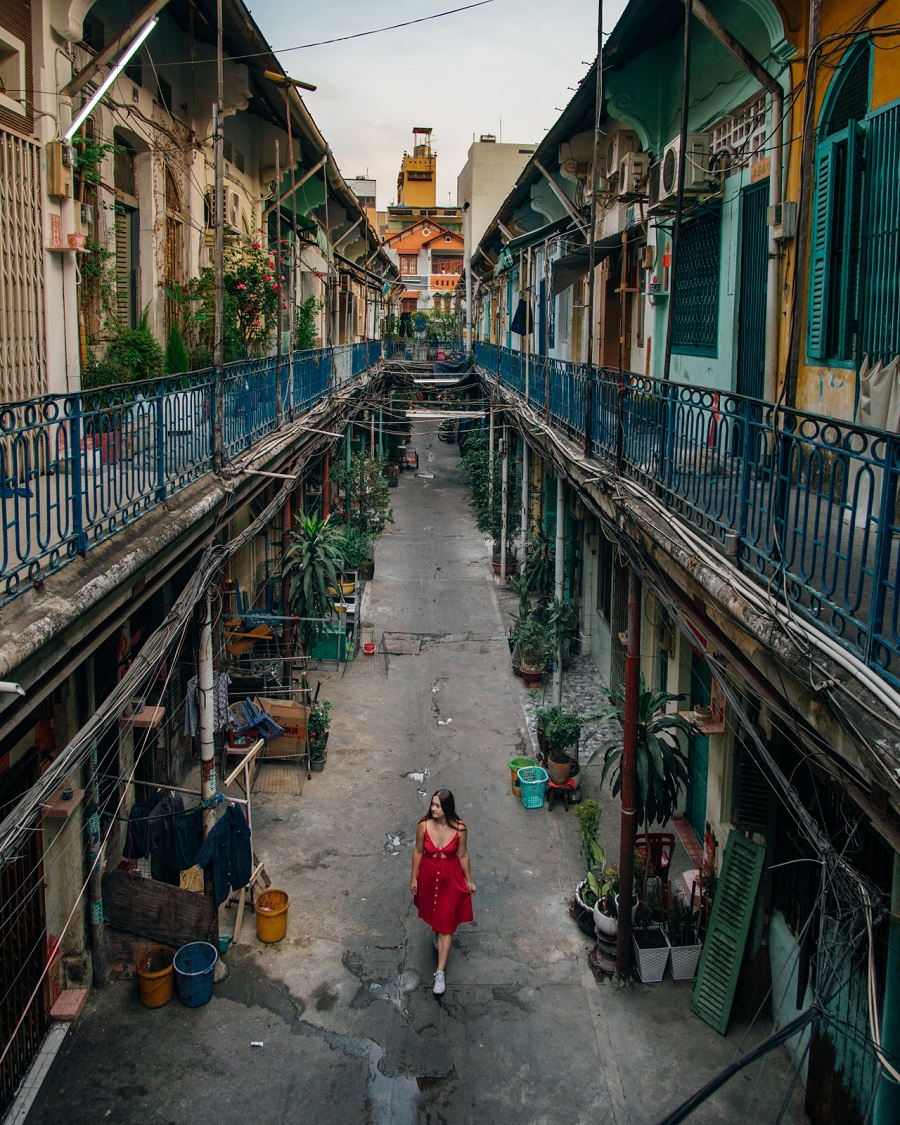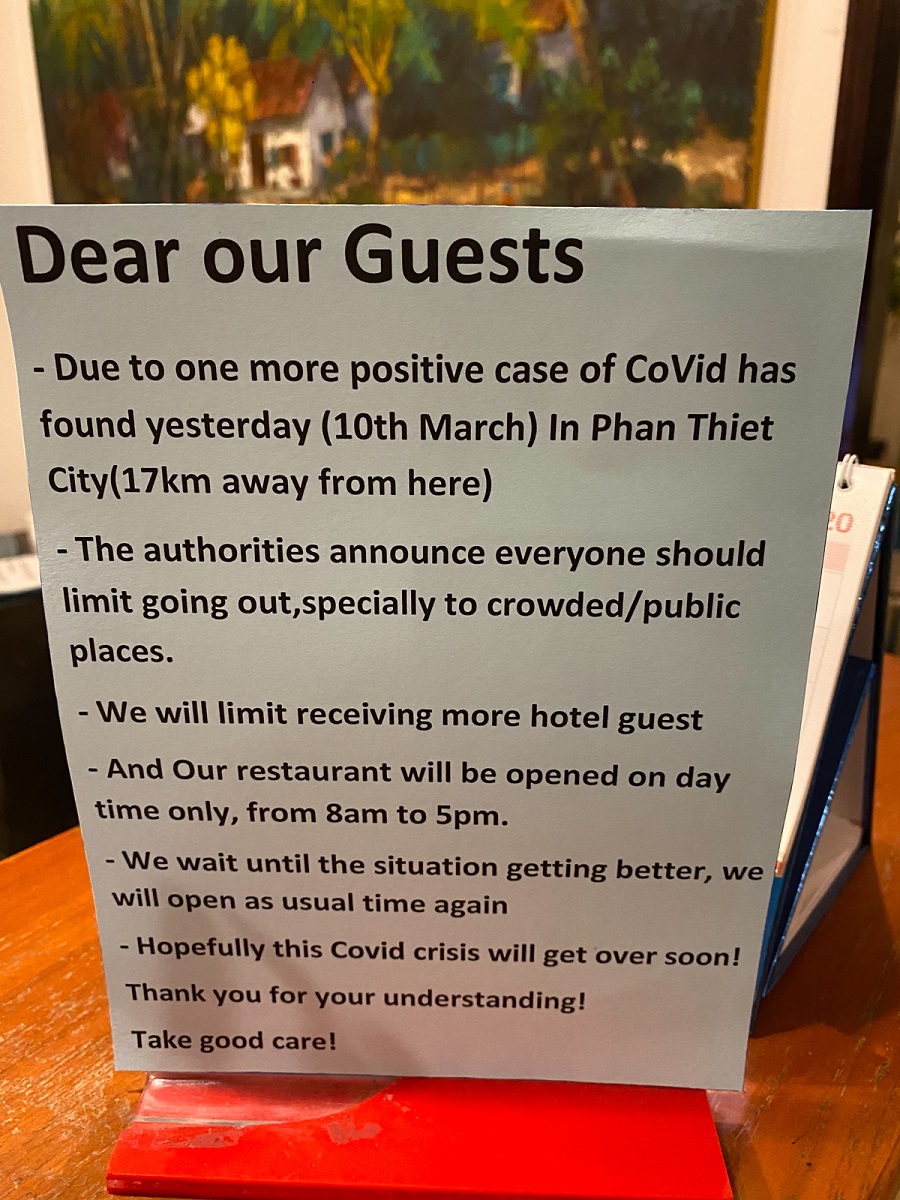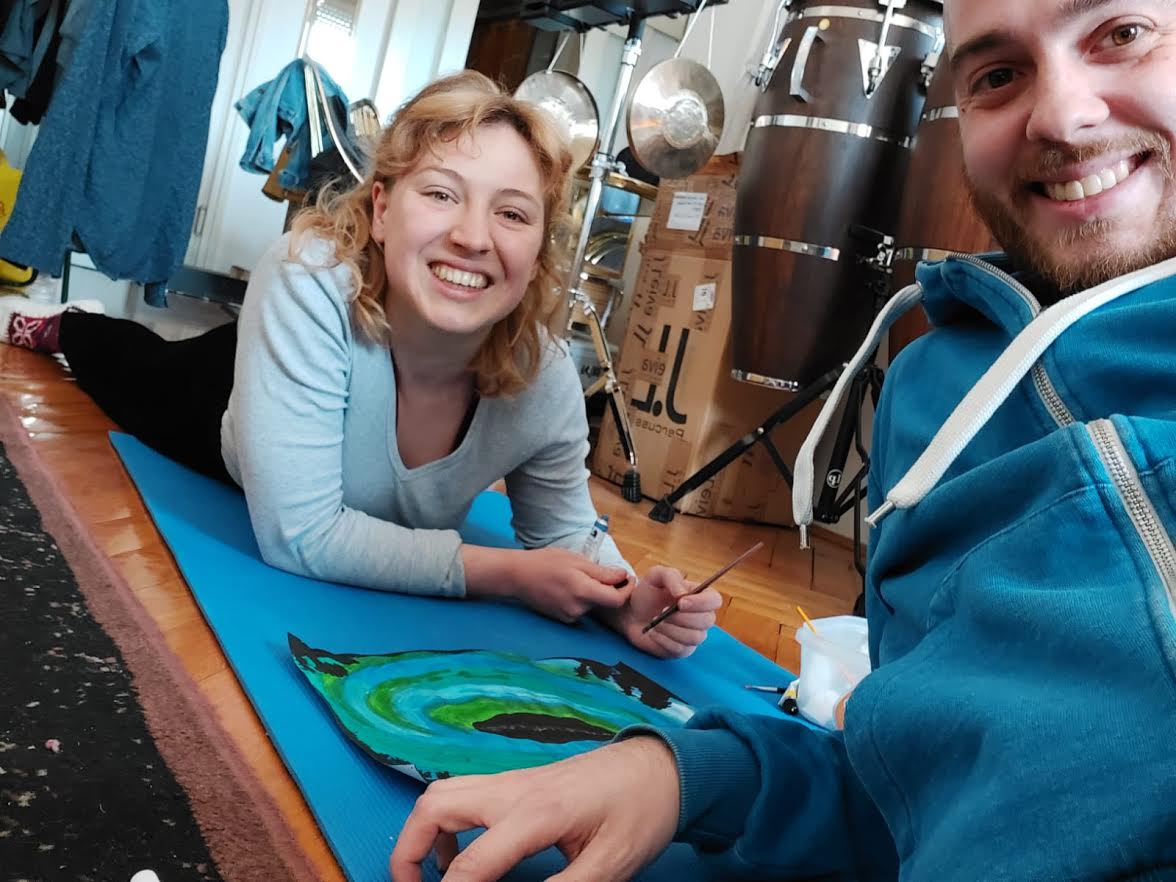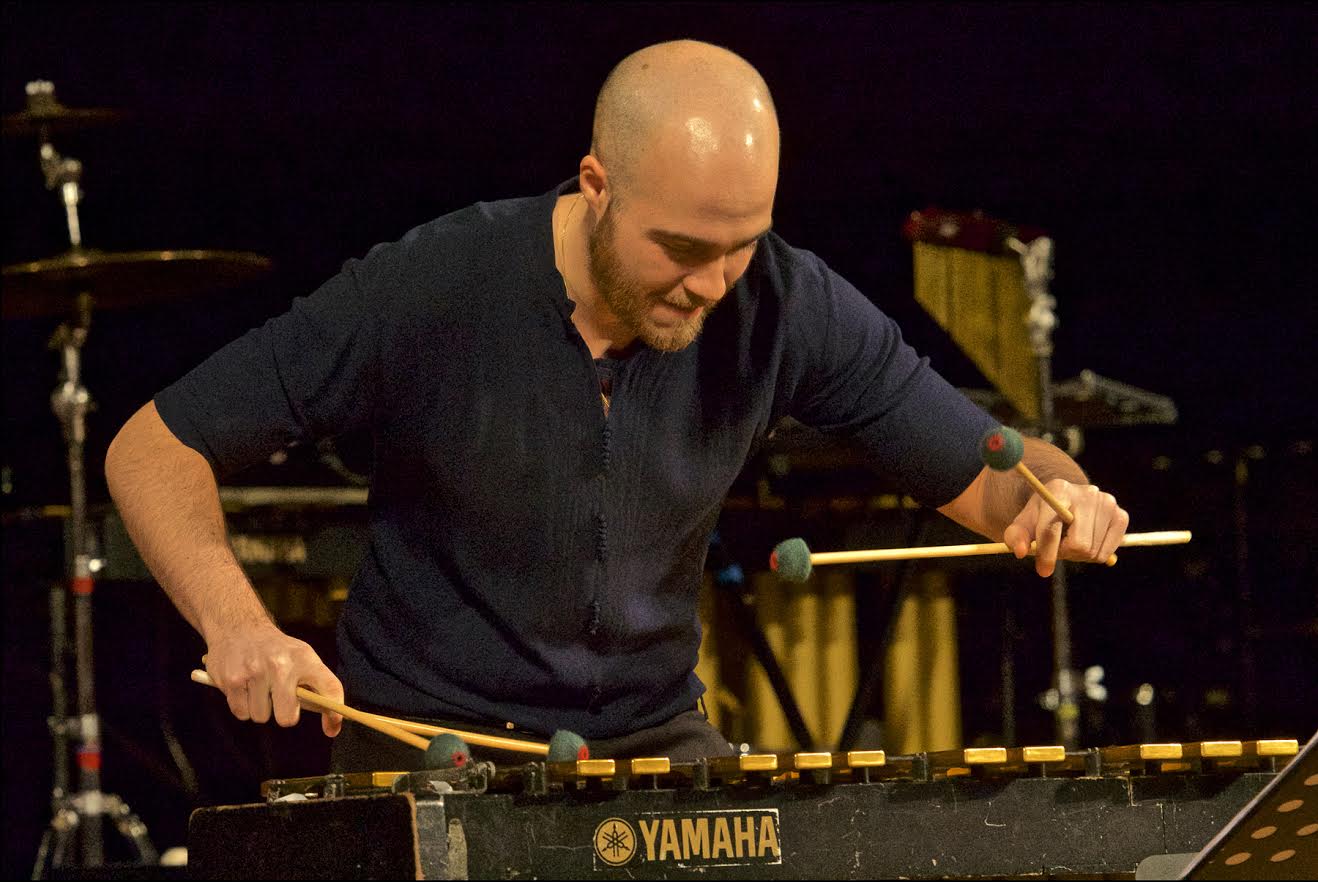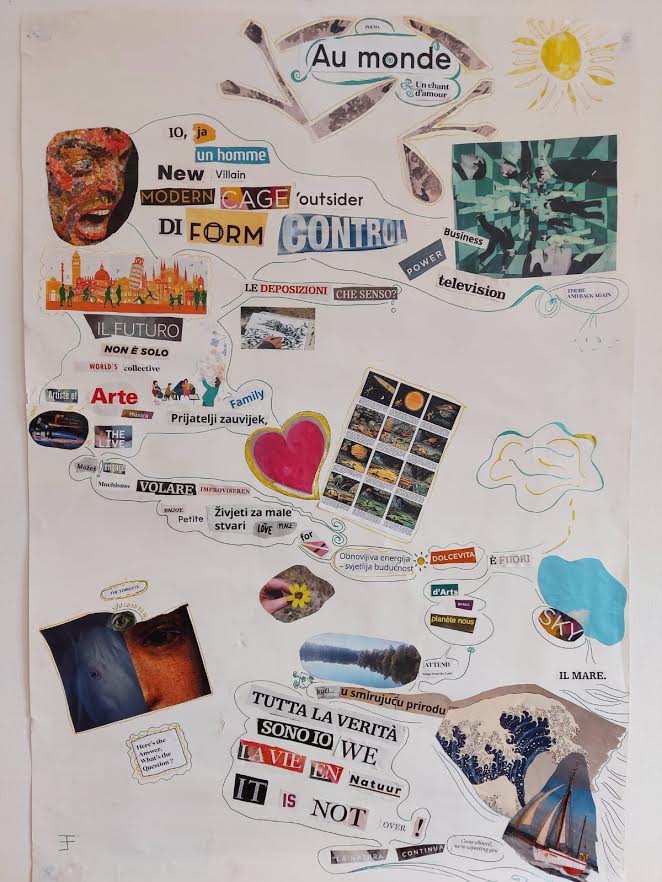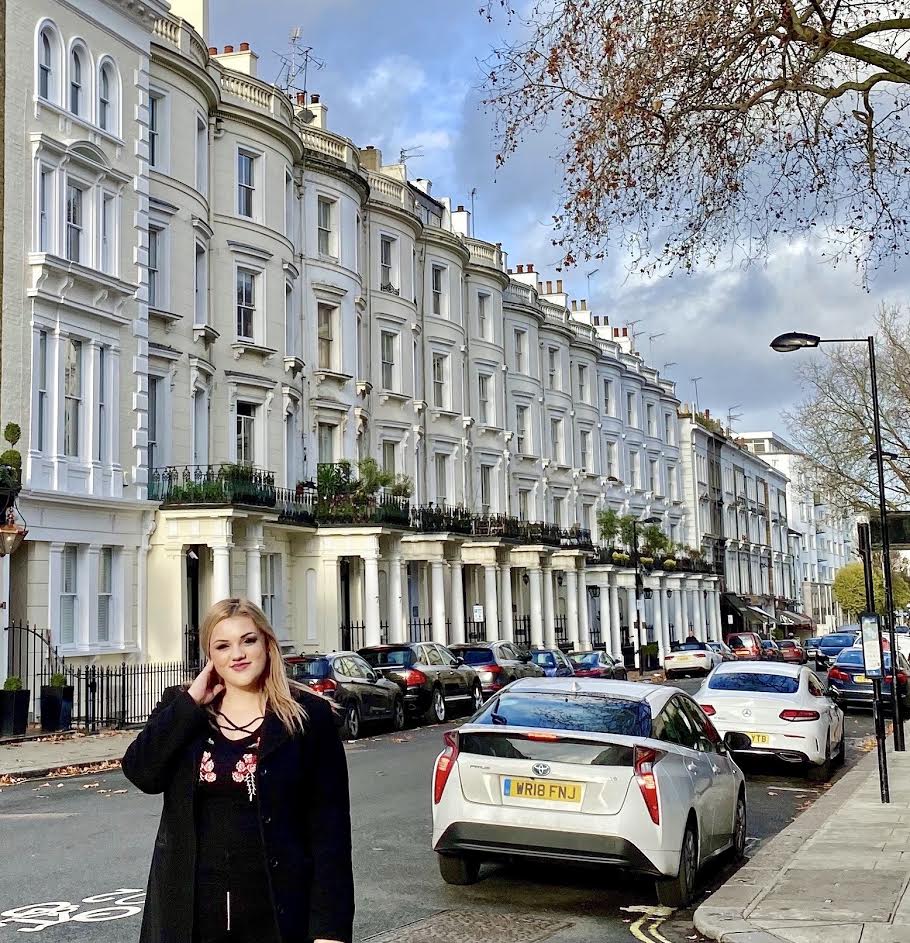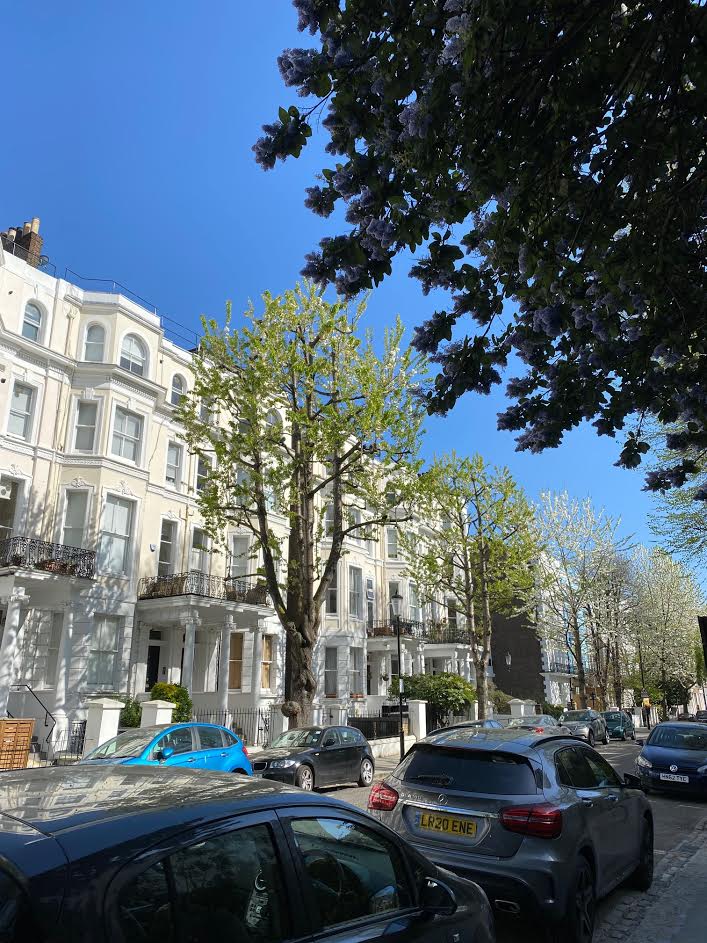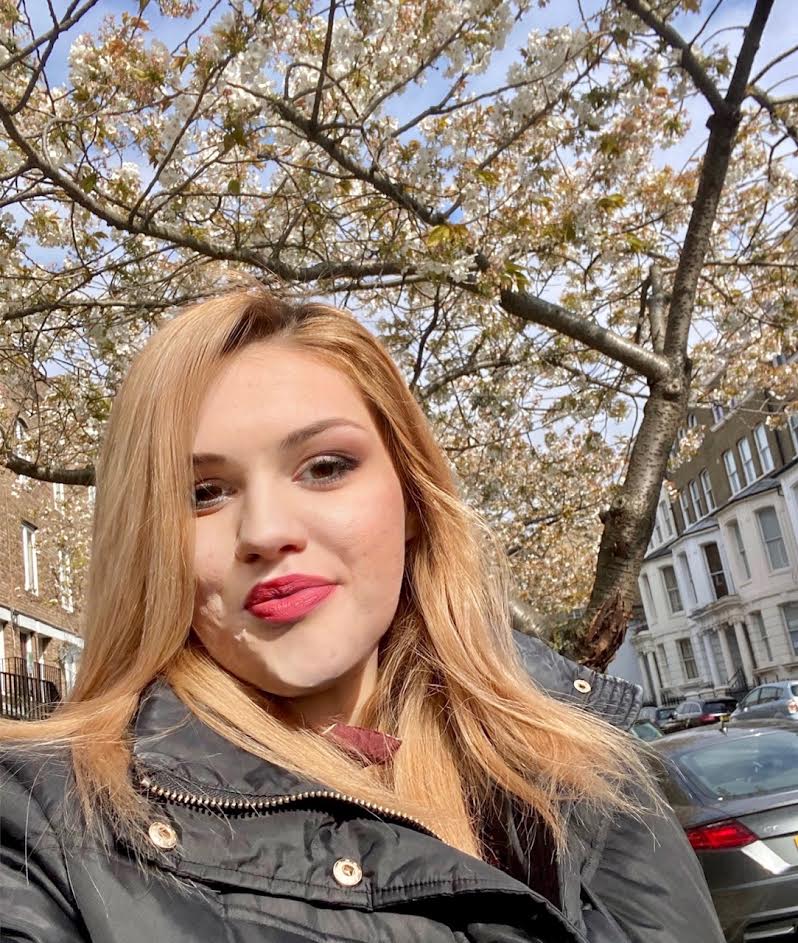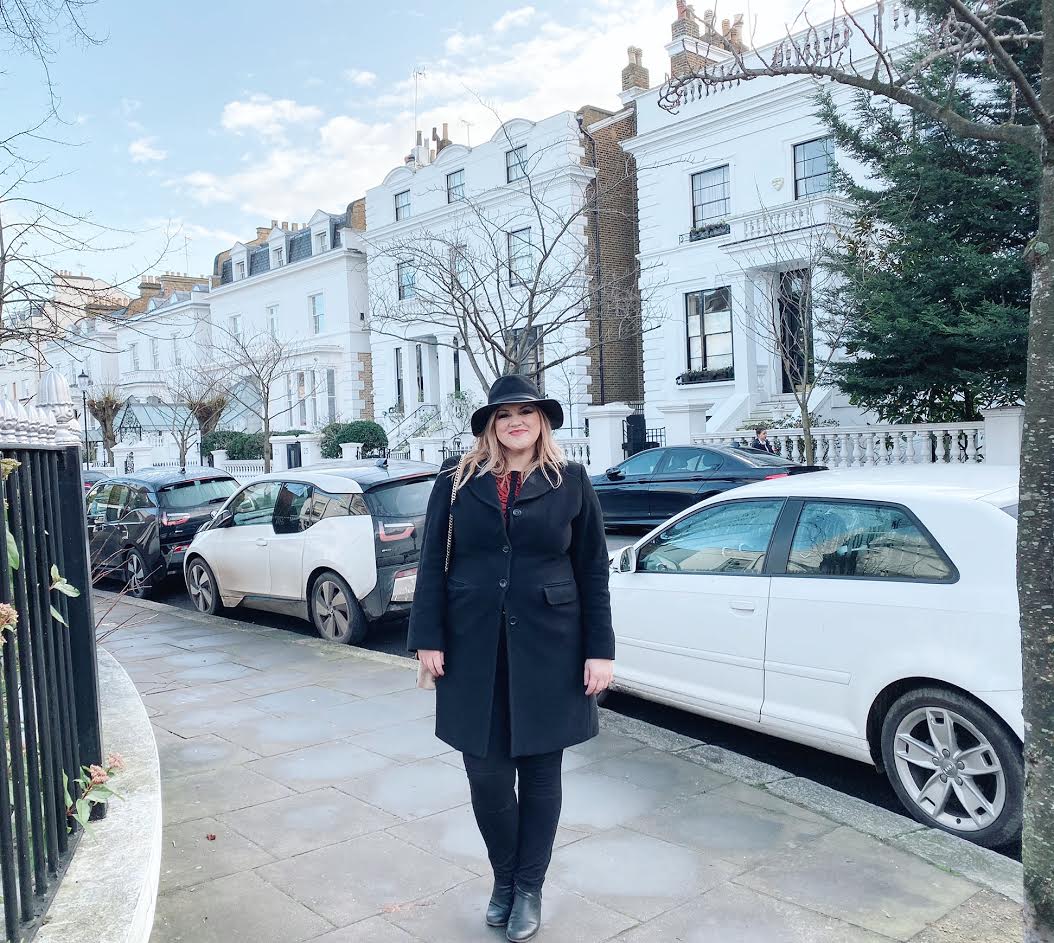When Distance Becomes Viral: One Family’s Flight from Delhi to Zagreb
May 12, 2020 - TCN is delighted to welcome Jennifer Barsky to TCN, whose arrival and first few days in Zagreb from Delhi in mid-March is quite a story. Welcome, Number 153!
Living apart from loved ones is difficult under any circumstances, but the pandemic has only made distance all the more challenging and complex. In July 2019, my husband accepted a position in Zagreb. At the time, we had already been in India for two years and with our son starting high school and our youngest daughter transitioning to middle school, the kids were adamant they return to Delhi in the fall to begin the year with their friends, even if it meant a year largely apart from their father.
For the children, little changed. Their days continued to consist of school, friends, and activities and I relished the opportunity to do more yoga and continue our amazing adventures around India. For my husband, it meant new patterns away from us, weekends now spent in the office, and seemingly endless hours on planes.
Our new ‘normal ’would change again with the onset of coronavirus. With my husband’s mother in Spain, the uncomfortable tension of where things were leading was already building by February. Four people had tested positive in South India, but the situation seemed under control so together with a friend visiting from Canada we hopped on a plane for a weekend in Kerala armed with masks and Lysol wipes. My husband was still set to return to India for work and to spend March break together with my brother who would join us from Boston for trekking in the North. We were still making plans to drive in June from Croatia through Italy and France on our way to Spain for summer vacation.
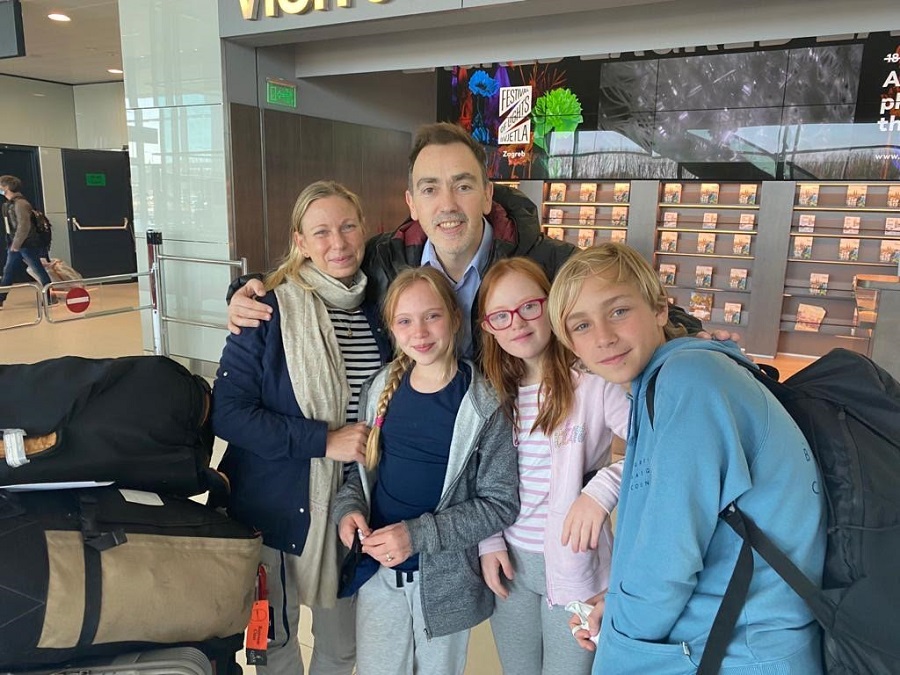
Suddenly, it felt as though the best-laid plans were only traps, with doors slamming all around us. On March 13th, Delhi closed schools through the 31st and my chat groups filled with dissenting views on whether the American school should follow suit. The definition of safety and what was best for our children became fluid. My daughters’ play was canceled, but parent-teacher signups continued. Borders were closing and death tolls in Italy and Spain were mounting daily. My brother canceled his trip, concerned he could end up in one of India’s military quarantine camps
The swirling of rumors, advice, and directives accelerated. Flights out of India canceled. Airports now hotbeds of the virus. New travel advisories issued by the day. Visas canceled for France, Spain, and Germany. The children’s school closed until March 27th. Hand sanitizer and gloves sold out. Calls with my husband became more urgent.
Amid the seeming chaos, life was calm and took on yet a new ‘normal’. Quiet days, low pollution, the trees full of squawking parrots, gardens ablaze with color, and a light breeze. I began teaching socially distanced yoga in the park, the kids organized school working sessions with friends. We were happy. But we were also apart. Then, March 12th, a new travel directive virtually erased our visas from the pages of our passports. If we left now, we would be unable to return until at least April 13th. The kids wanted to stay. My husband was desperate we be together before the window slammed tight and we risked months apart. Maybe he should come here, friends said. We began looking at Zagreb-Delhi flights.
Amidst the indecision, a flurry of calls and messages. A friend and doctor from Montreal. You need to leave now. Come to Canada where you will be safe. My sister who drove with her daughter at 5 am across the Spanish-French border to reunite with her husband before it sealed. Leave now. With 1.3 billion people and an unknown infection spreading like dust storms across communities, there is no telling where this is going. You need to be together.
I buy a ticket for Monday, March 16th and we begin packing. I’m unsettled. It feels counterintuitive to fly from India’s relative calm into Europe’s eye of the storm, but Croatia seems an oasis for the moment. Don’t worry, you will be back when school opens, I tell the kids, unsure our visas would be honored for our anticipated April return. They are sad to leave friends, our dog, but also excited to have a vacation in their soon to be Croatian home.
Monday comes, but when I go online to check-in, I realize the flight had left with the sunrise that morning. I have spent my career on a plane and have never missed a flight. It hits me like a punch in the stomach. I get online and start searching. Flights are few and far between and prices more than double. It’s not even four am for my husband. I need to make a decision. The earliest I can get us out is Thursday with a 14-hour layover in Doha. I imagine the tension, exposure, exhaustion, but I can no longer shelter the children from a cross-continent transition in flight. I buy the tickets.
When my husband wakes up, he is increasingly desperate. More border closings. “Buy a ticket for tomorrow,” he says calmly but I can hear the concern in his voice. I am trembling as we look at different dates, different options, flight prices increasing every time I open the browser. “Just buy it,” he urges. I check the times, type my credit card number, and hit purchase. The itinerary comes back confirmed, but it is the wrong day. The brave face I have kept for the kids these past weeks evaporates. “I can’t do it anymore,” I shout. He listens and calms me, but I can feel him pacing, helpless across the distance.
This time we pack more bags. The kids slowly coming to terms that we may be gone longer than they anticipated. I stock up on our favorite things to keep India close and ensure some continuity as we tear them from their lives. Telephone goodbyes. We will see each other soon.
The airport is unexpectedly smooth. Masks, Lysol wipes, gloves, sanitizer. I am obsessive. The kids feel safe with me. We arrive in Doha. It feels empty but full of life. Young migrant workers from around the world, from India, man the airport, smiling greetings.
Hours go by surprisingly fast and it is time to board. As we approach the gate there are people still seated, others are waving papers at the agent. My husband calls to make sure we are on board as I present our passports. Three Spanish for the children and my Canadian. The rules had changed while we were in transit. I am refused boarding. Relatives of EU citizens are no longer allowed in. I present a government letter advising my husband is a resident and we are joining him. No amount of discussion will change their minds. Should I board the kids and try to get a flight to my native Montreal? The flight closes together with the distance for those onboard. We are still in Doha.
The walk to the transit desks feels miles away. The kids trade stories of the Himalayas with our Nepali escort. On arrival, a young Kenyan agent listens patiently to our story. “There is a flight in six hours, but will need written confirmation they will allow you entry,” she tells me. My husband is on the phone with the head of his office as they desperately try to obtain permission for us to travel. It’s the middle of the night. The Zagreb airport police confirm we will be accepted but there is no written confirmation. “Don’t worry,” the agent reassures me. “I will stay past my shift end to ensure you get on the plane.” I want to hug her, but the virus says no.
I take the kids to lie down on some chairs. They are exhausted and scared. Hours pass. The airport is sealed so we cannot travel into Doha. Authorities waive the rule allowing us to stay in the airport beyond the 24-hour limit. I comfort a young woman from Namibia, unable to reach her mother since they closed the airspace over South Africa. A 14-year old boy alone, trying to reach his family on vacation in the Maldives. We are just one of the so many stories of separation. Of distance.
Only 30 minutes before the flight is set to leave, they rush to tell us we have been confirmed to travel. We race to the gate only to be denied boarding again by security. They did not receive a message. This time they hold the flight and the message reaches in time. The bus idles for what seems like hours before we finally board. Masks, Lysol wipes, hand sanitizer. The last call to my husband. Cautious relief. We are on our way.
The kids relax and watch a movie. I practice pranayama to calm my mind. We arrive. The kids are excited but still nervous. They want so much to enjoy these first steps into the new country they will soon call home. I am prepared for the entry process to be slow. We present our papers but are turned back. The distance is nothing but meters now from my husband waiting on the other side of immigration, but unable to step into Croatia, we might as well still be in India. More calls, more committed people working tirelessly to help free us from no man’s land.
Almost four hours after we disembarked, our passports are stamped, we collect our luggage and step across the distance into my husband’s embrace. Suddenly, near 40 hours of travel dissolves. We quarantine happily in our new house. The kids wake to snow for the first time. The coronavirus lockdown is announced but we don’t mind. We are safe, together and grateful. We sleep peacefully until just three days after our arrival we awake to the house, our world, shaking beneath us again. This time, a 5.3 magnitude earthquake just 7 kilometers north of Zagreb, the first in 140 years. We huddle outside in the cold, a sensation of incredulity, a deep sense of fear of what next. Many lose their homes. We are lucky.
We leave our shoes, coats and hats close to the door and every one of the more than 100 aftershocks over the coming weeks sends us running, hearts in our throats. As time passes, the tremors diminish, and our sense of security returns. Our sense of gratitude throughout remains unshaken.
As I write this, Croatia takes steps to open and India’s lockdown has been extended another 14 days. Thousands of the migrants who took to Delhi’s streets when it first began remain stranded, some starving. Had we left one day later or not experienced the compassionate commitment of so many, we would still be there, awaiting news and watching temperatures and uncertainty rise. Here, the garden we planted a month ago is blossoming. We are home.
For more human stories of expats in Croatia, Croatians abroad, and those somewhere in between, check out the dedicated TCN section.
Jennifer Barsky is an international development professional, health coach, and certified yoga instructor. Originally from Montreal, Canada, she now lives in Zagreb with her husband and three children. She can be reached at This email address is being protected from spambots. You need JavaScript enabled to view it.
Corona Voices in the Croatian Diaspora: Frano Susnjara from Zagreb in Brazil
April 18, 2020 - With as many Croatians living abroad as in the Homeland, what are the diaspora experiences of self-isolation? In the 9th in our series, Corona Voices in the Croatian Diaspora, here is Frano Susnjara in Sao Paulo in Brazil and originally from Zagreb.
Last month TCN started a feature series called Foreigner Self-Isolation In Croatia: Do You Feel Safer? I can honestly say we have never had such a response or so many incredible contributions. The countries of origin of these expats in Croatia literally from all over the world. So far we have had submissions from expats from Romania, USA, Ireland, UK, Mexico, Argentina, Spain, Singapore, Holland, Canada, India, Hong Kong, Venezuela, Latvia, China, Honduras, Hungary, Moldova, New Zealand, Japan and Germany. You can see all their stories here.
Given the success of the series (still going strong) and large interest, it made sense to expand it to look at this from another angle - how Croatians abroad are coping where they are. If you would like to contribute your story to Corona Voices in the Croatian Diaspora, please find the submission guidelines below. Next up, Frano Susnjara in Sao Paolo in Brazil and originally from Zagreb.
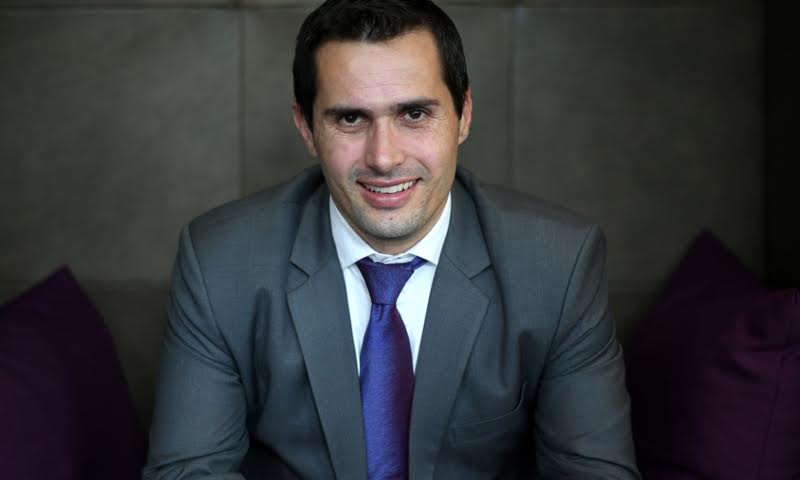
Firstly, how are you? Are you alone/with someone? Tell us a little about your situation and sanity levels.
Hi, firstly I would like to thank Total Croatia News for the interest and a very interesting topic. Also, I’d like to send my best regards to all your readers hoping that they and their close ones are ok in this specific context.
Different countries bring different experiences. We are ok. Branka, my spouse and myself are in Sao Paulo since January with our two children. We came to Brazil from Hong Kong in January this year, very motivated to discover this beautiful country and the continent.
Unfortunately, since the 15th of March we are closed in our flat. Luckily, we are living in a good area of Sao Paulo, therefore with good availability of public or private hospitals and no risky areas from criminality point of view.
When did you realize that coronavirus was going to be a big issue?
To be very honest, after living in Hong Kong and understanding the impacts that SARS left in early 2000, hearing the news end of December we thought: „ouch, this might be a rollercoaster”. Still, we hoped, as everyone else I suppose, that it might be a short effect virus ending by the summer.
When did you realize that coronavirus was going to be a big issue in Brazil in particular?
We see how the world press, including in Croatia, perceives Brazil. Yet, to be factual, we were in lockdown since the middle of March roughly at the same time as Croatia and other countries in Europe. The first case in Brazil happened at the same time as in Croatia.
Still, in the middle of April, we saw that Europe started to „flatten the curve“. It wasn't and still isn't the case in Brazil.
Give us a timeline on when and how life changed.
It was the weekend of the 15th. We heard that one of the kids in my son's school got infected. We stopped sending him to school. Two days later, during our Board meeting, we decided to switch to the home office. Suddenly, everything changed. As we were still settling in, with the flat, stuff from Hong Kong, looking for the right stores, we needed to downsize quickly the expectations for the future weeks and months. From full discovery to full contraction in 48h.
Tell us about your day. Do you/can you leave your apartment?
Well, I have a 16 months old wakeup call that „rings the bells“ at 05:30 calling “tataaa”..so my day starts with her. Then, after making breakfast for them, I connect to various meetings with France that works until 13:00 (5h difference). We continue the day with meetings with LatAm countries including Mexico which is -3h vs Sao Paulo. So, the day is cut in different time zones. In the time pockets between the meetings, we focus on the kids, to facilitate them the new context and entertain them with creative work or activities.
We can leave the flat to pick up the groceries or to go for a run/walk. As museums, restaurants, cultural facilities are closed including cities around Sao Paulo there is not much interest in going out either.
How are the authorities doing at handling the situation?
The state of Sao Paulo reacted, as said, very early and are monitoring the situation. The current saturation of the ICU is 70% for public hospitals and roughly 50% for private ones. In some states of Brazil, it is even higher than 90% and rising. Still after 50 days, we see that the people are „relaxing“ the discipline and lately the respect of the quarantine is 48% vs expected 70% or higher. The state of Sao Paulo imposed extra bans for transport and mandatory mask-wearing.
You obviously keep an eye on your homeland. What is your impression of the way Croatia is dealing with the crisis?
Well, I can see various comments about Croatian performance in Croatian media and social networks. Nothing is perfect of course but I would like to share to our folks in Croatia the envy we feel when we see how Croatia has been fighting with success this pandemic. Regardless of the issues we may confront, we should feel very proud and happy to see how well we are „playing this match “. There are little portions of countries doing so.
Even in Brazil Croatia is mentioned in the positive lights of countries who fought greatly this pandemic.
Compare and contrast the responses of Croatia and Brazil. Who is doing what better?
Firstly, in Croatia and in Brazil we need to be grateful that there were no shortages in any kind of food, beverage or other grocery supplies. It does happen in some countries and let’s not forget it.
The context is slightly different, but regardless of the different variables, I feel that in Croatia we managed to respect better the confinement. As if the 90's war experience has left certain respect for extraordinary situations and facilitated the alignment of the population in order to respect the measures. Now, we should collect the benefits of it and facilitate the quick reactivation of the economy and set free the creativity to adapt quickly and faster than others to the new “normal”. This is a huge opportunity for Croatia, I hope we do not miss it as these opportunities happened 2-3 times in the last 30 years.
What's the one thing you wish you had taken with you into self-isolation?
We cannot complain much. Everything remains available and deliveries are working great so it would be hard to specify. The food in Brazil is like Croatian food, especially Sao Paulo with more than 60% of the population with Italian roots. Ci sentiamo come a casa.
One thing you have learned about yourself, and one thing you have learned about others during this crisis.
It is an easy one. My work life includes a lot of travelling. I was saying to Branka, like, great I will finally have more time to read and catch up on some other passions like guitar etc...well it did happen, but only partially. Times flies wherever you are…so keeping the focus on the most important matters remains the main principle.
What I did learn about the others is that we didn’t lose our biggest values as humans, as they care for the other ones. So many positive initiatives in Brazil or in Croatia to help the ones in need fills me with pride. When I see the actions that a couple of young Croatian ladies from Holland initiated with Fond 5.5, how the actions “Vratimo Palčiće u Petrovu” is managing to help and support, it makes me proud.
Also, on my company side, I am happy how our dealers, engineers and employees in Colombia, Argentina, Brazil, Mexico and rest of the world reacted using all kind of resources to support the health, security and other services to facilitate these times putting the human in the main focus make me proud to work in the community that I am part now.
If you could be self-isolating in Croatia, where would it be, and why?
I would pick 3-4 places. Zagreb where our life, friends and family are. Compact, perfectly balanced for family, active and joyful life.
Croatian coast cities like Senj, Sukošan or the islands like Hvar or Vis. After living in megacities like Paris, Hong Kong or Sao Paulo you value the well-balanced fit in with the nature and the peace that surrounds those cities with a strong smell of salt in the air. Yes, homesickness leaves some marks. ?
Thanks, Frano. Stay safe and see you on the other side. You can see all the stories in both this diaspora series, and the one on expats in Croatia on this link.
TCN is starting a new feature series on Croatian diaspora experiences of sitting out COVID-19 abroad and comparing your experiences to the situation in Croatia. If you would like to contribute, the questions are below. Please also include a para about yourself and where you are from, and a link to your website if you would like. Please also send 3-4 photos minimum to This email address is being protected from spambots. You need JavaScript enabled to view it. Subject Corona Diaspora
If you would be interested to record a video version for our partners www.rplus.video please let us know in the email. Thanks and stay safe.
Self-Isolation Voices from the Diaspora
Firstly, how are you? Are you alone/with someone? Tell us a little about your situation and sanity levels.
When did you realise that corona was going to be a big issue?
When did you realise that corona was going to be a big issue in New York in particular?
Give us a timeline on when and how life changed.
Tell us about your day. Do you/can you leave your apartment?
How are the authorities doing at handling the situation?
You obviously keep an eye on your homeland. What is your impression of the way Croatia is dealing with the crisis?
Compare and contrast the responses of Croatia and USA. Who is doing what better?
What about official communications from the authorities, compared to your home country?
What's the one thing you wish you had taken with you into self-isolation?
One thing you have learned about yourself, and one thing you have learned about others during this crisis.
If you could be self-isolating in Croatia, where would it be, and why?
TCN has recently become a partner in Robert Tomic Zuber's new R+ video channel, initially telling stories about corona experiences. You can see the first TCN contribution from this morning, my video from Jelsa talking about the realities of running a news portal in the corona era below. If you would like to also submit a video interview, please find Robert's guidelines below
VIDEO RECORDING GUIDE
The video footage should be recorded so that the cell phone is turned horizontally (landscape mode).
There are several rules for television and video news:- length is not a virtue- a picture speaks more than a thousand words
In short, this would mean that your story should not last more than 90 seconds and that everything you say in the report should be shown by video (for example, if you talk about empty streets, we should see those empty streets, etc.).
How to do it with your cell phone? First, use a selfie camera to record yourself telling your story for about a minute and a half. Ideally, it would be taken in the exterior, except in situations where you are reporting on things in the interior (quarantine, hospital, self-isolation, etc.). Also, when shooting, move freely, make sure everything is not static.
After you have recorded your report, you should capture footage that will tell your story with a picture, such as an earlier example with empty streets.
One of the basic rules of TV journalism is that the story is told in the same way as a journalist with his text. Therefore, we ask you for additional effort. Because we work in a very specific situation, sometimes you may not be able to capture footage for each sentence of the report. In this case, record the details on the streets: people walking, the main features of the city where you live, inscriptions on the windows related to the virus, etc.
The same rules apply if you are shooting a story from your apartment, self-isolation, quarantine. We also need you to capture footage that describes your story.
When shooting frames to cover your reports, it is important that you change the angle of the shot (in other words, shoot that empty street from several angles). Also, when shooting a detail, count at least five seconds before removing the camera to another detail.
The material should be about 5 minutes long (90 seconds of your report + frames to cover your story).
After recording everything, send us to Zagreb, preferably via WeTransfer to This email address is being protected from spambots. You need JavaScript enabled to view it.
Corona Voices in the Croatian Diaspora: Arijana from Ferdinandovac in Vietnam
April 18, 2020 - With as many Croatians living abroad as in the Homeland, what are the diaspora experiences of self-isolation? In the 8th of a new series, Corona Voices in the Croatian Diaspora, here is Arijana Tkalcec in Vietnam and originally from Ferdinandovac.
Last week TCN started a feature series called Foreigner Self-Isolation In Croatia: Do You Feel Safer? I can honestly say we have never had such a response or so many incredible contributions. The countries of origin of these expats in Croatia literally from all over the world. So far we have had submissions from expats from Romania, USA, Ireland, UK, Mexico, Argentina, Spain, Singapore, Holland, Canada, India, Hong Kong, Venezuela, Latvia, China, Honduras, Hungary, Moldova, New Zealand, Japan and Germany. You can see all their stories here.
Given the success of the series (still going strong) and large interest, it made sense to expand it to look at this from another angle - how Croatians abroad are coping where they are. If you would like to contribute your story to Corona Voices in the Croatian Diaspora, please find the submission guidelines below. Next up, Arijana Tkalcec in Vietnam and originally from Ferdinandovac.
I'm Arijana, a full-time traveler in the making. I got my masters in journalism but decided to go in a bit different direction from traditional journalism. Coming from Ferdinandovac, a small village in Croatia, I've always dreamt about exploring the world. My itchy travel feet don't let me stay in one location too long. Traveling is my passion, and I'm always on the lookout for new adventures (I especially love treks, waterfalls and van life). I'm a fan of slow travel, which enables me to experience the best of the country I'm in. I love learning about other cultures, getting to know locals, and visiting places without a need to rush.
If you want to follow my adventures, here is my Instagram page: @arijana.tkalcec (https://www.instagram.com/arijana.tkalcec/)
My website: https://shippedaway.com/
Firstly, how are you? Are you alone/with someone? Tell us a little about your situation and sanity levels.
Hello from Da Nang, a beautiful coastal city in Central Vietnam known for its sandy beaches. The city is also popular amongst digital nomads as it has everything needed for a normal life.
At the moment, I'm great, trying to make the most out of the current situation. It took some time to process what's actually happening, but it's all good now. However, I miss the adventure so much! I hate being closed inside.
I'm here with my boyfriend Matej (he's Slovenian), and our plan was to travel around South East Asia for seven months. First, we were in Bali for a month, and now we're willingly 'stuck' in Vietnam. I guess our trip is put on hold for a while. We're still sad about that as we had big plans, but we still hope the situation will get better soon so we can continue traveling.
When did you realise that corona was going to be a big issue?
When we started our journey in January, the coronavirus was already well known. But nobody saw it as a huge threat as it was still mainly in China. When we entered Vietnam on February 26th, there were 0 active cases (16 were reported previously, but all of them were cured). For about two weeks, we explored freely, and everything was normal. We were leaving Can Tho in Mekong Delta, heading towards a small coastal town Mui Ne, when the situation started to change. The cases in Europe began to rise insanely, and there were already reported cases in Croatia too. Vietnam right away started putting some restrictions on foreigners coming from high-risk areas.
When did you realise that corona was going to be a big issue in Vietnam in particular?
Around March 19th our hotel in Mui Ne put the notice about the new case reported 17 kilometers away from our town. That's when the situation here slowly started to change. Restaurants began closing down, hotels closed or had limitations about the number of tourists they were taking in, etc. But those were small changes, and we (as well as other tourists) weren't bothered with that. We continued our trip to Dalat, and there's where we realized that situation is way more serious than we thought. First of all, locals were scared of us as many new cases in Vietnam came from abroad (whether it's through foreigners or Vietnamese coming back from overseas). They would pull up the mask when we were passing by, we even got denied entry to one local restaurant, etc. It wasn't the most comfortable situation. Then masks became mandatory, Vietnam started closing borders, there was a massive cancellation of flights to Europe – it was evident that in the next few weeks/months won't be the most pleasant ones.
Give us a timeline on when and how life changed.
Considering the situation, in Dalat we had to make one of our most significant decisions yet: should we stay here or go home. It wasn't an easy decision for sure, and it took us the whole week to make the final decision to stay. Our families support that decision 100%, and they actually think we're safer here, so they wanted us to stay.
Why did we decide to stay? Firstly, flying in this situation didn't sound appealing to us. Many confirmed cases in Vietnam were connected to flights. Secondly, we already have our ticket back to Zagreb in September from Bali. This would be an additional financial cost that we couldn't afford. The tickets were too expensive, flights were getting canceled, many people got 'stuck' at airports, they had to buy multiple tickets because of the cancelations. It was too risky. Thirdly, if we did come back to Croatia, self-isolation of 14 days was mandatory. The only place we could go to was my parents' house, and that way we could put them at risk too. Lastly, the fact that my boyfriend is from Slovenia, which was already completely closed, made even more problems.
After our final decision to stay, we had to act fast. It was a matter of time when the country would go on lockdown, so we had to choose the place we want to 'get stuck in.' We chose Da Nang. To get there, we took a 6 hours bus to Nha Trang, where we stopped for a few days. The situation there was much different than Dalat. Everything was full of tourists (mostly Russians), many people didn't wear masks, the beach was full of people. We weren't sure what to think about that because the rest of the country was in a full-on panic, while here everything was so relaxed.
It took another 10 hours to reach Da Nang with the train. There was a shocking scene when we entered the Da Nang train station. People in full-on blue suits accompanied by police were waiting at the entrance. One guy held an English sign just for us as we were the only tourists on the train. I was so scared when I saw them as I didn't know what's going on. My first question was: 'What will they do to us?'. But I have to mention how kind and understanding they were. It made me much calmer. All of us went through a temperature check and hand disinfection (two times). As foreigners, we had to fill in some documents. There were questions about which places we visited, where we are staying, when did we enter Vietnam and how, etc.
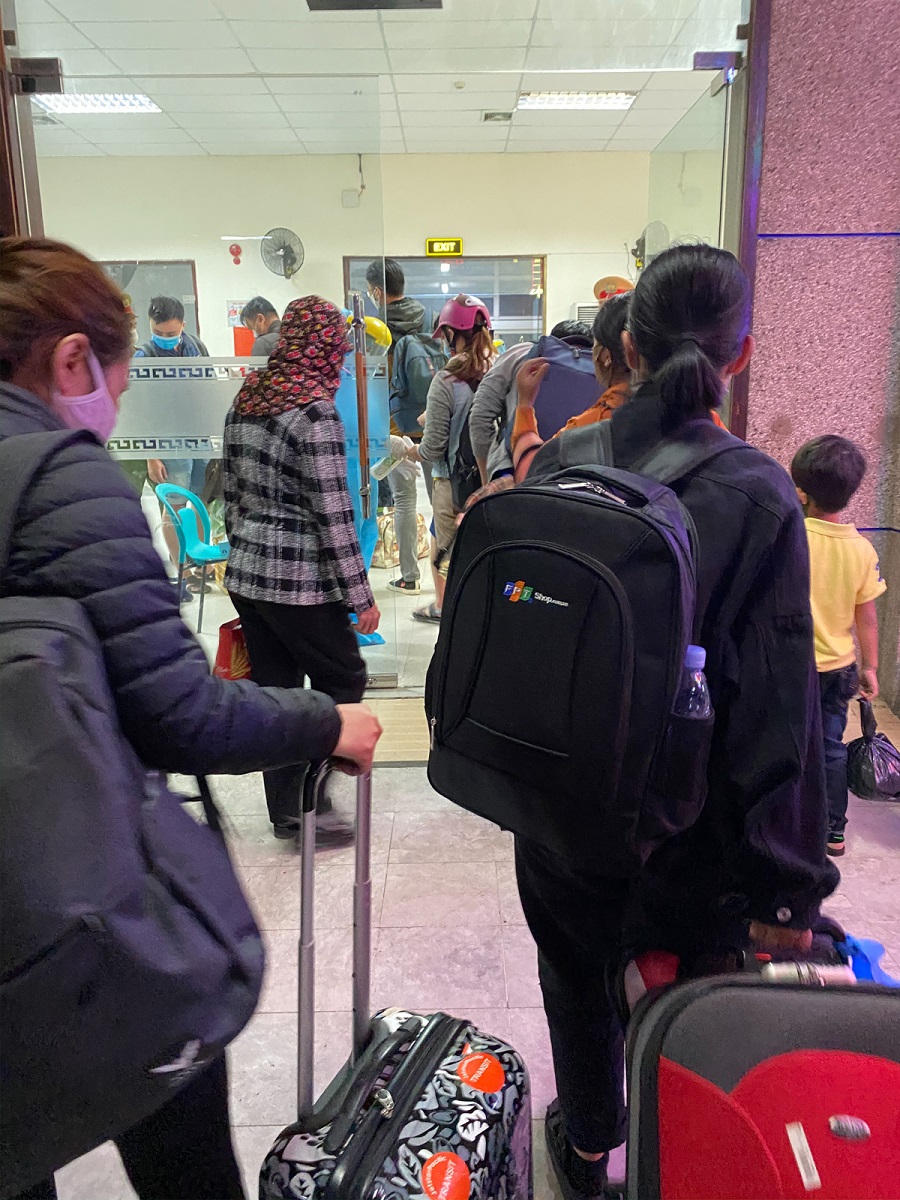
We also had to download their Health Declaration app and fill in our information. Every day the app asks us if we're feeling well or have any symptoms. That way, they can track how we are feeling. If anyone needs any help, they can react much faster than in other countries. Each person is identified with a certain number, which can be scanned through a QR code.
And now we're here. We came to Da Nang at the very last minute. The next day the city was closing down. We got lucky with finding accommodation because many didn't accept foreigners anymore. It was the government's order, so they stop the unnecessary movement.
Tell us about your day. Do you/can you leave your apartment?
The official lockdown (or social distancing measures - the official name they use) was from April 1st until the 15th, but now they extended it for another week. Although there's a huge possibility it will be extended again. We're advised to go out only if necessary, but you can go for a walk, exercise, etc. However, there are many restrictions, especially in the area where we are as it is considered a bit more touristic. The beach is closed. It's not possible to get near it as the police and lifeguards are patrolling the area.
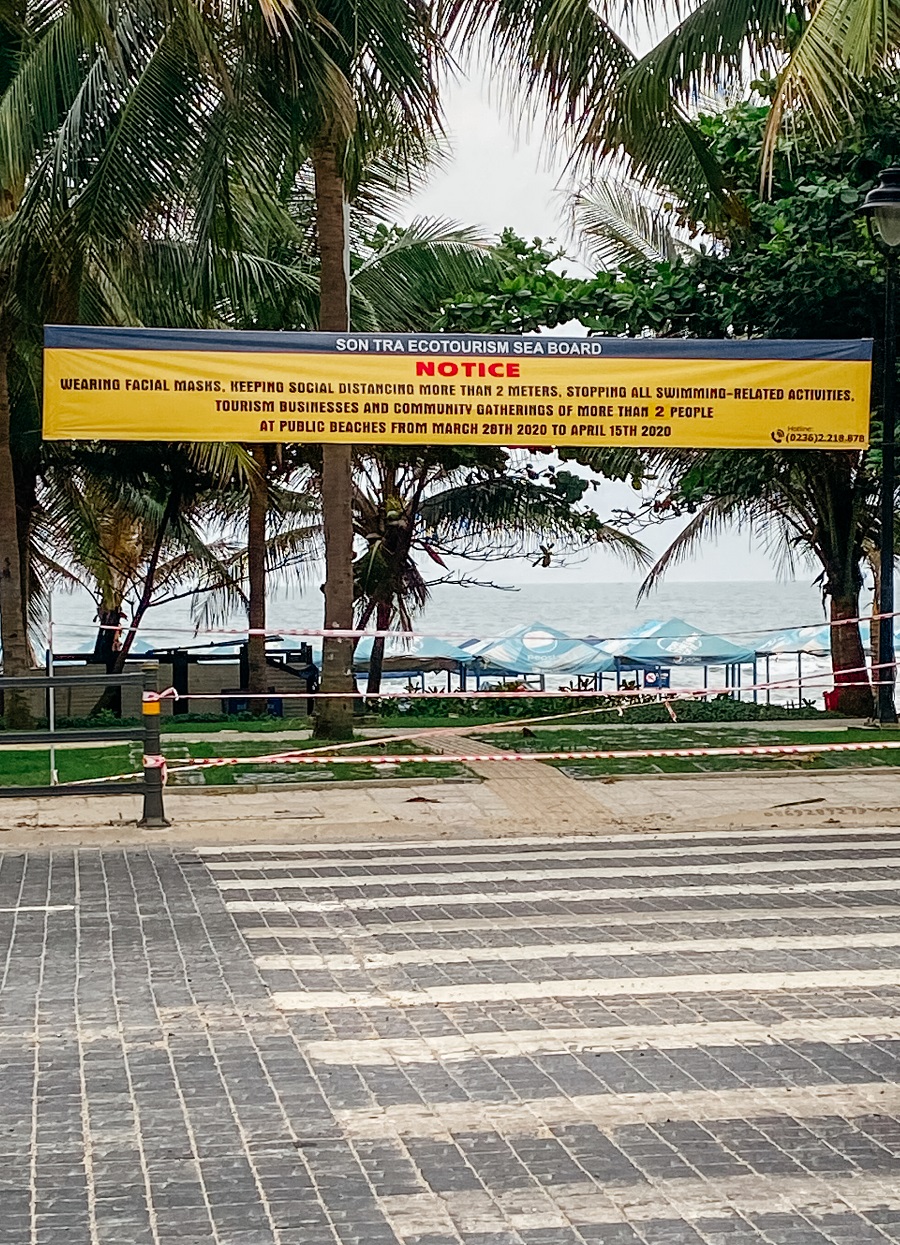
We don't go out much during the day as it's a bit annoying with all the restrictions, and it can be quite busy. That's why we go for night walks around 11 pm. Then we go to the beach because there's no police patrolling the area, and not that many people. Although more and more people started doing the same.
Other than that, we try to make some kind of routine. I finally started working out. This is also the perfect time for learning something new as there are many free webinars and courses about everything. I'm using this situation to improve my skills. There's always something to do. We're not bored at all.
How are the authorities doing at handling the situation?
I think they are doing pretty well. Many police officers are patrolling the area. You know what the rules are, and if you break them, they start whistling right away, letting you know you did something wrong. Other than that, there are fines too, so people are respecting the rules. Vietnam reacted very fast, put strict measures, and they are sticking to it. At the moment, they have only 67 active cases and 0 deaths. For now, we feel safe here.
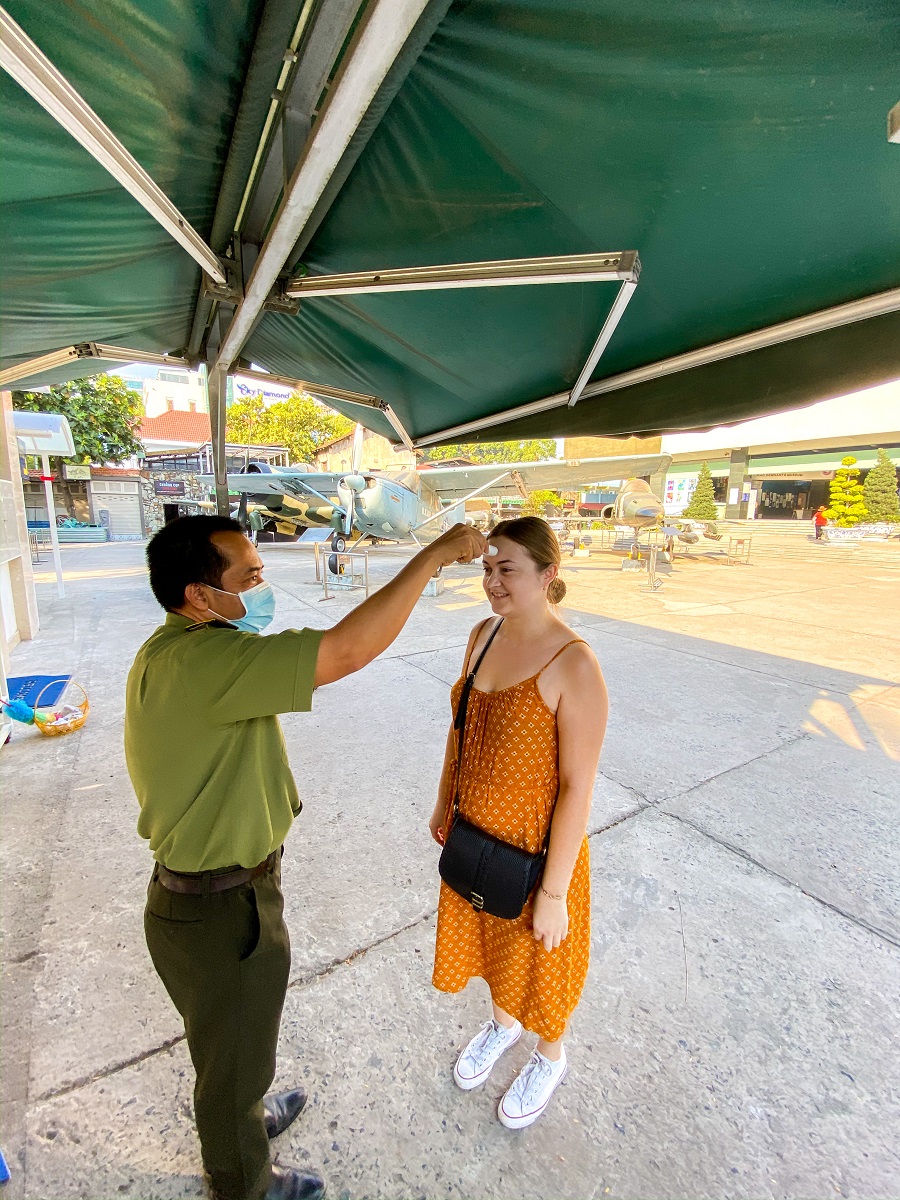
You obviously keep an eye on your homeland. What is your impression of the way Croatia is dealing with the crisis?
Honestly, I don't watch the news that much anymore. I quickly check the situation in Vietnam, so we stay up to date with any new regulations. It was stressing me too much, so I decided to cut that. :D
But when I still watched the news, the only thing I saw was people breaking self-isolation and putting others in danger. If the measures against that were stricter or people were better educated about the situation, I'm sure those cases would be rarer.
Compare and contrast the responses of Croatia and Vietnam. Who is doing what better?
I'm not that familiar with all the measures from both countries. Considering Croatia, I know what I hear from my family, and the thing I dislike a lot is not being able to move from one municipality to another. We know that Croatia has way too many municipalities aka 'općine', and now it is clear that they are entirely useless (it was clear even before but…). For example, my parents are living in the village, which is an 'općina' for itself, and they don't have any big grocery store there. Where to make that 'big shopping' then? The small local stores are so expensive (now even more), and they don't have fresh products. Sometimes, you can also find expired products (without a discount). They're not allowed to go to the small town nearby without a pass (I don't even want to comment on that), so many people in the same situation are having issues. Vietnam also has restricted movement across provinces, but those are much bigger areas, and that makes much more sense.
Also, I don't get how limited the working hours of the stores help. The workers are still exposed to people coming, so what difference does it make. Here the grocery stores work regular hours, which I find better as people spread more equally during those working hours. And people don't stack up on the groceries.
What about official communications from the authorities, compared to your home country?
I'm not sure how it is in Croatia, but here there are signs everywhere explaining social distancing measures. They even have audio coming from the speakers close to the beach explaining the rules. Signs and audio are both in English and Vietnamese. Every day they are sending messages reminding you to wash your hands and stay inside. Online taxi apps (like Grab, which is similar to our Uber) sends you notifications about measures and precautions too. Vietnam even made a viral song about coronavirus intending to educate its citizens. There is also a choreography with dances moves that show the right way of washing your hands. The conclusion is, both locals and foreigners are well informed about everything that's going on.
What's the one thing you wish you had taken with you into self-isolation?
This is a hard question. I don't feel like I miss anything at the moment. However, I wouldn't complain if we had a pool. I'm losing my tan and starting to look like a ghost again (I am very pale). Also, I wish I had more money for all the excellent tools, courses, etc. on huge discounts now. But there's just too many.
One thing you have learned about yourself and one thing you have learned about others during this crisis.
Once again, I learned how much I hate being stuck inside. I was a lot inside before this trip as I worked from home, and the reason we started this trip is for adventure and exploring. And now we're back doing the same. :D
I learned stressing too much about the situations you can't control won't be of any help. You'll just end up being unhappy. The best thing is going with the flow, solve one problem at a time, and adapt to the situation. The faster you adapt, the easier it gets.
In this crisis, you could see the worst and the best in people. Those two extremes were really seen now.
I also learned how bad situations connect people and how many are ready to help. I made some friends in all this mess as we all reached out to one another, trying to make the right decisions.
If you could be self-isolating in Croatia, where would it be, and why?
I don't have any specific location in mind. My go-to place would be the same for any country: some mountain cabin with a lot of nature and a lake nearby, an isolated spot so I could go out in nature whenever I want, without many people around.
Thanks, Arijana. Stay safe and see you on the other side. You can see all the stories in both this diaspora series, and the one on expats in Croatia on this link.
TCN is starting a new feature series on Croatian diaspora experiences of sitting out COVID-19 abroad and comparing your experiences to the situation in Croatia. If you would like to contribute, the questions are below. Please also include a para about yourself and where you are from, and a link to your website if you would like. Please also send 3-4 photos minimum to This email address is being protected from spambots. You need JavaScript enabled to view it. Subject Corona Diaspora
If you would be interested to record a video version for our partners www.rplus.video please let us know in the email. Thanks and stay safe.
Self-Isolation Voices from the Diaspora
Firstly, how are you? Are you alone/with someone? Tell us a little about your situation and sanity levels.
When did you realise that corona was going to be a big issue?
When did you realise that corona was going to be a big issue in New York in particular?
Give us a timeline on when and how life changed.
Tell us about your day. Do you/can you leave your apartment?
How are the authorities doing at handling the situation?
You obviously keep an eye on your homeland. What is your impression of the way Croatia is dealing with the crisis?
Compare and contrast the responses of Croatia and USA. Who is doing what better?
What about official communications from the authorities, compared to your home country?
What's the one thing you wish you had taken with you into self-isolation?
One thing you have learned about yourself, and one thing you have learned about others during this crisis.
If you could be self-isolating in Croatia, where would it be, and why?
TCN has recently become a partner in Robert Tomic Zuber's new R+ video channel, initially telling stories about corona experiences. You can see the first TCN contribution from this morning, my video from Jelsa talking about the realities of running a news portal in the corona era below. If you would like to also submit a video interview, please find Robert's guidelines below
VIDEO RECORDING GUIDE
The video footage should be recorded so that the cell phone is turned horizontally (landscape mode).
There are several rules for television and video news:- length is not a virtue- a picture speaks more than a thousand words
In short, this would mean that your story should not last more than 90 seconds and that everything you say in the report should be shown by video (for example, if you talk about empty streets, we should see those empty streets, etc.).
How to do it with your cell phone? First, use a selfie camera to record yourself telling your story for about a minute and a half. Ideally, it would be taken in the exterior, except in situations where you are reporting on things in the interior (quarantine, hospital, self-isolation, etc.). Also, when shooting, move freely, make sure everything is not static.
After you have recorded your report, you should capture footage that will tell your story with a picture, such as an earlier example with empty streets.
One of the basic rules of TV journalism is that the story is told in the same way as a journalist with his text. Therefore, we ask you for additional effort. Because we work in a very specific situation, sometimes you may not be able to capture footage for each sentence of the report. In this case, record the details on the streets: people walking, the main features of the city where you live, inscriptions on the windows related to the virus, etc.
The same rules apply if you are shooting a story from your apartment, self-isolation, quarantine. We also need you to capture footage that describes your story.
When shooting frames to cover your reports, it is important that you change the angle of the shot (in other words, shoot that empty street from several angles). Also, when shooting a detail, count at least five seconds before removing the camera to another detail.
The material should be about 5 minutes long (90 seconds of your report + frames to cover your story).
After recording everything, send us to Zagreb, preferably via WeTransfer to This email address is being protected from spambots. You need JavaScript enabled to view it.
Expats in Isolation Top 10 Croatia Experiences: Monique from Romania in Podstrana
April 15, 2020 - As people look for escape from the mental stress brought on by the corona crisis, a new series on TCN with local expats in isolation, looking back at their top 10 Croatia experiences so far. Nex up, TCN owner Paul Bradbury from Manchester in Jelsa.
I have had a LOT of emails and messages asking if TCN could write about something happier than the constant corona updates. I hear your pain, but with so much (sadly bad) news to report and limited resources due to the crisis, this is not so easy. But then I thought of a nice series which might perhaps pique people's interests, focus on the happy stuff, and even unearth some hidden gems to explore at a later date.
Having done a very successful series with over 30 submissions from expats around the world on their self-isolation experiences in Croatia compared to what is happening in their home country, and then following that with a series on Croats in the diaspora with their corona viewpoint of their country of residence compared to the Homeland, perhaps a happier and more interesting series would be to look at expats here today and their top 10 experiences in Croatia so far.
We started in Split with Ionut Copiou from Romania.
Next up, another Romanian - Monique Ioanitescu, who is currently in Podstrana.
If you would like to contribute to this series, contact us on This email address is being protected from spambots. You need JavaScript enabled to view it. Subject Top 10.
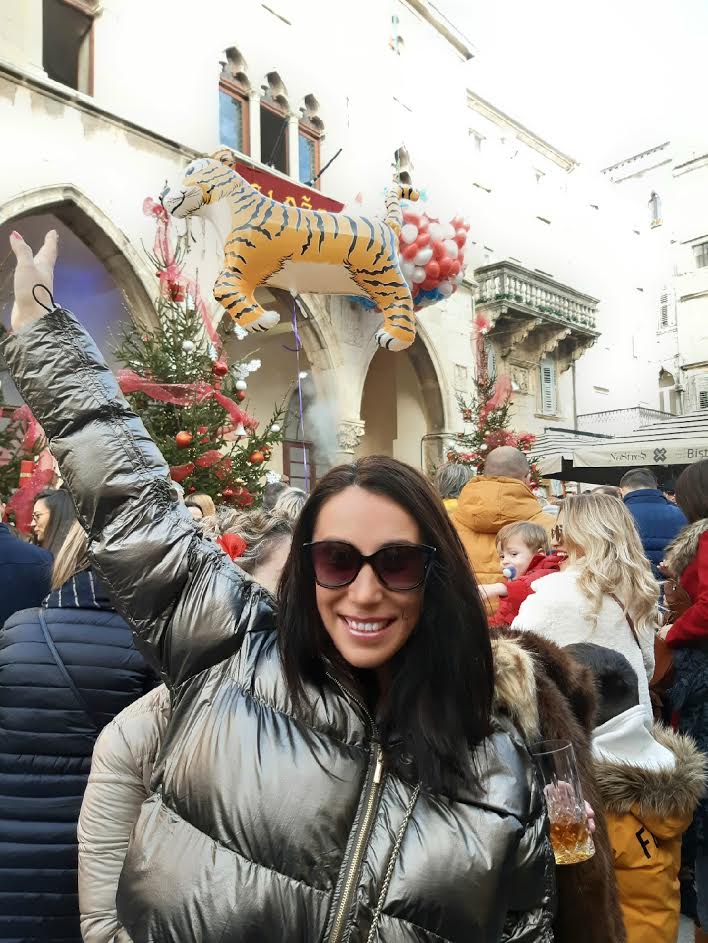
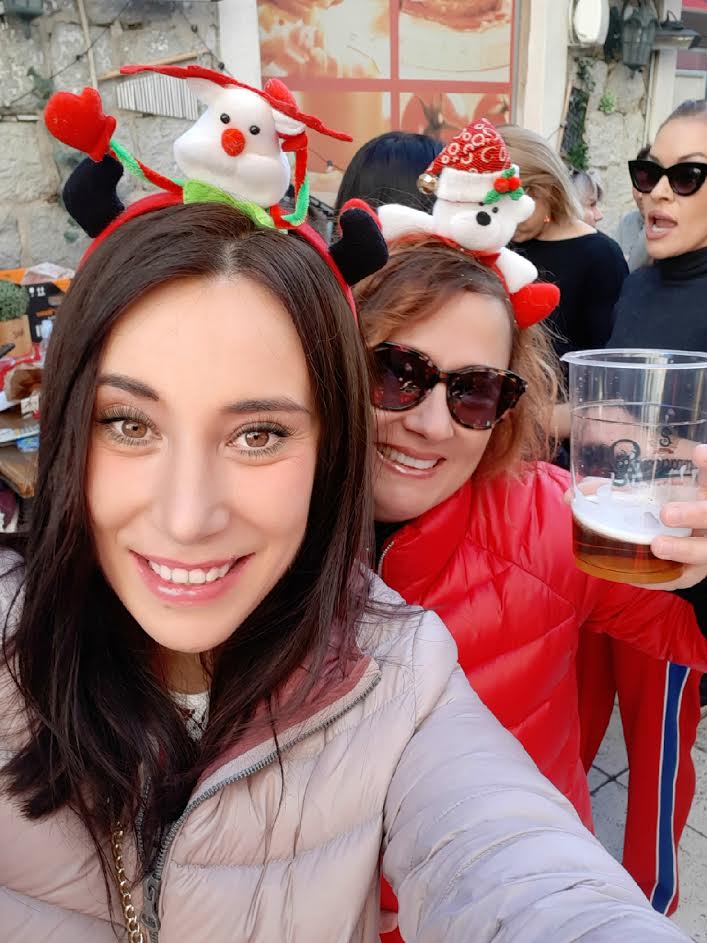
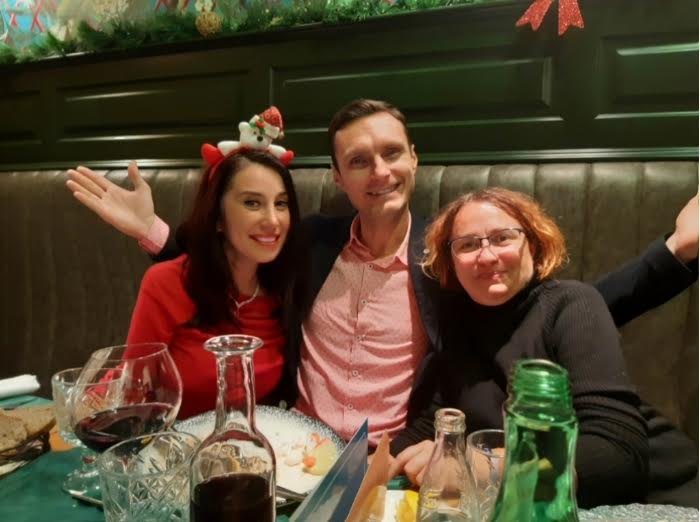
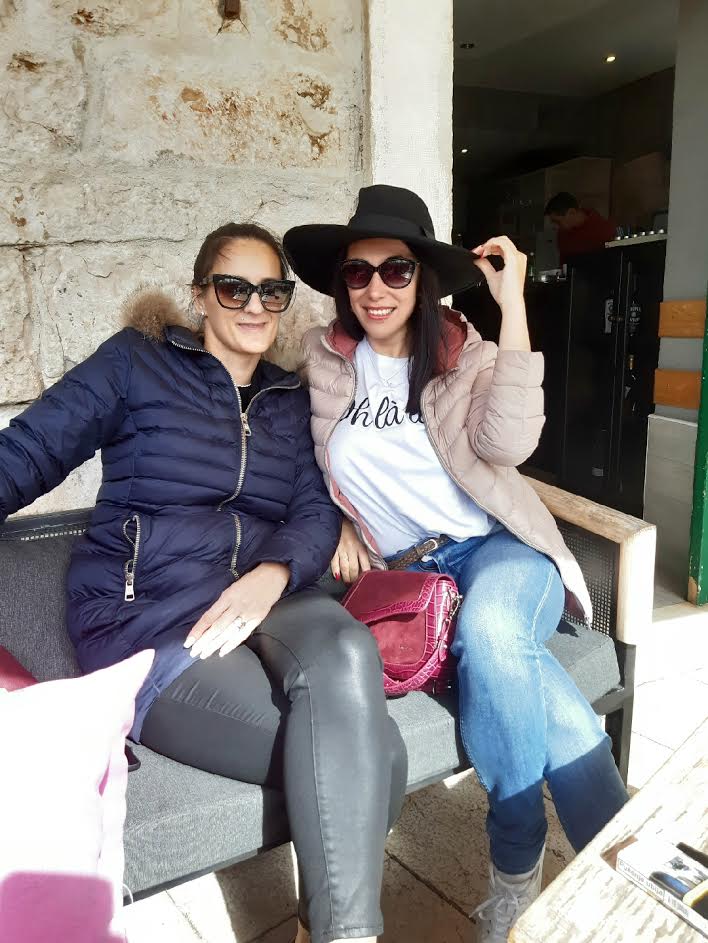
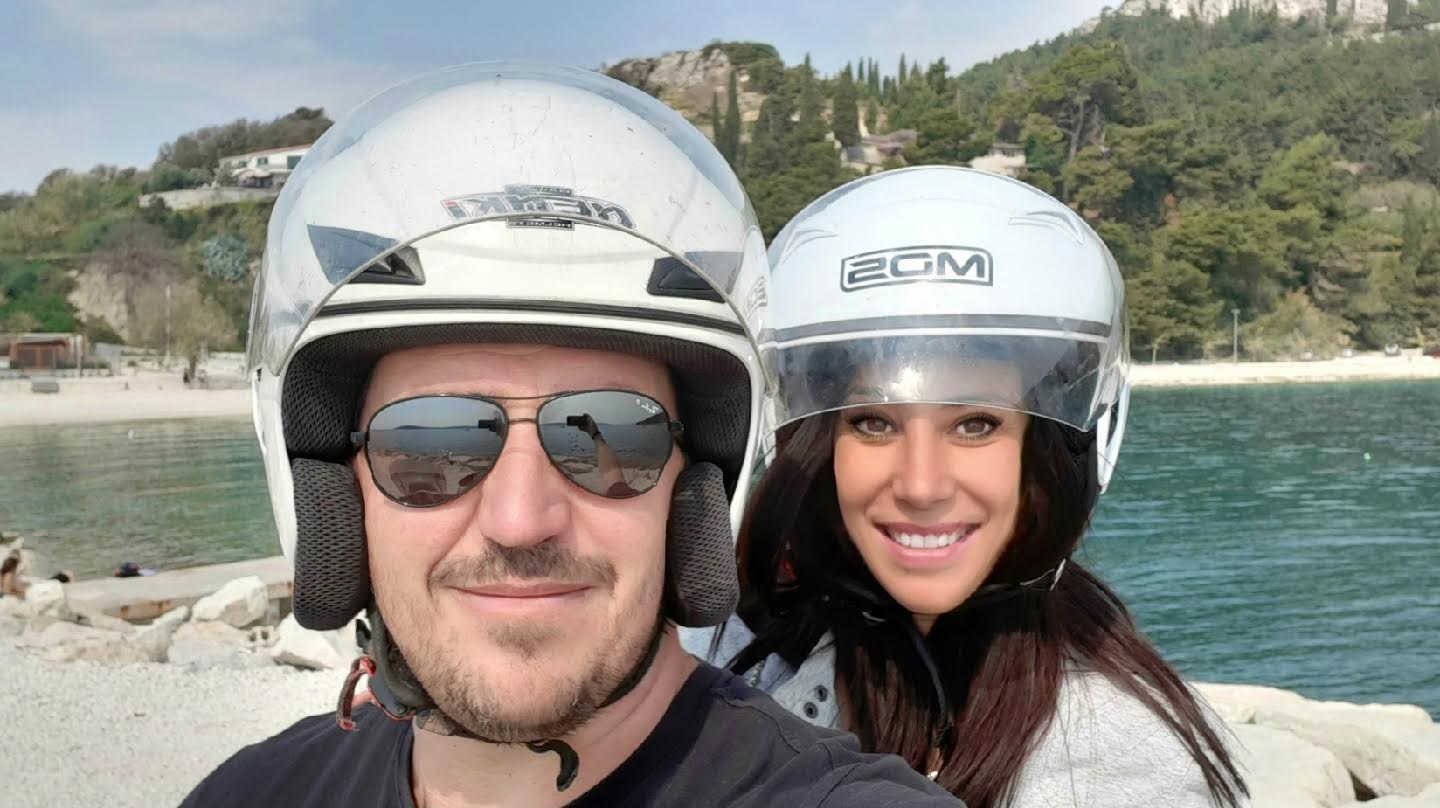
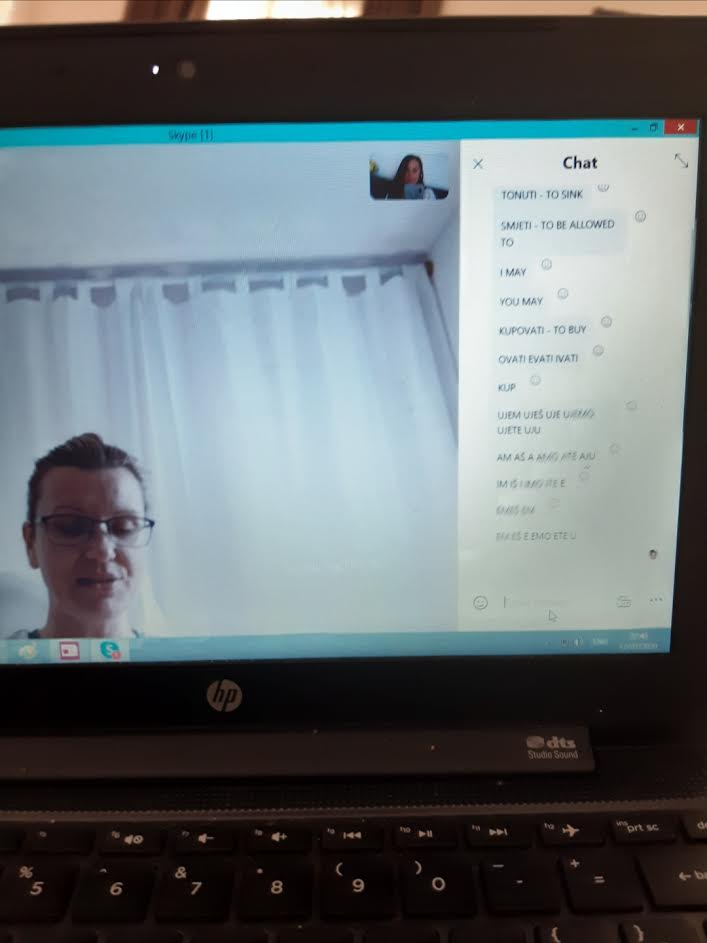
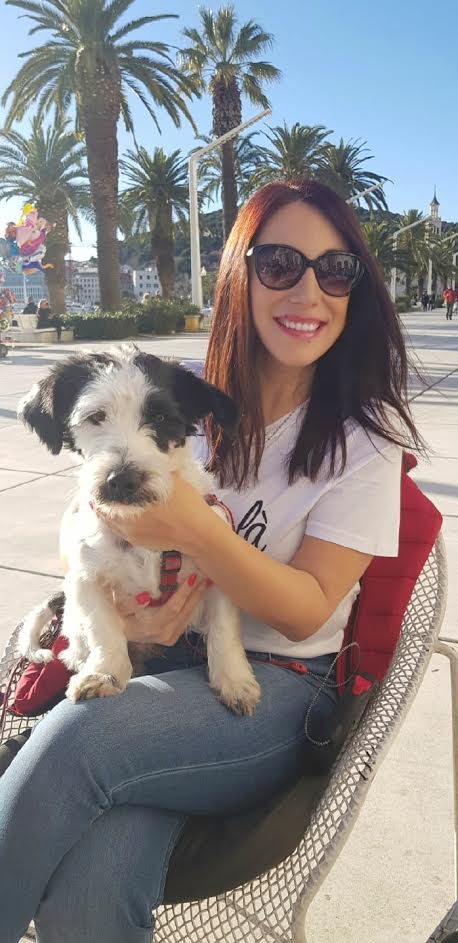
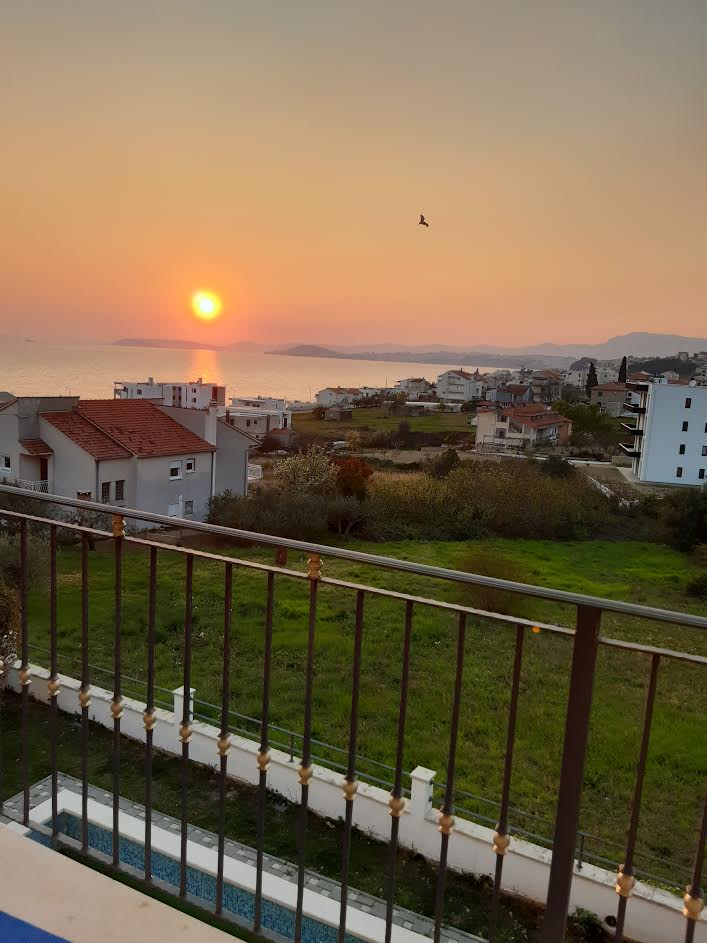
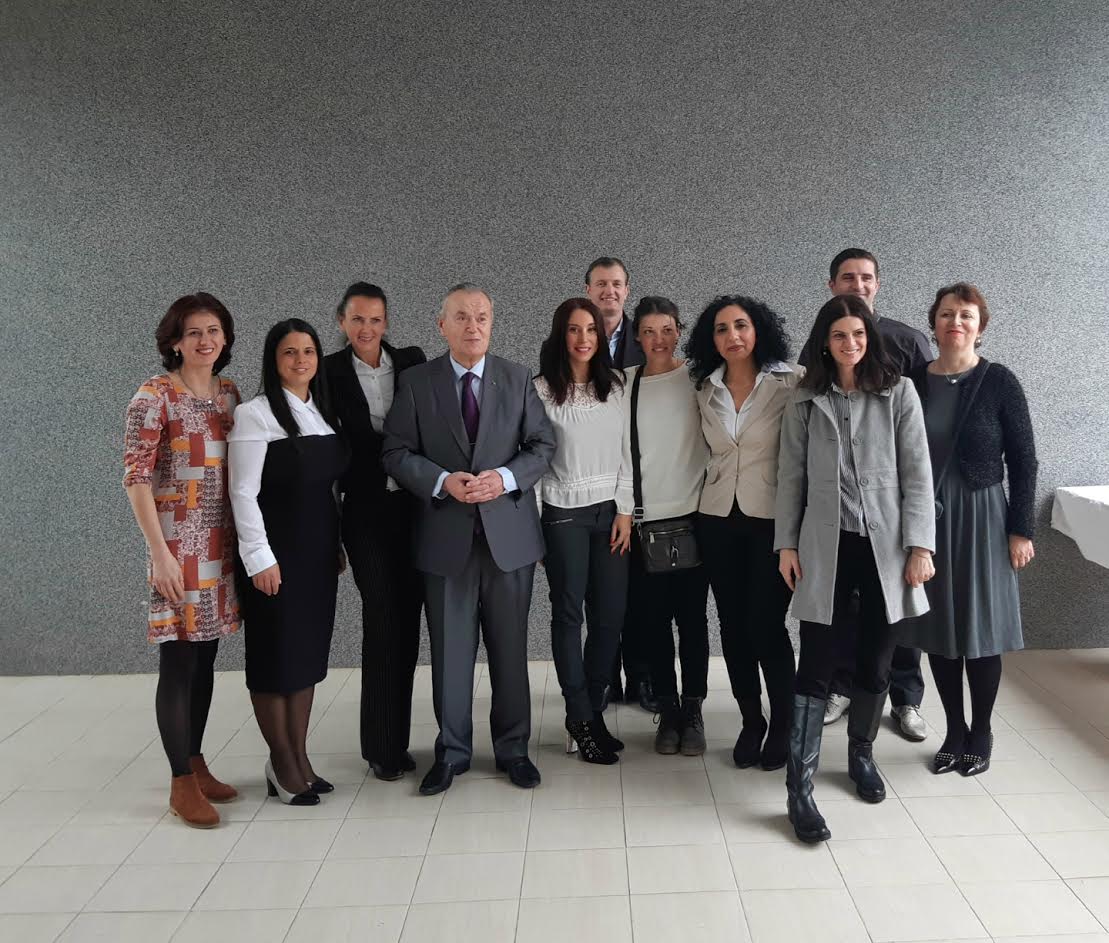
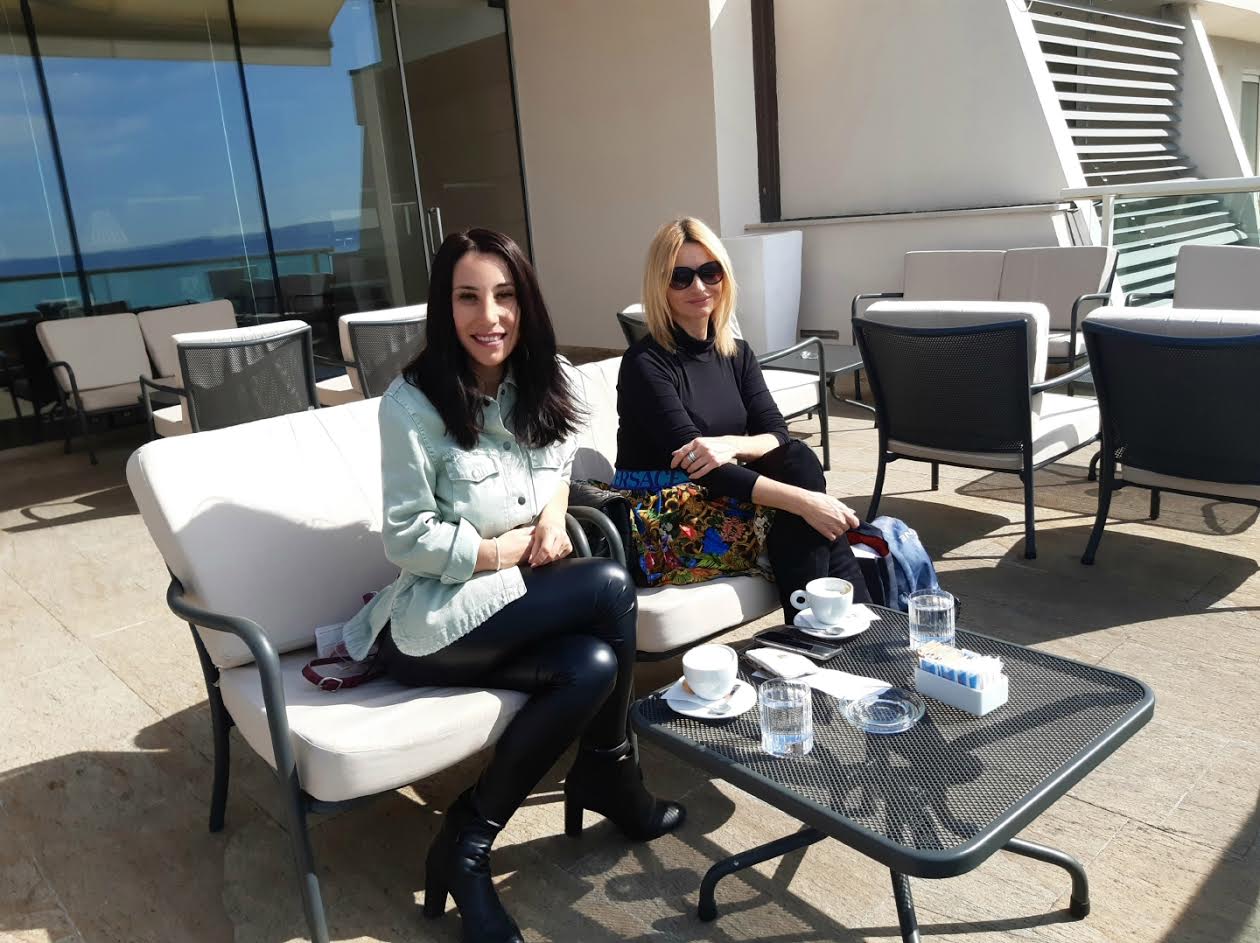
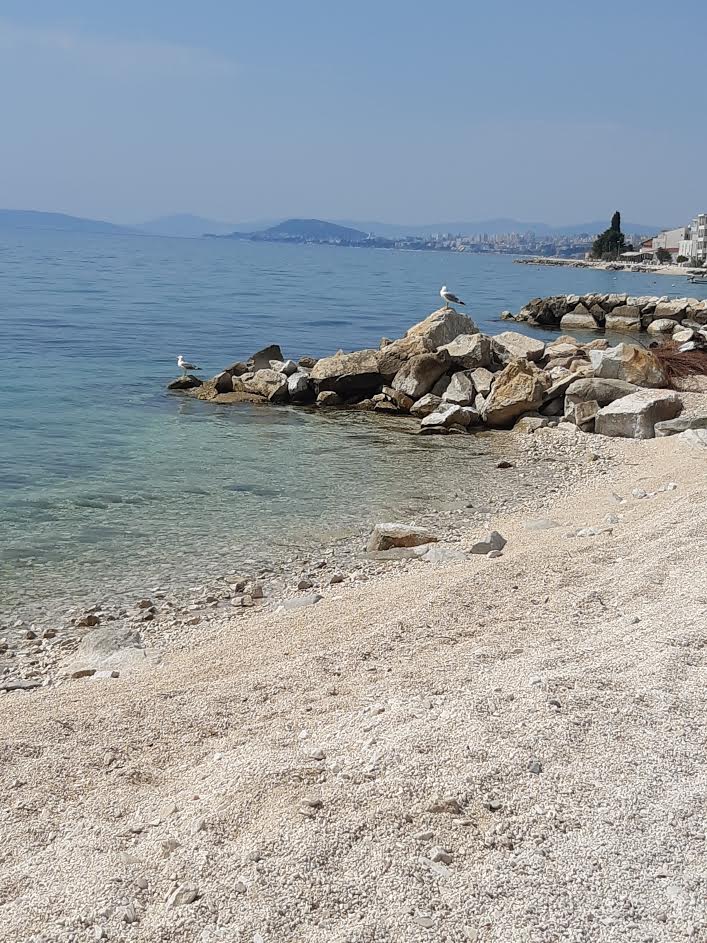
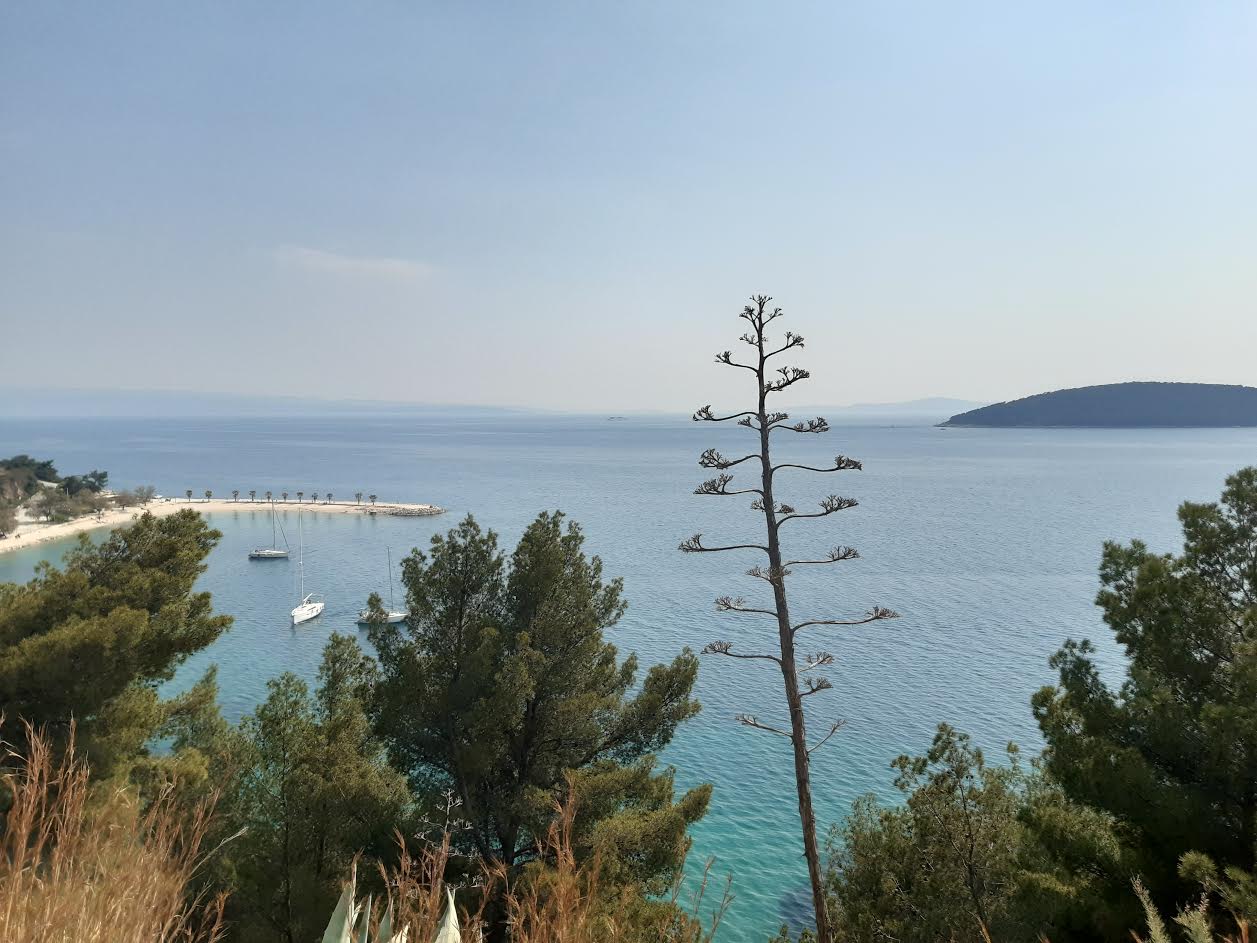
Are you an expat in Croatia with a little time on your hands and some fabulous memories and experiences to share? If you would like to participate in this series, please contact us at This email address is being protected from spambots. You need JavaScript enabled to view it. Subject Top 10.
To see the other stories in this series, as well as expat self-isolation stories compared to their home countries, and corona voices in the diaspora, visit the dedicated section.
Kad su za vas bile "zlatne godine" u Hrvatskoj? Ankica Mamić iz Zagreba
15. travnja 2020. - Dakle, kad je za vas bila zlatna era života u Hrvatskoj? Nova serija članaka osvrće se na sretnija vremena kroz oči stanovnika Hrvatske. Prva u seriji je dugogodišnja ljubiteljica TCN-a i vrhunska kuharica, Ankica Mamić iz Zagreba.
Dobio sam mnoge molbe da na ovu stranicu dodat drukčiji sadržaj - po mogućnosti veseliji - da bih malo unio živosti u cijelu ovu mizeriju vezanu za koronu. Razumijem te očajničke želje. Ako mislite da su vijesti o koroni toliko naporne, podijelite neku lijepu misao s nama kojima je posao o tome izvještavati cijeli dan.
Pa eto ideje, na kojoj sam veoma zahvalan mojoj prijateljici Ankici Mamić, koja ju je tako izvanredno pokrenula - Kada su za vas bile "zlatne godine" u Hrvatskoj?
Prije par tjedana pokrenuli smo seriju Foreign Self-Isolation Stories: Do You Feel Safer? (Strane priče iz samo-izolacije: osjećate li se sigurnije?), u kojima smo pitali strane državljane koji žive u Hrvatskoj da usporede kako se Hrvatska nosi s ovom situacijom, u usporedbi s njihovim originalnim domovinama. Do sada smo dobili gotovo 40 sjajnih odgovora na intervju, od Hong Konga do Hondurasa, Kine do Meksika, Japana do Novog Zelanda.
Novi logičan iskorak bio je Glasovi Korone u dijaspori, u kojima smo nastojali saznati kako se Hrvati u inozemstvu nose s okolnostima u kojima su se našli, u usporedbi s Domovinom.
A onda, da bismo pokušali dodati nešto veselja, započeli smo "Stranci u izolaciji: Mojih 10 najboljih iskustava u Hrvatskoj". Te članke možete pronaći, kao i upute za prijave na bilo koju od tih kategorija, ispod intervjua u pojedinačnim člancima ovdje.
Ali, istovremeno sam htio pronaći način da se ljudi u Hrvatskoj sjete sretnijih vremena, pa smo razmišljali uvesti seriju članaka o sjećanjima ljudi o njihovoj najdražoj eri života u Hrvatskoj. Ako želite sudjelovati, molim vas da pošaljete svoj tekst, 4-6 fotografija, uvodni pasus te (ako to želite) link na vašu web-stranicu na This email address is being protected from spambots. You need JavaScript enabled to view it., sa subjectom Zlatna era.
A sad, pročitajmo što o zlatnim godinama ima reći Ankica Mamić.
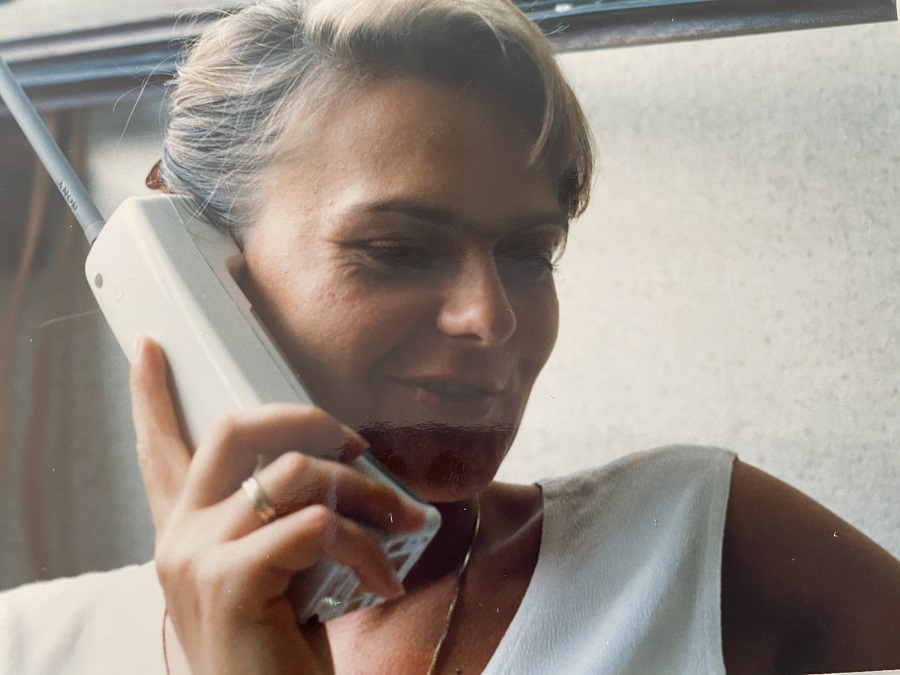
Hrvatska je prekrasna zemlja i kad bi govorili samo o oku vidljivim ljepotama i prednostima života u njoj, lista bi bila jako duga. Međutim, nije lijepo uvijek samo ono „izvana“. Najljepše uspomene nastaju onda kada se ostvaruju ciljevi – životni i poslovni, vlastiti i opći.
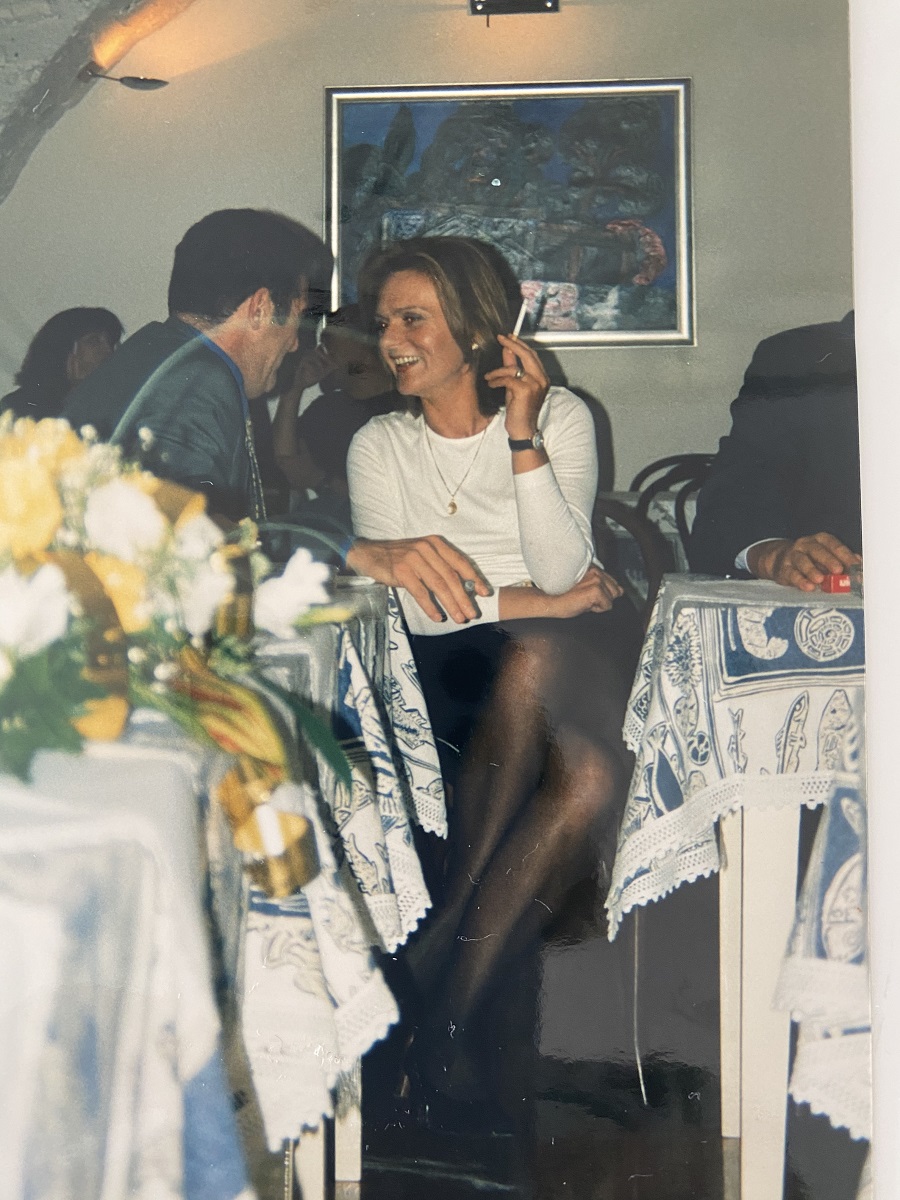
Stoga bih se najprije vratila u vrijeme kasnih 80-tih, kada se nazirao pad komunizma i kada je počela izranjati stoljetna čežnja za vlastitom državom. Tada sam bila u godinam kada sam mogla s dovoljno zrelosti, a opet i dovoljno mladosti za zanos i strast, sve to proživljavati i razumijevati. „Gutala“ sam vijesti, pratila sve što se priča i događa, s nestrpljenjem iščekivala svaku novost. Nažalost, shvatili smo vrlo brzo da će ostvarenje sna biti teško i bolno. Počeo je rat i naši životi su se preko noći promijenili. Međutim, to teško vrijeme donijelo je i mnogo lijepih stvari. Zajedništva, promišljanja i traženja rješenja. U podrumima zagrebačkih restorana okupljale su se skupine ljudi koje su na različite načine željele dati svoj doprinos i sa zadovoljstvom sam se i sama pridružila. Bila sam blizu mnogim ljudima koji su ubrzo postali jako važni i koji su ostavili trag u mom životu. Ponajprije, od tih sam ljudi ljudi mogla puno naučiti jer su me inspirirali da tražim najbolje dijelove sebe.
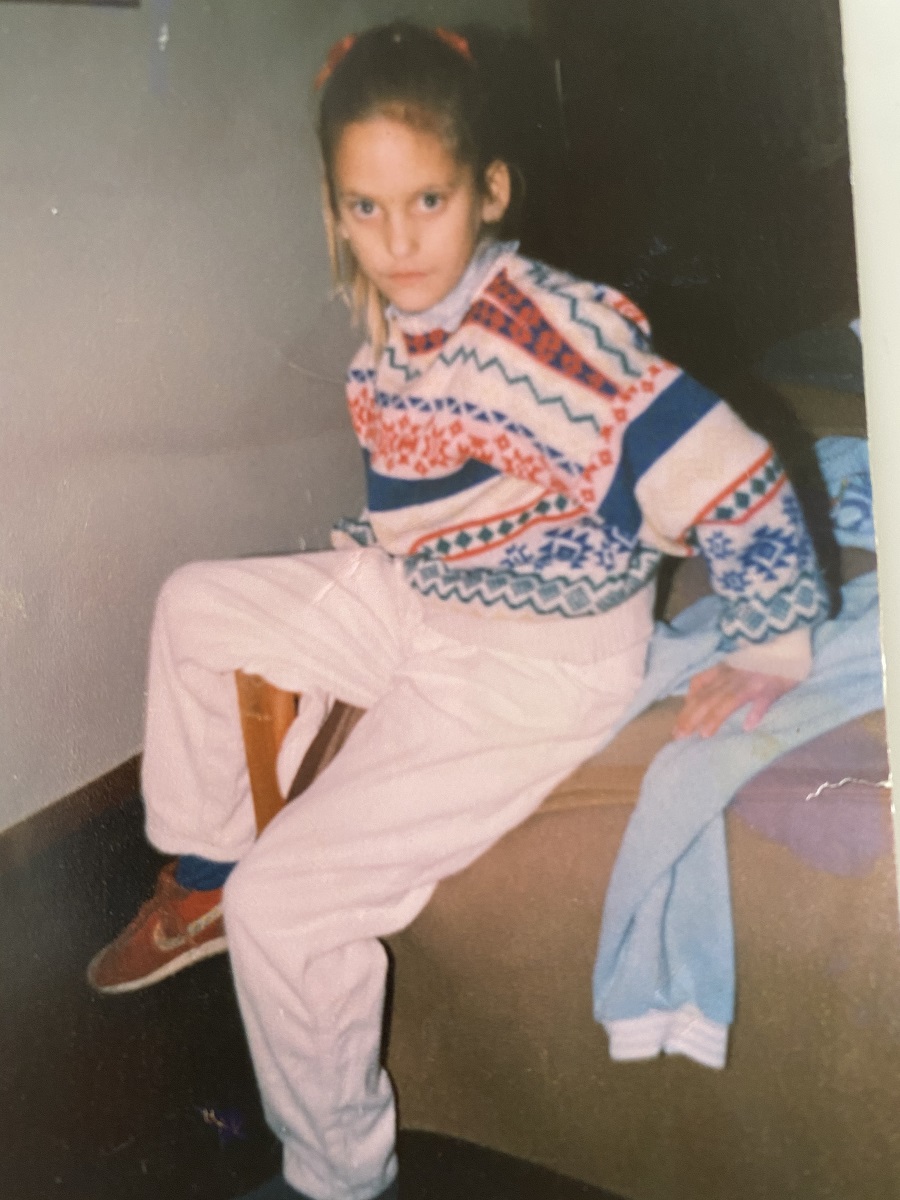
Iz toga vremena naravno pamtim i strahove. Iako je u Zagrebu bilo relativno mirno, život je bilo teško organizirati u vrijeme između uzbuna. Najteže mi je bilo dok je moja tada desetogodišnja kći još uvijek morala ići na nastavu. Znali smo da će cijena slobode biti velika, ali svejedno, sreća koja se nazirala nakon toga rata izgledala je vrijedna svega.
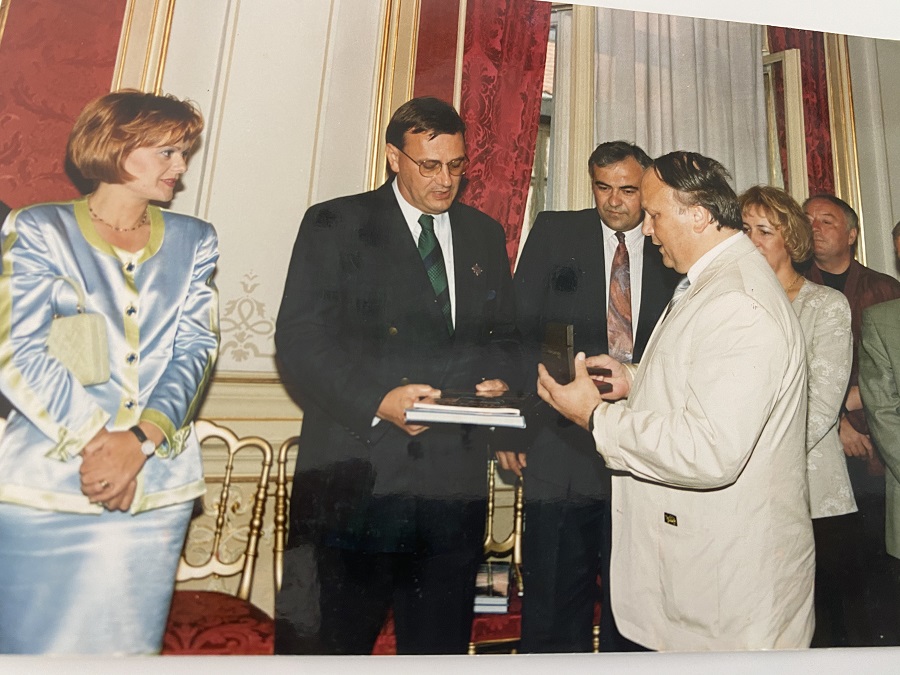
Posljedice rata bile su očekivane. Nastupilo je je dugo razdoblje prilagodbe, sporog dizanja i oporavka. Međutim, dočekali smo i bolja vremena. Razdoblje od 2000. do 2006. posebno pamtim kao vrijeme u kojem smo doživjeli ekonomski procvat. I sama sam, kao relativno mladi poduzetnik, vidjela i našla svoju priliku. U to vrijeme pokrenula sam agenciju za odnose s javnošću. Struka koja zapravo nije postojala počela je živjeti i prilike su se otvarale. U to je vrijeme u Hrvatskoj zaista bilo lijepo raditi, ali i živjeti. Dobili smo i željenu autocestu Zagreb-Split za koju su i naši roditelji izdvajali samodoprinos i koja nam je omogućila da počnemo vikende provoditi u predivnoj Dalmaciji. Iz tog vremena nosim i najljepše uspomene s naše obale, krstarenja i otkrivanja otoka, druženja i uživanja u hrvatskoj gastronomiji i vinima. Naime, među granama koje su apsolutno procvjetale otkada smo dobili državu, svakako su gastronomija i proizvodnja vina.
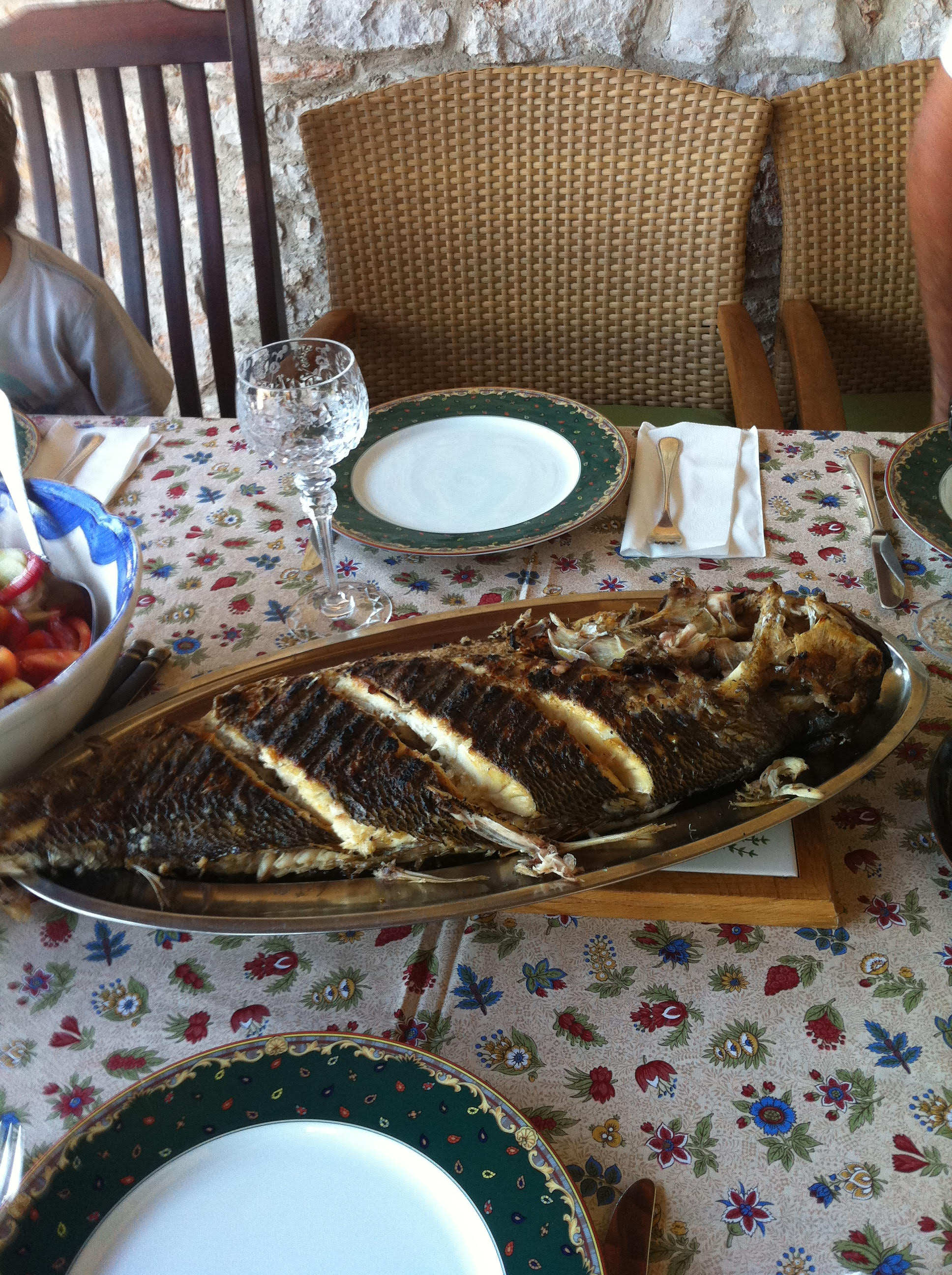
Život se sastoji od dobrih loših i dana, dobrih i loših godina. Iz svake krize trudila sam se nešto naučiti. Međutim, ova kriza koju sada dijelimo sa svijetom, nekako mi se čini najtežom do sada. Malo je onoga što mi se čini da će biti dobro nakon nje. Možda ipak jedna stvar. Hrvatska ima priliku propitati smisao glomaznog državnog aparata i pročistiti mnoge nepotrebne organizacije i agencije. Jedno malo dobro već se vidi na kraju tunela. A to je krah populističkih politika, koje su se u krizi pokazale potpuno nemoćnim.
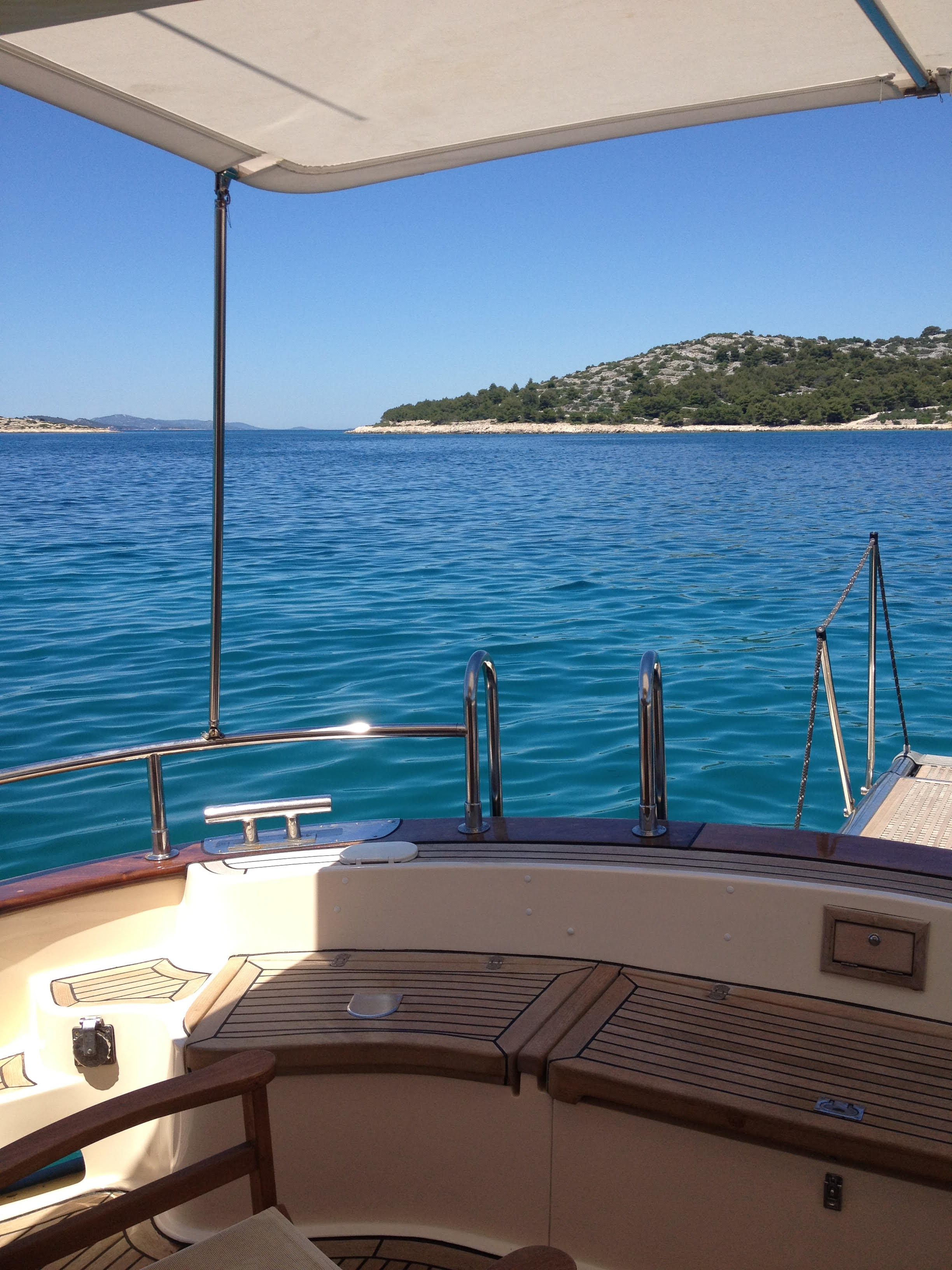
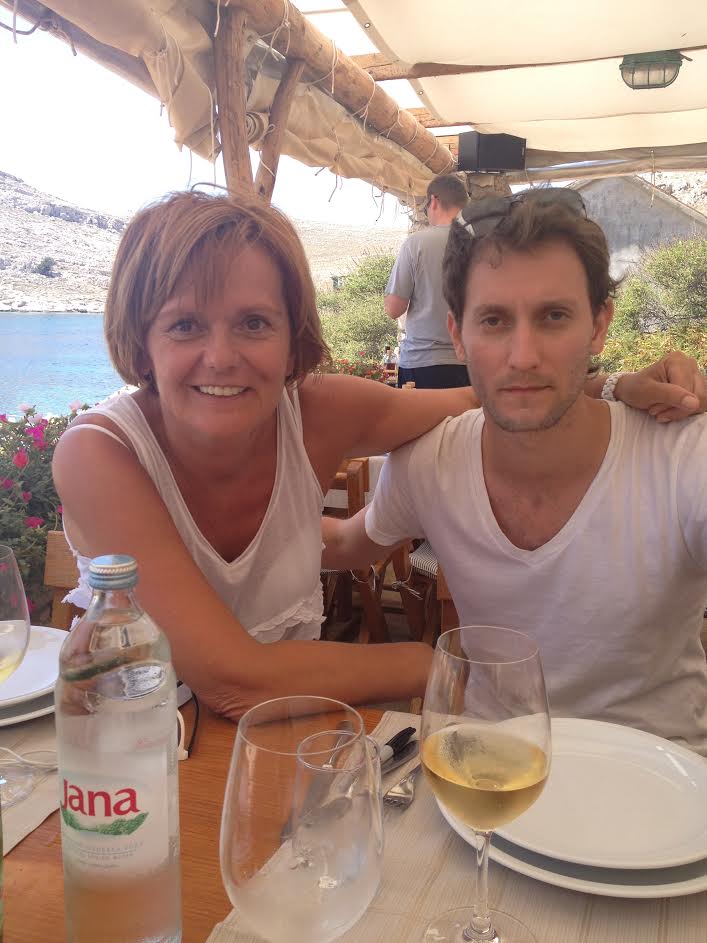
S Ankicom Mamić možete se povezati putem mreže LinkedIn.
Da biste pročitali više članaka iz jedne od naših šest serija koje smo gore spomenuli, kliknite ovdje (na eng. jeziku).
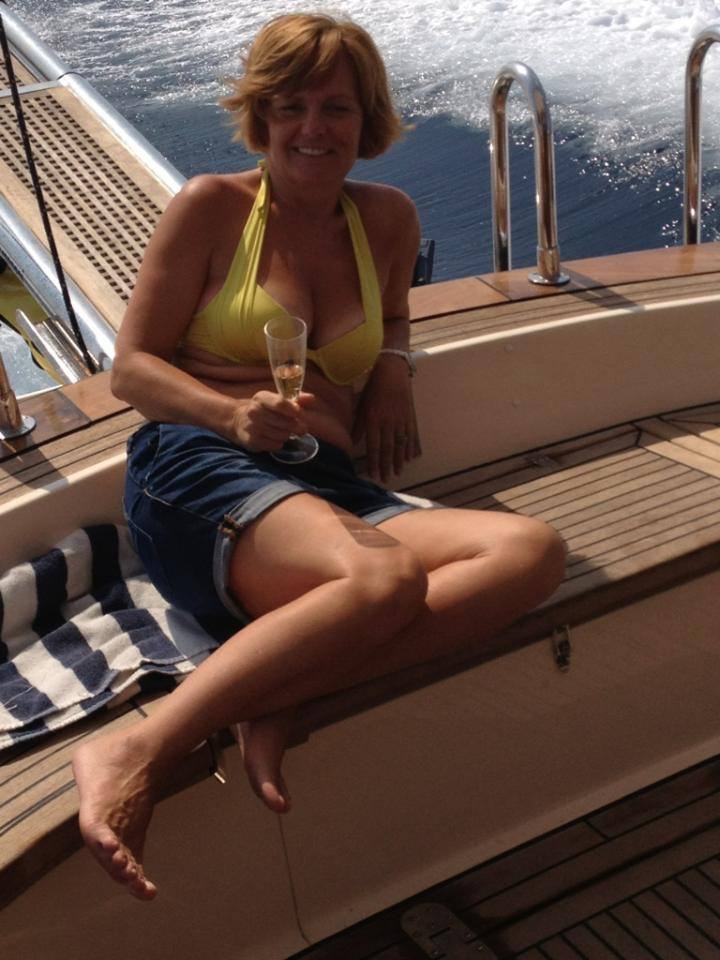
Expats in Isolation Top 10 Croatia Experiences: Paul Bradbury from Manchester in Jelsa
April 15, 2020 - As people look for escape from the mental stress brought on by the corona crisis, a new series on TCN with local expats in isolation, looking back at their top 10 Croatia experiences so far. Nex up, TCN owner Paul Bradbury from Manchester in Jelsa.
I have had a LOT of emails and messages asking if TCN could write about something happier than the constant corona updates. I hear your pain, but with so much (sadly bad) news to report and limited resources due to the crisis, this is not so easy. But then I thought of a nice series which might perhaps pique people's interests, focus on the happy stuff, and even unearth some hidden gems to explore at a later date.
Having done a very successful series with over 30 submissions from expats around the world on their self-isolation experiences in Croatia compared to what is happening in their home country, and then following that with a series on Croats in the diaspora with their corona viewpoint of their country of residence compared to the Homeland, perhaps a happier and more interesting series would be to look at expats here today and their top 10 experiences in Croatia so far.
We started in Split with Ionut Copiou from Romania.
Next up, me. I almost forgot to contribute to the self-isolation series, so I will write now while I have the time. It was a pleasant journey through 18 years of memories in this magnificent country, and narrowing it down to my top 10 Croatia experiences was not easy, but here they are.
If would like to contribute to this series, contact us on This email address is being protected from spambots. You need JavaScript enabled to view it. Subject Top 10.
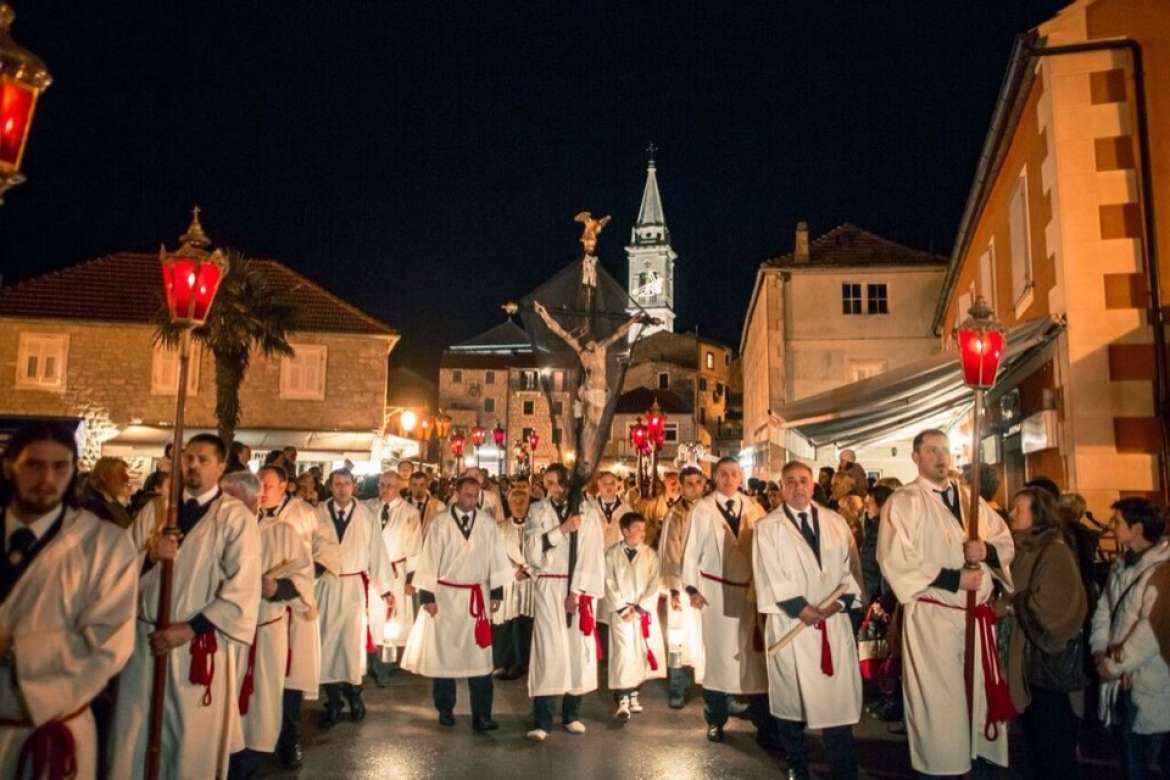
Za Krizen (Behind the Cross) Holy Week Procession in Jelsa on Hvar.
Of all the places I have visited and lived in, I don't think I have ever come across a tradition which is such an integrated part of a community as Za Krizen in Jelsa. The annual procession, which has taken place for over 500 years each Maundy Thursday at 22:00 through the night until 07:00 is a unique and magical experience which I have been fortunate enough to observe for many years now. The procession aside, the whole atmosphere in Jelsa over Easter is one of joy, as the island awakes from its winter slumber, and extended families return to celebrate the religiously important Easter weekend.
This year's za Krizen was very different, of course, due to the corona crisis, and it was a VERY strange feeling after all these years to find myself the only person on the main square as the procession began. You can learn more about my first-hand account of this year's procession here, as well as checking out past Za Krizen processions in this dedicated TCN section. The video above shows the final moments of Za Krizen 2020 in Jelsa.
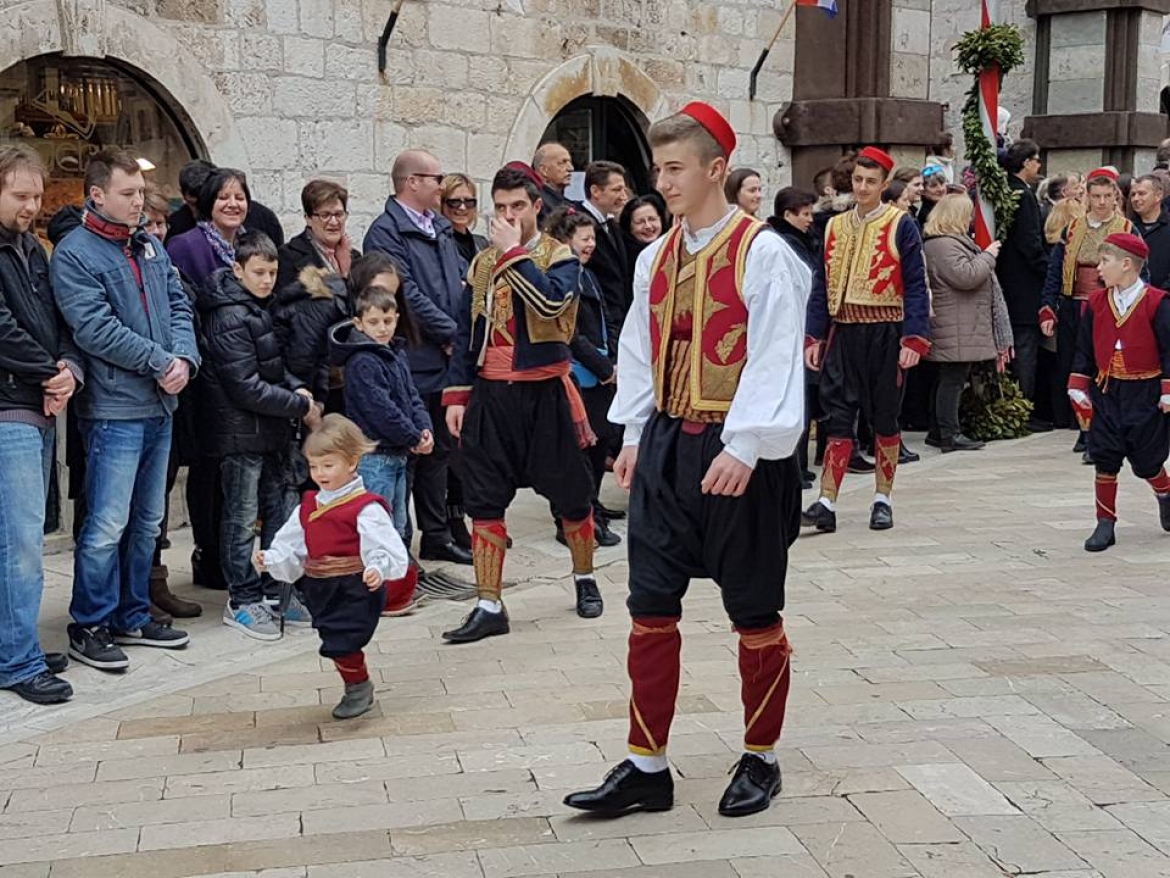
Sveti Vlaho (the Feast of St Blaise) in Dubrovnik
When is the best time to visit Dubrovnik? I have been at various times over the years, but nothing came close to the first week of February and the Feast of St Blaise (Sv Vlaho), the much-loved patron saint of the city. Similar to Za Krizen, it is a time when the wider local community comes together in family celebration, the locals reclaim the city from tourists, and with most restaurants closed and their awnings, tables and chairs in storage, the old town is stripped back to its bare stone. Throw in the wonderful traditions of Sveti Vlaho, and you have all the ingredients for an unforgettable experience. Here was mine in February 2017.
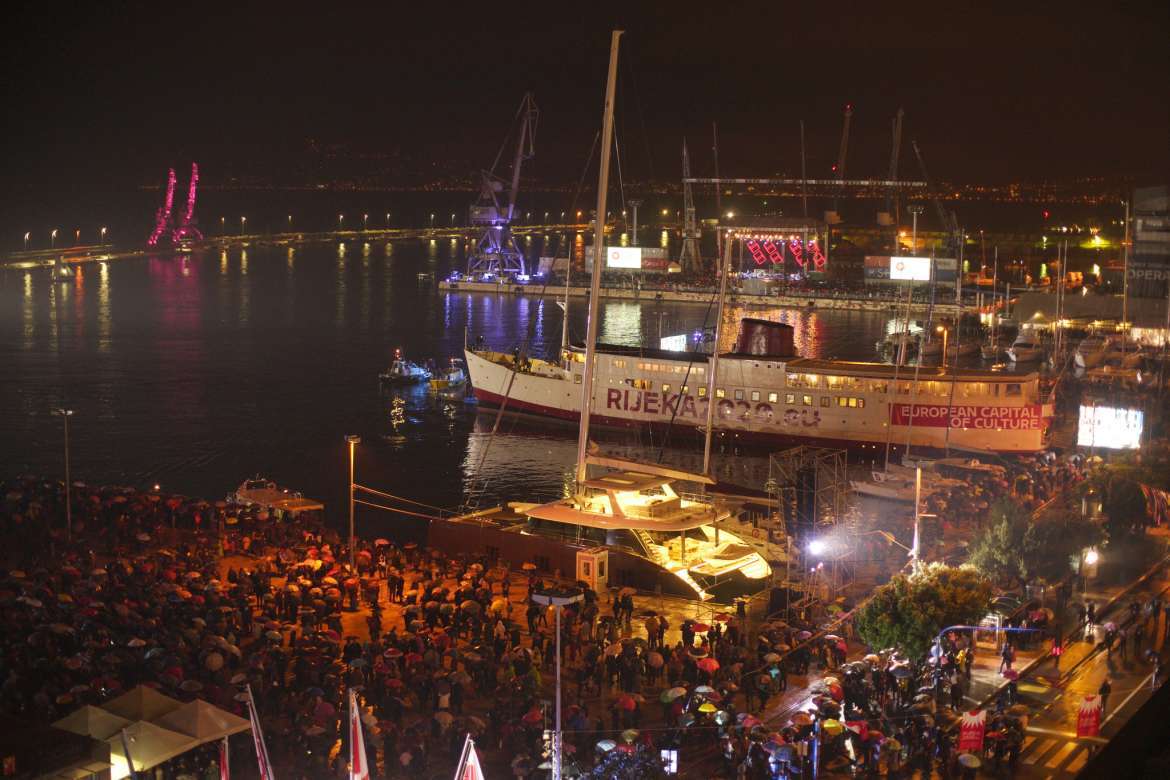
The opening party of Rijeka 2020
From traditional gatherings to cultural celebrations of the present day. While corona has decimated the cultural programme of Rijeka 2020 as the European Capital of Culture, the opening party of February 2, 2020 was an event which had everything. It was a privilege to have press access to the main action, as well as my local British expat Martin, who kept me going until 6 am, when I then ended up sleeping in the car, something I have not done for years. You can get more of a flavour of the opening night of Rijeka 2020 in this in-depth TCN feature story.
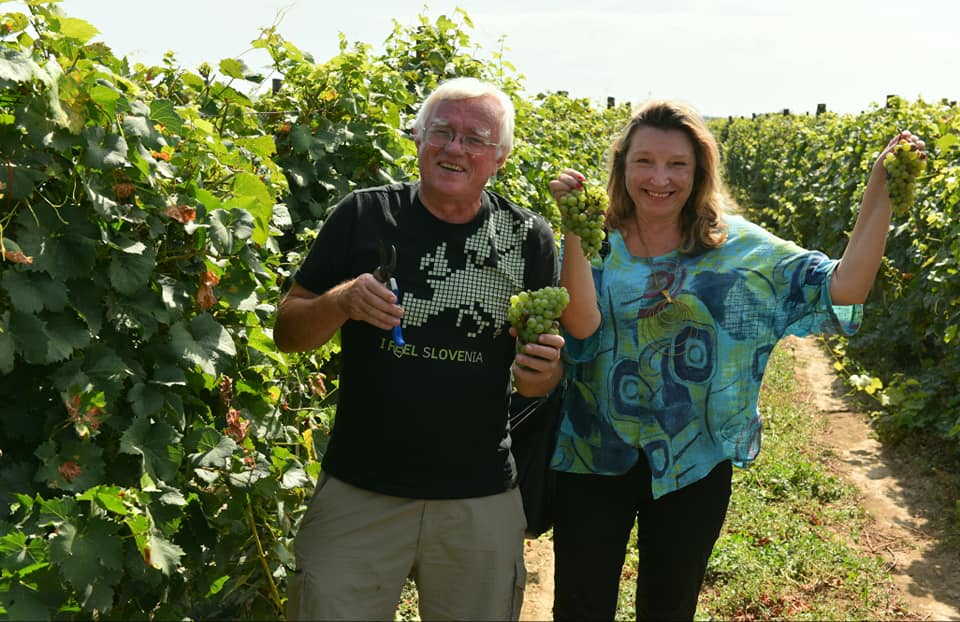
(Karin Mimica in among with vines with Slovenian travel legend, Drago Bulc)
ANY excursion organised by Karin Mimica from Gastronaut
If I had to name one person who had introduced me to the lesser-known parts of Croatia in the best possible manner, there would be only one name that came even close - the fabulous Karin Mimica from Gastronaut. There is not a quality restaurateur or winemaker in the country who Karin does not know personally, and her Gastronaut foodie tours for journalists, restaurateurs, winemakers and gourmet lovers are superbly organised, extremely content-rich, executed with precision, and always featuring the very best of the best of the destination. I first went a Gastronaut tour on my own island of Hvar several years ago. Since then, I have been part of the Gastronaut team which has discovered Murter, Krk (twice), Pag, Medjimurje, Ozalj, Koprivnica, Djurdjevac, to name but a few. You can visit a few of those past trips here, and connect with Karin via her Gastronaut page.
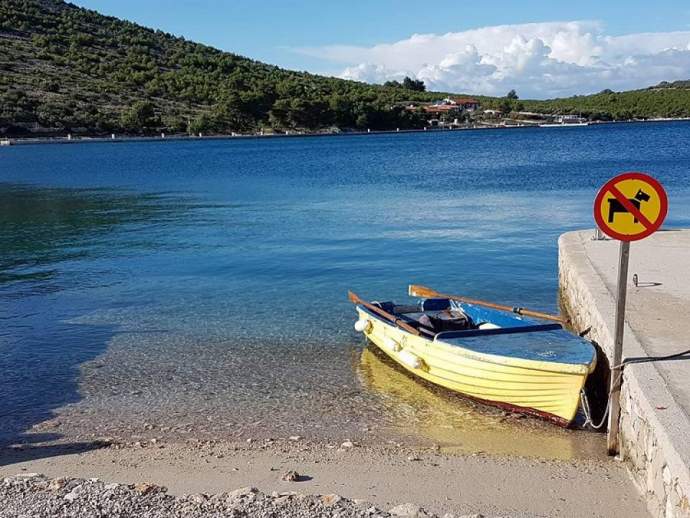
Festa Days on the uninhabited Kornati island of Zut
Imagine opening a restaurant in the middle of a war on an uninhabited island with no water, electricity or ferry connection. Come back 25 years to witness a Silver Jubilee of that restaurant with five of Croatia's top chefs and five international Michelin Star chefs.
The incredible story of Restaurant Festa and Festa Days on Zut. It was a privilege to be there.
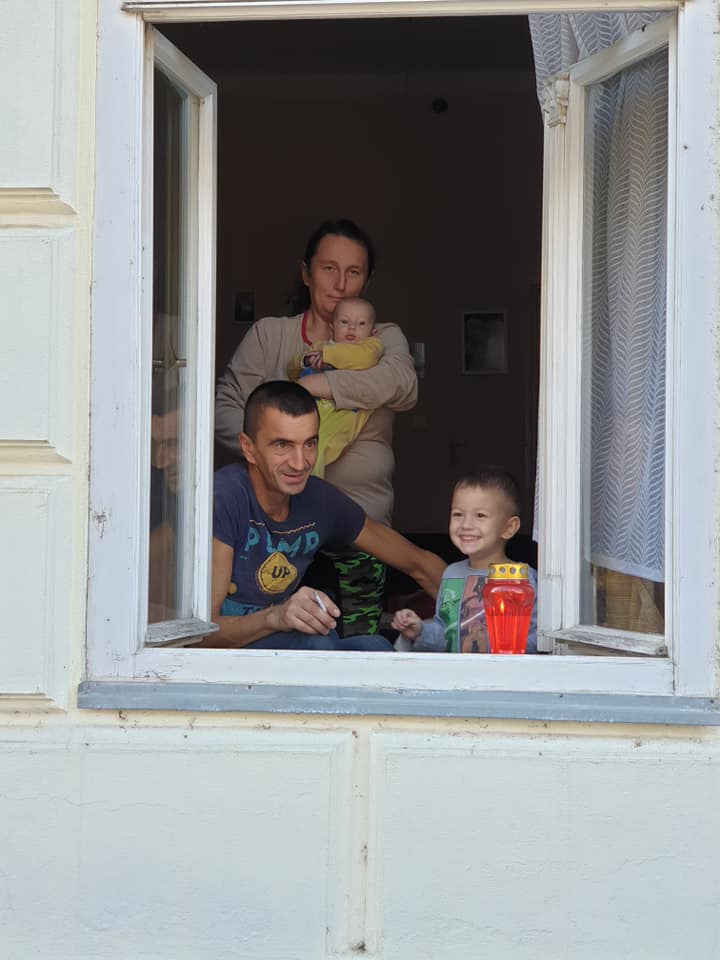
Vukovar Remembrance Day Parade and a Weekend in Slavonia
For many years, the subject of Vukovar was a taboo one for me as a foreigner. A very raw, open wound on the Croatian psyche. But the longer I lived here, and the more I began to understand about Croatia, the more I realised that the annual remembrance day was dominated by politics, and there was actually very little information about what happens during the actual parade, especially in English. I decided to go and take part. It was a very powerful and emotional day, but also one which helped me to understand Croatia much better.
The Vukovar visit was one of several to eastern Croatia last year. A wonderful, wonderful region, with so much to see and do. It was also the location for perhaps our best family weekend away. This is how much family fun you can pack into one weekend in Slavonia in late-October.
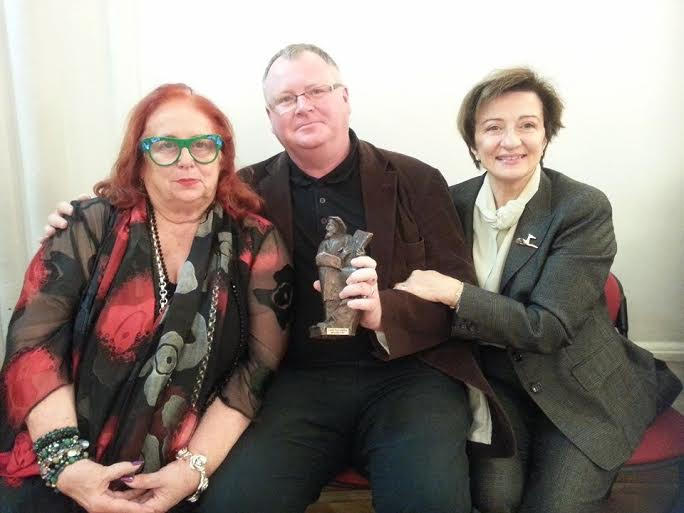
Winning the Marco Polo 2014 FIJET Award at the Association of Croatian Journalists
The last time I won anything prior to December, 2014 was back in 1978 when I won the Under-9 category in the regional chess championships in the county of Surrey in the UK.
And so it was a huge surprise and honour to win the 2014 FIJET Marco Polo Award at the National Society of Journalists for the best international promotion of Croatia. Thank you, colleagues!
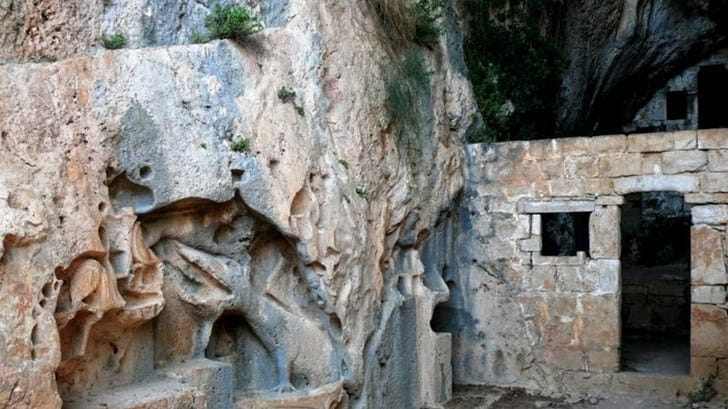
The island of Brac beyond Zlatni Rat - Dragon's Cave, Puscica Stonemason School, Olive Oil Museum in Skrip
Living on an island as gorgeous as Hvar, why would you go anywhere else? And I didn't. For years.
Even though Brac was only 25 minutes away by catamaran, I never really felt the need to go. And then I went. WOW.
Forget Zlatni Rat beach, Brac has some incredible stuff. Three not to miss which I managed to catch in one weekend are the unbelievable Dragon's Cave (visited by just 1,000 people a year), the incredible stonemason school in Puscica, and the unbelievably authentic olive oil in Skrip. And this is just scratching the surface of the unique treasures of Brac.
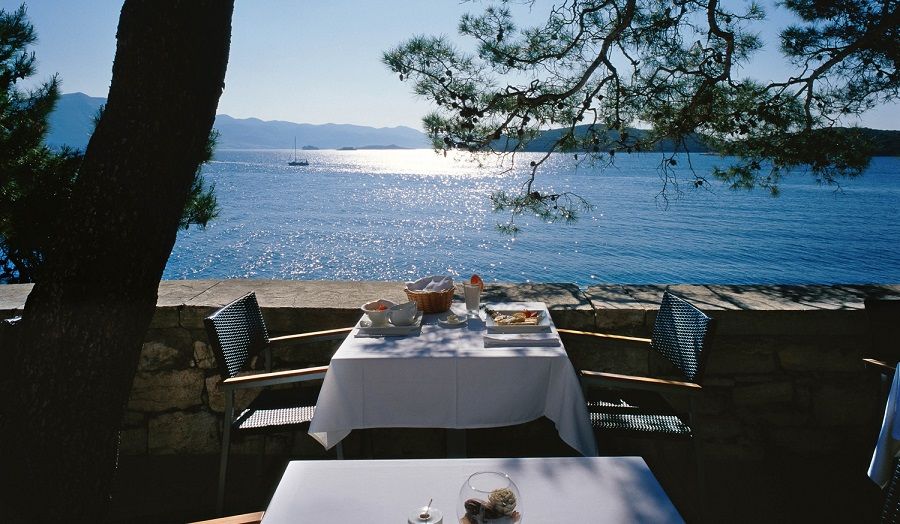
Lazy afternoons on the Lesic Dimitri Palace terrace with Michael
But if I was to be marooned for eternity in one location in Croatia, it would undoubtedly be on the terrace of one of my favourite places in the world - the waterfront terrace of luxury boutique hotel, Lesic Dimitri Palace, sipping on a glass of something fine and listening to the yarns of owner Michael Unsworth, the gentle Maestral breeze bringing a constant relief from the summer heat. One of the great discoveries of my life a few years ago, and part of the inspiration for Exquisite Korcula, Blueprint for Quality Croatian Tourism as It Should Be.
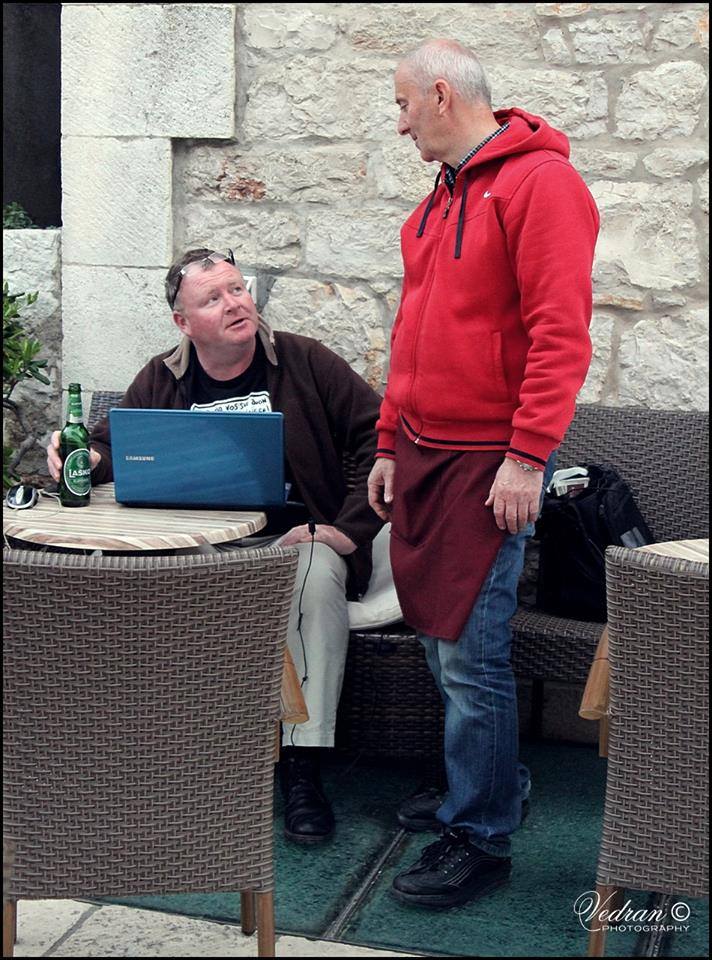
The Office
There are so many places to include, but it would be remiss of me not to include the birthplace of Total Hvar, and the rock of the whole TCN project for many years. The Office, aka Caffe Splendid on the main square in Jelsa.
"That's where Daddy lives, when he is not home with us," my 3-year-old daughter informed my punica as they walked past one day. Captain Nijazi, I salute you.
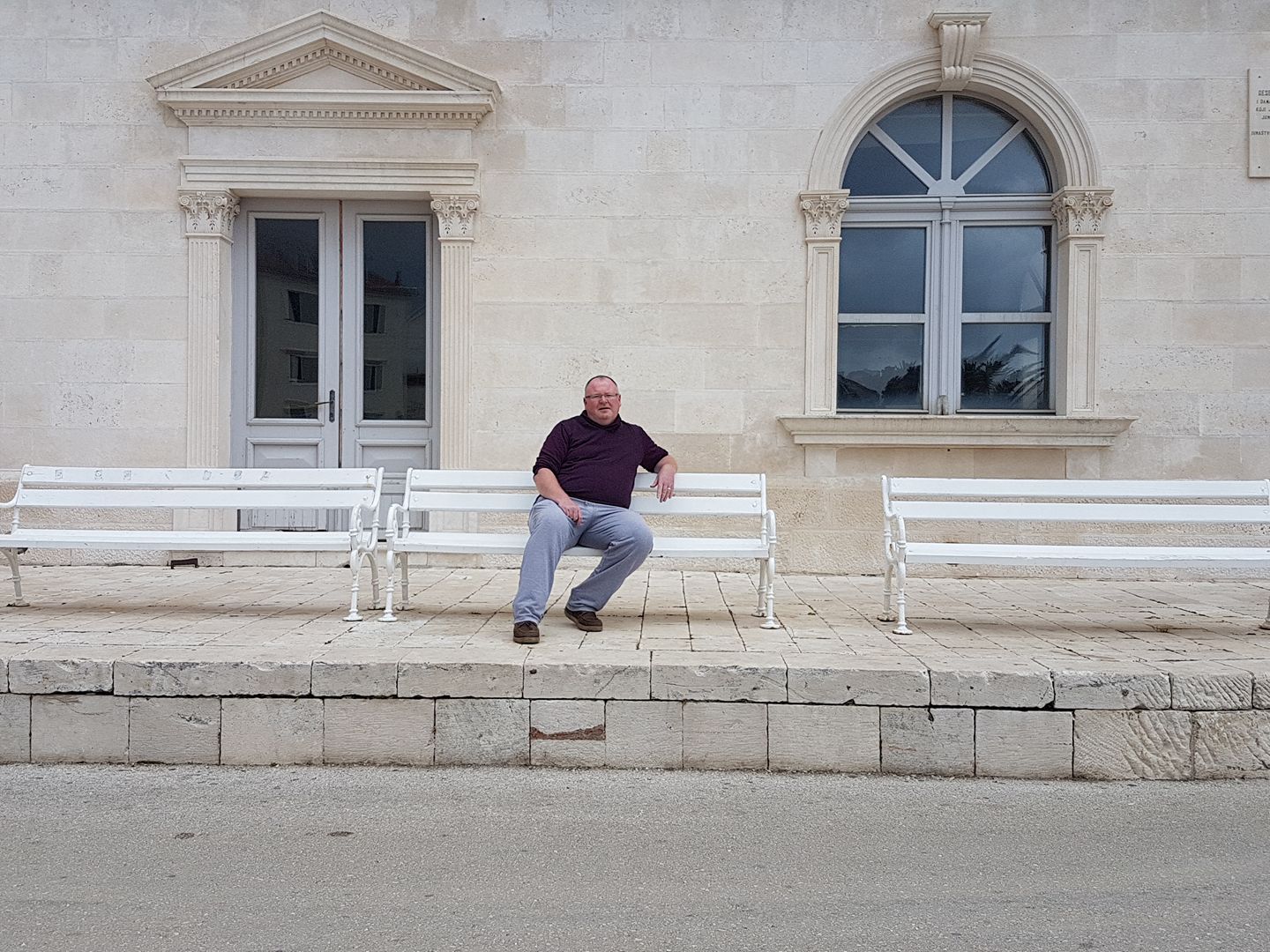
The Bench and the old library in Jelsa
And as a bonus, of course, the best view in the world - or at least it was until it was evicted - the famous Jelsa Bench. And in the building behind, the former library, where 18 years ago I entered to find an assistant librarian with eyes the colour of the Adriatic. The rest, they say, is history.
My top 10 Croatia experiences among many top experiences. Here are 30 more from last year alone.
Are you an expat in Croatia with a little time on your hands and some fabulous memories and experiences to share? If you would like to participate in this series, please contact us at This email address is being protected from spambots. You need JavaScript enabled to view it. Subject Top 10.
To see the other stories in this series, as well as expat self-isolation stories compared to their home countries, and corona voices in the diaspora, visit the dedicated section.
Foreigners Self-Isolating in Croatia: Do You Feel Safer? Francesco from Italy in Zagreb
April 12, 2020 - Do foreigners in Croatia feel more or less safe sitting out COVID-19 here than in their home country, and what are their experiences? A new series on Total Croatia News, with Francesco Mazzoleni from Italy in Zagreb as the 38th contributor.
Oxford University recently published some research on government responses to coronavirus which showed that Croatia currently has the strictest measures in the world. While inconvenient, this is a good thing in terms of reducing the spread of the virus, and I am certainly not alone in my admiration of the official Croatian handling of this crisis in recent weeks, both in terms of action and communication.
But what do other expats here think? And how does it compare with the response in their home country? Would they rather sit this one out here or there? A new series on TCN, we will be featuring expats from all over the world to see what their views are on life in corona Croatia rather than back home. So far we have heard from expats in Croatia from Romania, USA, Ireland, UK, Mexico, Argentina, Spain, Singapore, Holland, Canada, India, Hong Kong, Venezuela, Latvia, China, Honduras, Hungary, Moldova, South Korea, Japan, the Philippines and Germany. Next up, Francesco Mazzoleni from Italy in Zagreb.
Francesco actually contacted us for another reason, as well as offering us something beautiful, which you can see below, before happily agreeing to become the first Italian in this popular series.
Hi,
I'm writing to you because I am following your news and I like the way you write, but this last period we are all the time bombed with news about corona. I'm an Italian percussionist working in Zagreb and I am sending you the last video my colleague and me released with our percussion duo, in case you want to talk of something else. :)
Beautiful! Thanks Francesco. Now tell us how things are with you.
Firstly, how are you? Are you alone/with someone? Tell us a little about your situation and sanity levels.
I'm good, I'm lucky to be able to spend this time with my girlfriend in my apartment in the center of Zagreb. I'm a percussionist of the Symphonic orchestra of the radio and television (HRT) and the thing I'm suffering the most in this period is the fact of not being able to make music as we were used to.
For this reason, I decided to change my musical routines to arranging new music for my percussion duo and contacting composers from Italy to start a project of new music for our duo, to use this period as an opportunity for creativity.
Besides this I'm spending a lot of time exploring new things, such as cooking as never before, films, painting, listening to music, reading and practicing yoga every day helps to keep me sane and discover who I am.
When did you realise that corona was going to be a big issue?
I realized it was going to be a big issue when I saw the numbers raising exponentially in Italy. It's hard to understand what's going on when things happen so fast.
What is your impression of the way Croatia is dealing with the crisis? How safe do you feel?
I think Croatia is dealing with this crisis in the best possible way. Learning from the mistake of Italy of not closing activities and schools when the numbers were still low, Croatia acted on this very early and this is helping to have a low spread of the virus compared to other countries.
I feel safe with the decisions the government is taking.
Now compare that to your home country and how they are handling it. What is Croatia doing better/worse?
Italy, unfortunately, was the first European country that got attacked by the virus and for this reason, the measures of prevention taken were delayed, causing what we are seeing in these days.
Croatia acted on it in time, and the situation here is much better.
What about official communications from the authorities, compared to your home country?
In this aspect I think the authorities of both countries are dealing with it in a good and calm way, taking the situation as it is and giving it the importance it should have.
What's the one thing you wish you had taken with you into self-isolation.
My family and my friends.
One thing you have learned about yourself, and one thing you have learned about others during this crisis.
I have learned where to put the focus in my life. The fact of slowing down the rhythm of actions we do each day, the point of life is to enjoy what we do and feeling a whole with our surrounding whatever and however it is.
About others, I have learned that in a situation of difficulties, we can count on each other and we have to trust others to create a better future together.
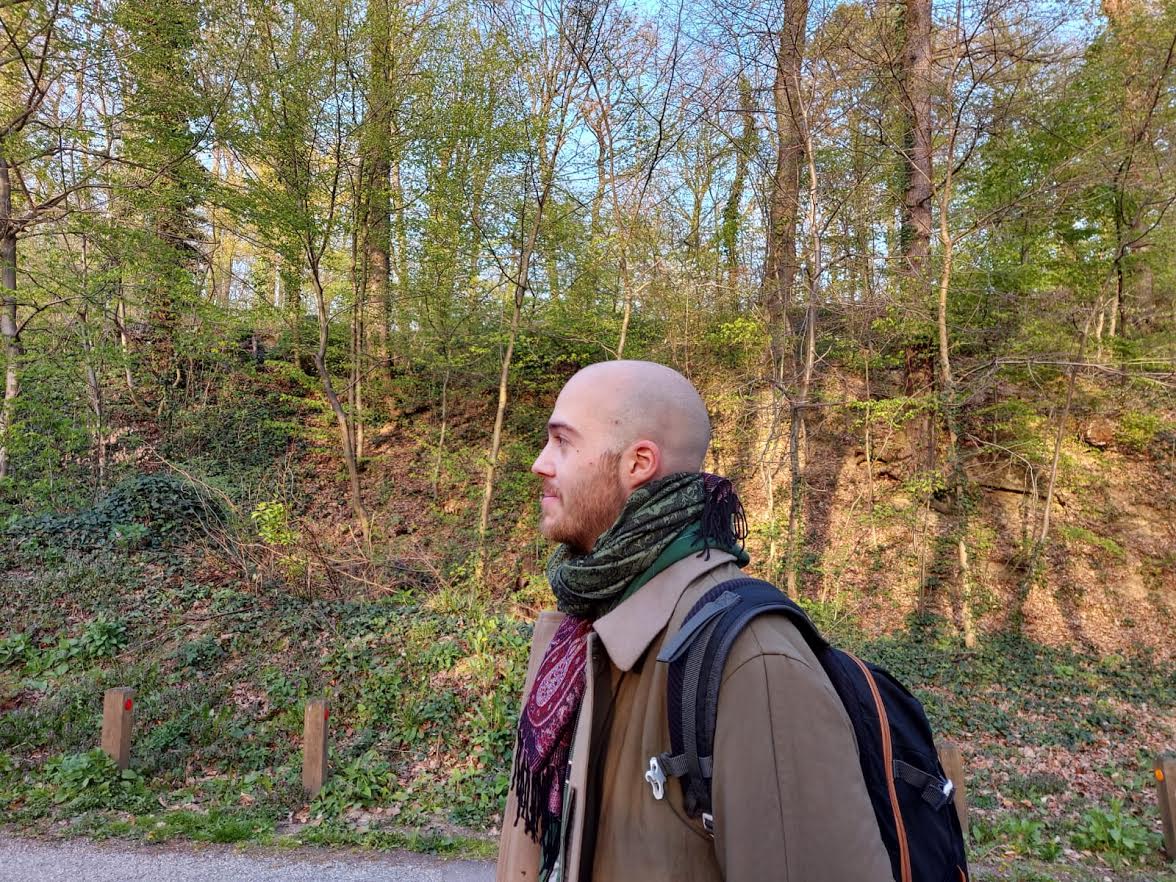
Thanks, Francesco. Stay safe and see you on the other side.
TCN is starting a new feature series on foreign experiences of sitting out COVID-19 here in Croatia compared to their home country. If you would like to contribute, the questions are below. Please also include a para about yourself and where you are from, and a link to your website if you would like. Please also send 3-4 photos minimum to This email address is being protected from spambots. You need JavaScript enabled to view it. Subject Corona Foreigner
If you would be interested to record a video version for our partners www.rplus.video please let us know in the email. Thanks and stay safe.
Foreigners Self-Isolating in Croatia: Do You Feel Safer Than in Your Home Country?
Firstly, how are you? Are you alone/with someone? Tell us a little about your situation and sanity levels.
What do you think about the economic measures the government is taking, are they helping your business? (PLEASE IGNORE IF THIS DOES NOT AFFECT YOU)
When did you realise that corona was going to be a big issue?
What is your impression of the way Croatia is dealing with the crisis? How safe do you feel?
Now compare that to your home country and how they are handling it. What is Croatia doing better/worse?
What about official communications from the authorities, compared to your home country?
What's the one thing you wish you had taken with you into self-isolation.
One thing you have learned about yourself, and one thing you have learned about others during this crisis.
TCN has recently become a partner in Robert Tomic Zuber's new R+ video channel, initially telling stories about corona experiences. You can see the first TCN contribution from this morning, my video from Jelsa talking about the realities of running a news portal in the corona era below. If you would like to also submit a video interview, please find Robert's guidelines below
VIDEO RECORDING GUIDE
The video footage should be recorded so that the cell phone is turned horizontally (landscape mode).
There are several rules for television and video news:- length is not a virtue- a picture speaks more than a thousand words
In short, this would mean that your story should not last more than 90 seconds and that everything you say in the report should be shown by video (for example, if you talk about empty streets, we should see those empty streets, etc.).
How to do it with your cell phone? First, use a selfie camera to record yourself telling your story for about a minute and a half. Ideally, it would be taken in the exterior, except in situations where you are reporting on things in the interior (quarantine, hospital, self-isolation, etc.). Also, when shooting, move freely, make sure everything is not static.
After you have recorded your report, you should capture footage that will tell your story with a picture, such as an earlier example with empty streets.
One of the basic rules of TV journalism is that the story is told in the same way as a journalist with his text. Therefore, we ask you for additional effort. Because we work in a very specific situation, sometimes you may not be able to capture footage for each sentence of the report. In this case, record the details on the streets: people walking, the main features of the city where you live, inscriptions on the windows related to the virus, etc.
The same rules apply if you are shooting a story from your apartment, self-isolation, quarantine. We also need you to capture footage that describes your story.
When shooting frames to cover your reports, it is important that you change the angle of the shot (in other words, shoot that empty street from several angles). Also, when shooting a detail, count at least five seconds before removing the camera to another detail.
The material should be about 5 minutes long (90 seconds of your report + frames to cover your story).
After recording everything, send us to Zagreb, preferably via WeTransfer to This email address is being protected from spambots. You need JavaScript enabled to view it.
Wash your hands.
When Was Your Golden Era of Life in Croatia? Ankica Mamic in Zagreb
April 15, 2020 - So when your golden era of life in Croatia? A new series looking back to happier times through the eyes of Croatia's residents. First up, long time TCN fan and cook extraordinaire, Ankica Mamic in Zagreb.
I have had many requests to add different content - preferably happier - to mix up with the corona misery. I hear your pain. If you think constantly reading corona news is draining, spare a thought for those whose job it is to report on it all day.
So here is an idea, and I am very grateful to my good friend Ankica Mamic for giving it such an excellent start - When Was Your Golden Era of Living in Croatia?
A few weeks ago, we started a series called Foreign Self-Isolation Stories: Do You Feel Safer? asking expats locked down in Croatia comparing how Croatia was handling the situation compared to their home country. We have had almost 40 great interview responses so far, from Hong Kong to Honduras, China to Mexico, and Japan to New Zealand.
The next logical extension was Corona Voices in the Diaspora, checking how Croatians abroad were faring where they found themselves, compared to back in the Homeland.
And then, to try and add a little happiness, we started Expats in Isolation: My Top 10 Experiences in Croatia.
You can find all these, along with the submission guidelines for each section, underneath the interviews in the individual articles in this section.
But I also wanted to find a way for people living in Croatia to reflect on happier times, so we thought we would try with a series looking at people's recollections of their favourite era living in Croatia. If you would like to contribute, please send your text, 4-6 photos, an intro paragraph about and (if you want) a link to your website to This email address is being protected from spambots. You need JavaScript enabled to view it. Subject Golden Era.
And now, let's hear from about the golden years from Ankica Mamic.

Croatia is a beautiful country and if we were to talk about the beauties and advantages of living in it visible only to the eye, the list would indeed be exceptionally long. However, it’s not only the “outside” that is always beautiful. Some of the nicest memories happen when life and business, personal and one’s general goals are achieved.

I would like first to go back to the late 1980s, a time marked by the fall of communism and the rise of a centuries-old desire of having one’s own country. I was mature enough then but also still young, harbouring elation and passion, to experience and comprehend those events. I practically “lived on a diet” of news, followed all the talking points and events, and impatiently anticipated the next bit of news. Unfortunately, we quickly realised that achieving our dream was going to be difficult and painful. The war began and our lives changed overnight. Nonetheless, that difficult period of life brought about so many nice things. A sense of community, as well as devising and seeking solutions to life’s problems. Gathering in the basements of Zagreb restaurants were groups of people who in various ways wanted to give their contribution. I joined them with much enthusiasm and developed a closeness with those people who had a positive influence on my life and who quickly became important to society. Most of all, I was able to learn a lot from them because they inspired me to seek the best within me.

I also recall the fears I experience at that time. Though Zagreb was relatively peaceful, but organising life under the sound of sirens proved to be difficult. I found it especially worrisome that my daughter, who was ten years old at the time, had to attend classes. We knew that the price of freedom was great but, nonetheless, happiness that seemed to be dawning after the war seemed to have been worth it.

The consequences of war were as expected. A long period of adjustment ensued. The return to normality and recovery was slow. Fortunately, we lived to see better times. I especially recall the period from 2000 to 2006, a time of economic boom. I myself, as a relatively young businesswoman, identified and took advantage of those opportunities. During that time, I founded a public relations agency. It was a profession which, in all practical terms, had not existed yet, but opportunities began to appear. Living and working in Croatia during that time was really gratifying. In time, we eventually got our long-awaited Zagreb-Split motorway, for which our parents had been paying state contributions, and which finally enabled us to spend weekends in beautiful Dalmatia. It is from that period of time that I carry my fondest memories of the coastline, sailing and discovering Croatia’s islands, socialising as well as enjoying Croatian cuisine and wines. Indeed, the parts of the economy that experienced a boom since Croatia’s independence definitely included Croatian cuisine and wines.

Life is made up of good and not so good days and years. I always endeavoured to learn something in any crisis I encountered. However, the current crisis we are now sharing with the world, somehow seems to be the hardest of them all. I wonder what little goodwill possibly come of it after it has passed. Perhaps there is something. Croatia now has the opportunity to examine the reasoning behind its huge state apparatus and cleanse itself of the many unneeded organisations and agencies. A small light at the end of the tunnel is the collapse of populism, which has been proven to be completely powerless in the current crisis.


You can connect with Ankica Mamic via LinkedIn.
To read more in any of the four series mentioned above, click here.

Foreigners Self-Isolating in Croatia: Do You Feel Safer? Stefan from Ireland in Split
April 12, 2020 - Do foreigners in Croatia feel more or less safe sitting out COVID-19 here than in their home country, and what are their experiences? A new series on Total Croatia News, with Dr. Stefan Gillow Reynolds from UK/Ireland in Split as the 37th contributor.
Oxford University recently published some research on government responses to coronavirus which showed that Croatia currently has the strictest measures in the world. While inconvenient, this is a good thing in terms of reducing the spread of the virus, and I am certainly not alone in my admiration of the official Croatian handling of this crisis in recent weeks, both in terms of action and communication.
But what do other expats here think? And how does it compare with the response in their home country? Would they rather sit this one out here or there? A new series on TCN, we will be featuring expats from all over the world to see what their views are on life in corona Croatia rather than back home. So far we have heard from expats in Croatia from Romania, USA, Ireland, UK, Mexico, Argentina, Spain, Singapore, Holland, Canada, India, Hong Kong, Venezuela, Latvia, China, Honduras, Hungary, Moldova, South Korea, Japan, the Philippines and Germany. Next up, Dr. Stefan Gillow Reynolds from UK/Ireland in SplitIf you would like to contribute to this series, full details are below this interview.
Dear Total Croatia News,
I appreciate your news emails and links very much. I am relatively new to Croatia but have learnt very much about the country from Total Croatia news.
I married Tamara from Split in September and have been living here part-time since then, I continue to live in Ireland where I work part-time also.
I am originally from UK but have lived and worked in Ireland for 10 years I have a connection to both countries and now to Croatia as well. I am a writer and painter, I have written two books and paint Icons which I sell, mainly to Churches in UK and Ireland.
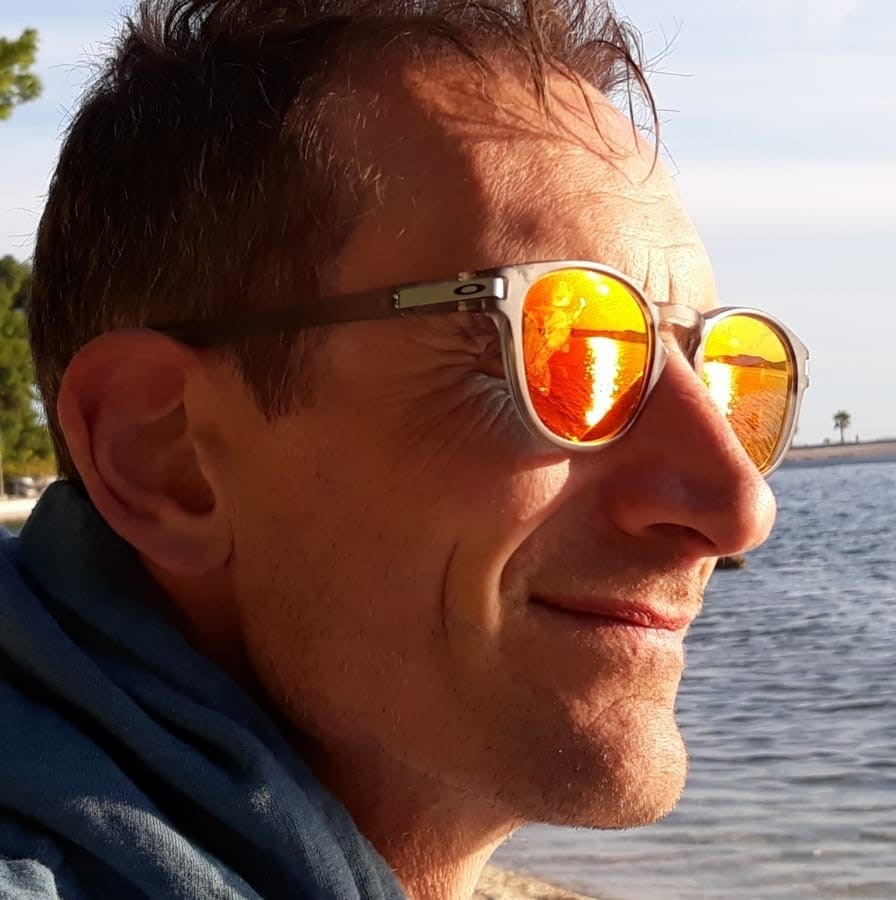
Firstly, how are you? Are you alone/with someone? Tell us a little about your situation and sanity levels.
I was due to go back to Ireland after Easter, however, am now staying on in Split. I am well though, and happy to be with my wife Tamara. Turns out we are having a longer honeymoon than we thought, but no complaints. We have a tenth floor flat so have beautiful views, we go out for a short walk every few days and once a week visit Tamara's mother who lives in Podstrana, just within the travel ambit of Split.
I have been painting and writing and keeping in contact with friends and family.
What do you think about the economic measures the government is taking, are they helping your business?
My wife works in Tourism as a guide and is worried about her financial situation but as far as I understand there is some support coming from the government. She has applied for the ‘Support for Keeping the Working Places Alive scheme.
Back home in Ireland they have offered all people who have been made unemployed the regular unemployment benefit which is €200 a week, quite a lot (Ireland has always had a high social security system though a lot of people fall through the net, and there is much homelessness). Currently there are 7,500 people taking unemployment benefit in Ireland, the country has the same population, roughly, as Croatia. I didn’t apply as I only work part-time in Ireland, helping to manage a café, and I have income still from my other work.
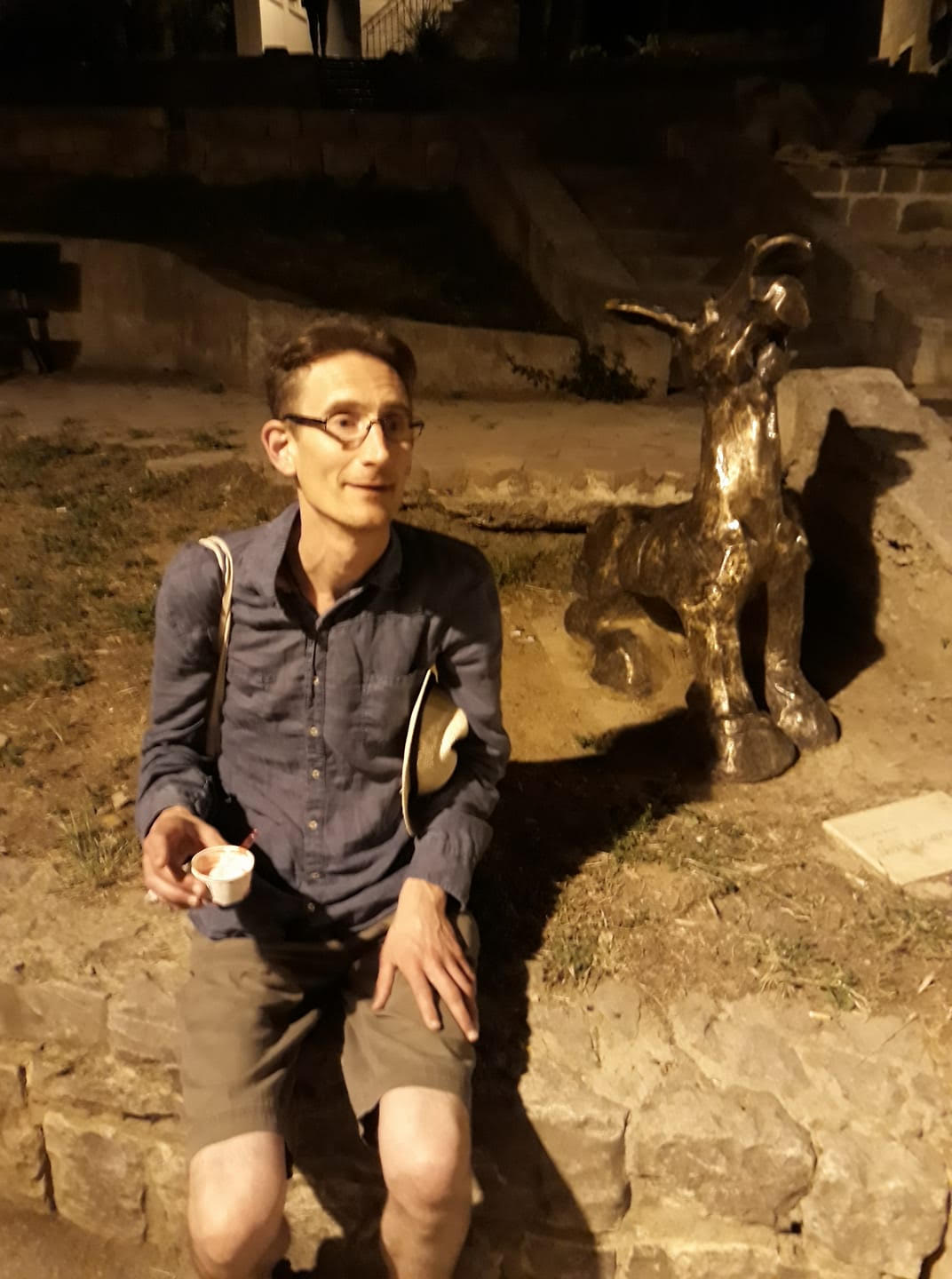
When did you realise that corona was going to be a big issue?
I realised Corona was going to be a big issue when travel restrictions started.
What is your impression of the way Croatia is dealing with the crisis? How safe do you feel?
Croatia is dealing very well with the crisis, I feel. We feel safe.
Now compare that to your home country and how they are handling it. What is Croatia doing better/worse?
Ireland is also doing well. On the whole they are stricter on inclosure in Ireland, people are not allowed to travel out except for shopping and there are guards enforcing this, more than in Croatia, and a strict 2km travel limit from your house (unless food shops are further away). There are more cases though in Ireland than in Croatia, so I do feel that the response here is appropriate. In the UK I feel they reacted too late and have lost control of the situation. My parents are living in London and I worry about them although they are cared for by my brother. Croatia and Ireland were quick to act and trace cases, the UK has been slow at testing, slow at containing group activities and is now unable to trace cases as there are so many.
Official communications from the authorities in Croatia seem to come through the news, I get emails from my local council in Ireland which helps.
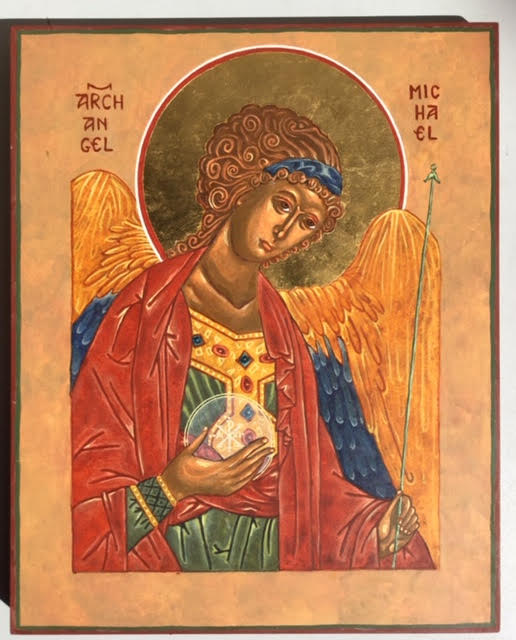
What's the one thing you wish you had taken with you into self-isolation?
I have nearly everything. Only miss some sandpaper for burnishing clay on Icons!
What is one thing you have learned about yourself, and one thing you have learned about others during this crisis?
I have learned I am happy to stay at home, and enjoy Zoom activities (which I had never done before!). Now we have Zoom liturgy, yoga, tai chi, meditation courses....
My feeling is that people are more sensible than I thought and are generally co-operating with health directives, and are caring about each other. And are learning how connected we are with people all over the world.
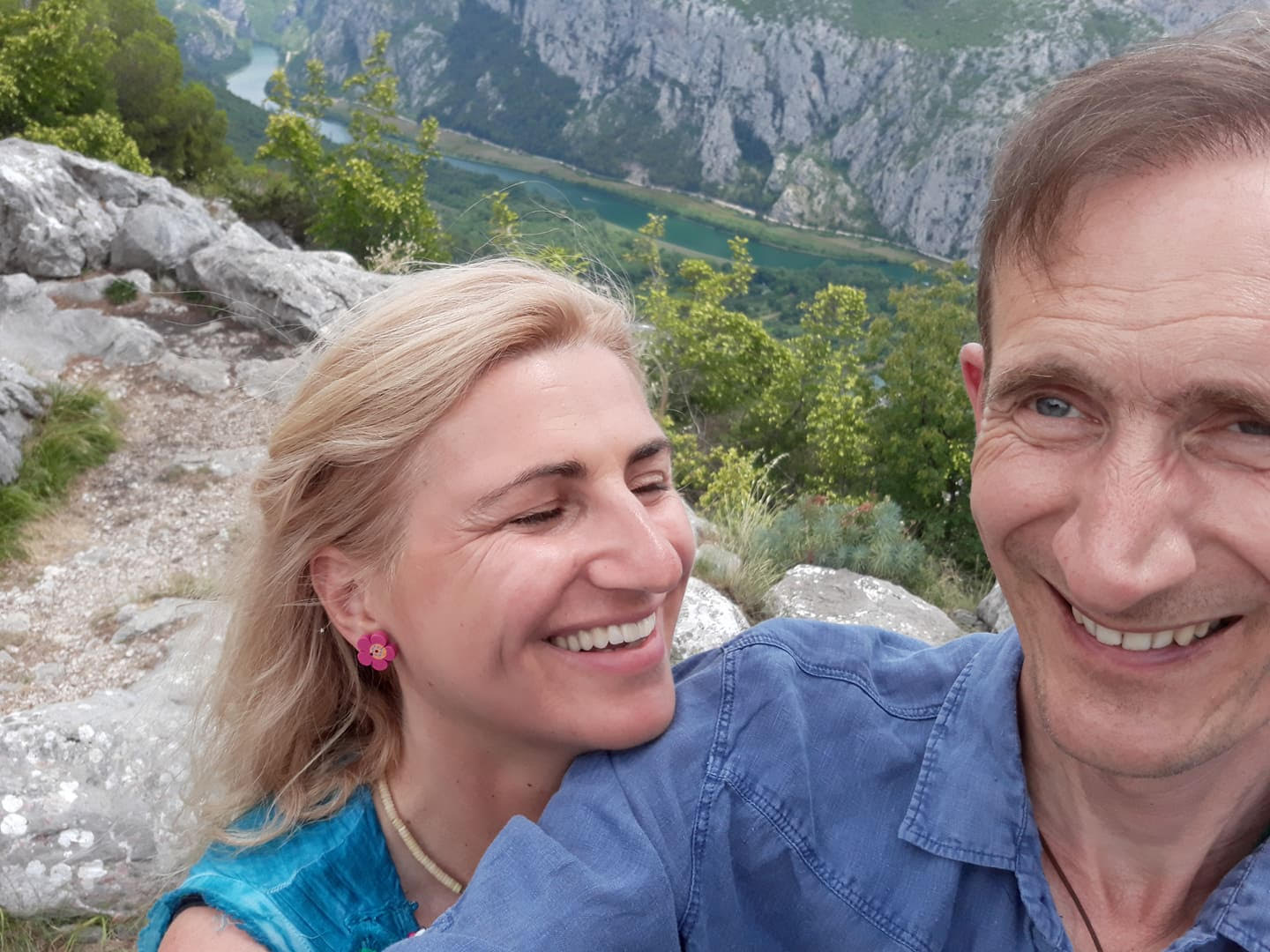
Thanks, Stefan. Stay safe and see you on the other side. You can connect with Stefan via his very interesting Facebook page, Icons, Books, Talks.
TCN is starting a new feature series on foreign experiences of sitting out COVID-19 here in Croatia compared to their home country. If you would like to contribute, the questions are below. Please also include a para about yourself and where you are from, and a link to your website if you would like. Please also send 3-4 photos minimum to This email address is being protected from spambots. You need JavaScript enabled to view it. Subject Corona Foreigner
If you would be interested to record a video version for our partners www.rplus.video please let us know in the email. Thanks and stay safe.
Foreigners Self-Isolating in Croatia: Do You Feel Safer Than in Your Home Country?
Firstly, how are you? Are you alone/with someone? Tell us a little about your situation and sanity levels.
What do you think about the economic measures the government is taking, are they helping your business? (PLEASE IGNORE IF THIS DOES NOT AFFECT YOU)
When did you realise that corona was going to be a big issue?
What is your impression of the way Croatia is dealing with the crisis? How safe do you feel?
Now compare that to your home country and how they are handling it. What is Croatia doing better/worse?
What about official communications from the authorities, compared to your home country?
What's the one thing you wish you had taken with you into self-isolation.
One thing you have learned about yourself, and one thing you have learned about others during this crisis.
TCN has recently become a partner in Robert Tomic Zuber's new R+ video channel, initially telling stories about corona experiences. You can see the first TCN contribution from this morning, my video from Jelsa talking about the realities of running a news portal in the corona era below. If you would like to also submit a video interview, please find Robert's guidelines below
VIDEO RECORDING GUIDE
The video footage should be recorded so that the cell phone is turned horizontally (landscape mode).
There are several rules for television and video news:- length is not a virtue- a picture speaks more than a thousand words
In short, this would mean that your story should not last more than 90 seconds and that everything you say in the report should be shown by video (for example, if you talk about empty streets, we should see those empty streets, etc.).
How to do it with your cell phone? First, use a selfie camera to record yourself telling your story for about a minute and a half. Ideally, it would be taken in the exterior, except in situations where you are reporting on things in the interior (quarantine, hospital, self-isolation, etc.). Also, when shooting, move freely, make sure everything is not static.
After you have recorded your report, you should capture footage that will tell your story with a picture, such as an earlier example with empty streets.
One of the basic rules of TV journalism is that the story is told in the same way as a journalist with his text. Therefore, we ask you for additional effort. Because we work in a very specific situation, sometimes you may not be able to capture footage for each sentence of the report. In this case, record the details on the streets: people walking, the main features of the city where you live, inscriptions on the windows related to the virus, etc.
The same rules apply if you are shooting a story from your apartment, self-isolation, quarantine. We also need you to capture footage that describes your story.
When shooting frames to cover your reports, it is important that you change the angle of the shot (in other words, shoot that empty street from several angles). Also, when shooting a detail, count at least five seconds before removing the camera to another detail.
The material should be about 5 minutes long (90 seconds of your report + frames to cover your story).
After recording everything, send us to Zagreb, preferably via WeTransfer to This email address is being protected from spambots. You need JavaScript enabled to view it.
Wash your hands.
Corona Voices in the Croatian Diaspora: Tanja from Zagreb in London
April 13, 2020 - With as many Croatians living abroad as in the Homeland, what are the diaspora experiences of self-isolation? In the 7th of a new series, Corona Voices in the Croatian Diaspora, here is entrepreneur Tanja Dzido in London and originally from Zagreb.
Last week TCN started a feature series called Foreigner Self-Isolation In Croatia: Do You Feel Safer? I can honestly say we have never had such a response or so many incredible contributions. The countries of origin of these expats in Croatia literally from all over the world. So far we have had submissions from expats from Romania, USA, Ireland, UK, Mexico, Argentina, Spain, Singapore, Holland, Canada, India, Hong Kong, Venezuela, Latvia, China, Honduras, Hungary, Moldova, New Zealand, Japan and Germany. You can see all their stories here.
Given the success of the series (still going strong) and large interest, it made sense to expand it to look at this from another angle - how Croatians abroad are coping where they are. If you would like to contribute your story to Corona Voices in the Croatian Diaspora, please find the submission guidelines below. Next up, entrepreneur Tanja Dzido in London and originally from Zagreb.
Hello, my name is Tanja Dzido. I'm an entrepreneur from Croatia, the founder of Shhhefica.com and organizer of The Art of Feminine Leadership conference in Zagreb. I was named Female Role Model of the Year at the Central European StartUp Awards, and i am also the author of the succesful book "Budi Shhhefica svog života". In January this year I moved to London to expand my digital marketing business, but also to continue working on women empowerment initiatives and bring the most influential women leaders to Croatia.

Firstly, how are you? Are you alone/with someone? Tell us a little about your situation and sanity levels.
I'm doing surprisingly well but to be honest, it's not easy at all at times. I live alone and don't have many friends here as I've moved to London just in January this year. I was really excited about this life change and had a really good start. I was attending a lot of networking events, meeting a lot of new people, getting new clients and expanding my business. Then suddenly, all of this happened and I'm confined to four walls throughout the day. But I'm still blessed that I'm healthy and my family is safe.
When did you realise that corona was going to be a big issue?
I was following the situation in China and expected Europe to be hit, but not as soon and as much as it is now. Even when Italy went into lockdown, I was still hopeful that a cure or vaccine would surface before it spreads to other countries. I'm still shocked how everything has changed overnight and somehow feel I'm living in this odd dream from which I hope I will wake up soon.
When did you realise that corona was going to be a big issue in London in particular?
When London went into lockdown and all my clients started cancelling contracts. The UK resisted implementing this strategy for a while and when it finally did, I was then sure, the situation was really really bad. And then when the PM was in intensive care, it showed us how serious the situation is, no matter what your position, education, social or political circle you belong. We're all in this together.
Give us a timeline on when and how life changed.
Everything was perfect before the lockdown began. We were all aware of the virus but not aware of how serious it was. I was getting new clients in London and even rented office space starting from March. And then 10 days later this all started, bringing me back to the beginning. All my clients here were impacted and had to shut down so I've lost a significant amount of monthly income. Luckily, I still work for clients in Croatia which helps me to keep my head aboor water.
Tell us about your day. Do you/can you leave your apartment?
We're allowed to leave our homes once per day for daily exercise or grocery shopping. To be honest, I'm avoiding leaving the house because the energy outside is really heavy, so I leave my flat once or twice a week for grocery shopping and I try to structure my day so I have a good balance of work, personal time and video chats with my friends and family.
How are the authorities doing at handling the situation?
I live in central London and I've noticed the police here patrolling but not as much as it should. People are still walking around like nothing's going on, especially young people who think they're immune to it. I believe we should have much stricter measures and police to have more authority. Currently they're much more advisory than commanding, and nobody is taking them seriously.
You obviously keep an eye on your homeland. What is your impression of the way Croatia is dealing with the crisis?
Croatia went into lockdown much faster than the UK, and I believe it bought them time to deal with this situation better. I think they are handling the safety measures very well but I'm very disappointed with the economic measures and how Croatia has been treating its entrepreneurs. There hasn't been much done to provide support and guidance to businesses impacted with this situation.
Compare and contrast the responses of Croatia and the UK. Who is doing what better?
Croatia is handling the crisis better regarding public awareness and making sure everybody is following the safety guidelines. The UK is much more „laid back“ in that approach and there are a lot of people here who are taking this time as a personal vacation to go to the beach, eat and drink with friends. On the other hand, the UK has presented outstanding economic measures, both for businesses and employees and it showed that we're valuable to this economy and well protected.
What about official communications from the authorities, compared to your home country?
I believe the UK is much more advisory in its approach, acting like older brother concerned for its siblings. Looking from a communication standpoint, they have been handling this situation very well, with daily live press conferences and consistent updates on measures. But in a country as big and as diverse as the UK is, I believe the authorities need to be much firmer and stricter to make sure people follow rules. In that, I would say, Croatia is doing a much better job.
What's the one thing you wish you had taken with you into self-isolation?
I think we're all blessed to have a stable internet connection in this situation. It helps us to stay in touch with our loved ones, gives us the opportunity to work and make the best out of all the digital content, as well as following the news from around the world. But having a furry friend would be perfect in this situation. I've always loved dogs but I never had enough time to dedicate them the love and attention they deserve. Now I've got plenty of time for that.
One thing you have learned about yourself, and one thing you have learned about others during this crisis.
I've learned that I can manage self-isolation surprisingly well. Before all this happened, I couldn't imagine myself staying in for a weekend, let alone for a month. I'm a very outgoing person and usually have a busy social life. This situation, as challenging as it is, gave me a different perspective of what it means of having real connections with people, much deeper, not wider. I've learned people are much more compassionate and understanding in times of crisis. I hope we can all take our learnings back into the „normal world“ and make it a better one when this all ends.
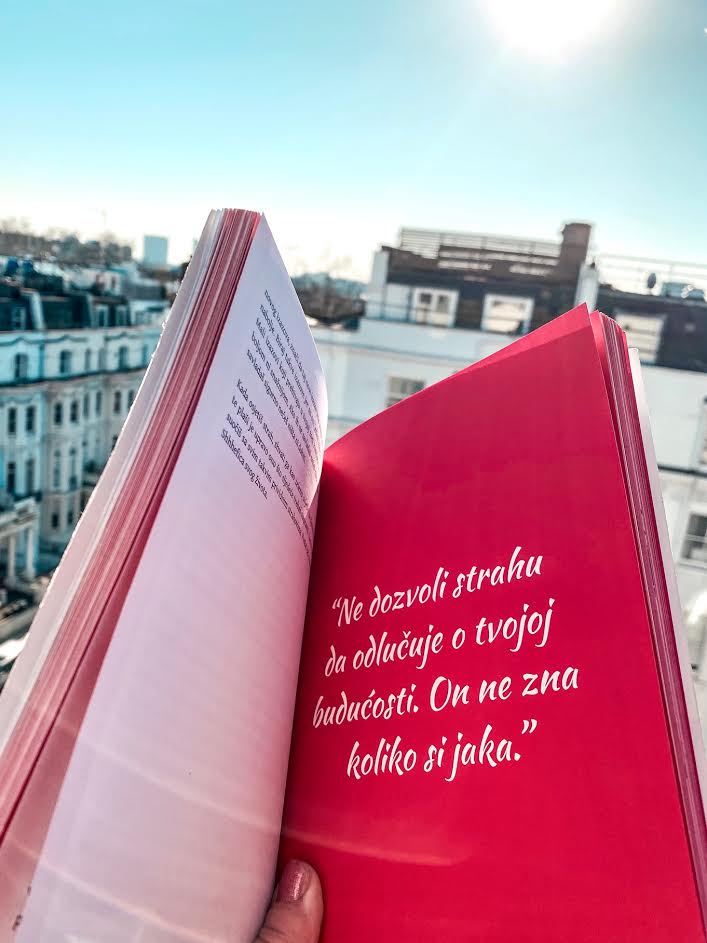
If you could be self-isolating in Croatia, where would it be, and why?
It would be in Zagreb, where I've spent the last 10 years of my life and where I have a lot of amazing friends. Actually, just a week before the lockdown, I was in Zagreb for a few days. I went back to London on Saturday and on Monday the lockdown began.
I don't regret flying back to London and being here for the lockdown. I actually live in one of the most beautiful places in the world, Notting Hill, especially beautiful in springtime. So I can at least enjoy my daily walks and daydream about this all coming to an end.
Thanks, Tanja. Stay safe and see you on the other side. You can see all the stories in both this diaspora series, and the one on expats in Croatia on this link.
TCN is starting a new feature series on Croatian diaspora experiences of sitting out COVID-19 abroad and comparing your experiences to the situation in Croatia. If you would like to contribute, the questions are below. Please also include a para about yourself and where you are from, and a link to your website if you would like. Please also send 3-4 photos minimum to This email address is being protected from spambots. You need JavaScript enabled to view it. Subject Corona Diaspora
If you would be interested to record a video version for our partners www.rplus.video please let us know in the email. Thanks and stay safe.
Self-Isolation Voices from the Diaspora
Firstly, how are you? Are you alone/with someone? Tell us a little about your situation and sanity levels.
When did you realise that corona was going to be a big issue?
When did you realise that corona was going to be a big issue in New York in particular?
Give us a timeline on when and how life changed.
Tell us about your day. Do you/can you leave your apartment?
How are the authorities doing at handling the situation?
You obviously keep an eye on your homeland. What is your impression of the way Croatia is dealing with the crisis?
Compare and contrast the responses of Croatia and USA. Who is doing what better?
What about official communications from the authorities, compared to your home country?
What's the one thing you wish you had taken with you into self-isolation?
One thing you have learned about yourself, and one thing you have learned about others during this crisis.
If you could be self-isolating in Croatia, where would it be, and why?
TCN has recently become a partner in Robert Tomic Zuber's new R+ video channel, initially telling stories about corona experiences. You can see the first TCN contribution from this morning, my video from Jelsa talking about the realities of running a news portal in the corona era below. If you would like to also submit a video interview, please find Robert's guidelines below
VIDEO RECORDING GUIDE
The video footage should be recorded so that the cell phone is turned horizontally (landscape mode).
There are several rules for television and video news:- length is not a virtue- a picture speaks more than a thousand words
In short, this would mean that your story should not last more than 90 seconds and that everything you say in the report should be shown by video (for example, if you talk about empty streets, we should see those empty streets, etc.).
How to do it with your cell phone? First, use a selfie camera to record yourself telling your story for about a minute and a half. Ideally, it would be taken in the exterior, except in situations where you are reporting on things in the interior (quarantine, hospital, self-isolation, etc.). Also, when shooting, move freely, make sure everything is not static.
After you have recorded your report, you should capture footage that will tell your story with a picture, such as an earlier example with empty streets.
One of the basic rules of TV journalism is that the story is told in the same way as a journalist with his text. Therefore, we ask you for additional effort. Because we work in a very specific situation, sometimes you may not be able to capture footage for each sentence of the report. In this case, record the details on the streets: people walking, the main features of the city where you live, inscriptions on the windows related to the virus, etc.
The same rules apply if you are shooting a story from your apartment, self-isolation, quarantine. We also need you to capture footage that describes your story.
When shooting frames to cover your reports, it is important that you change the angle of the shot (in other words, shoot that empty street from several angles). Also, when shooting a detail, count at least five seconds before removing the camera to another detail.
The material should be about 5 minutes long (90 seconds of your report + frames to cover your story).
After recording everything, send us to Zagreb, preferably via WeTransfer to This email address is being protected from spambots. You need JavaScript enabled to view it.

